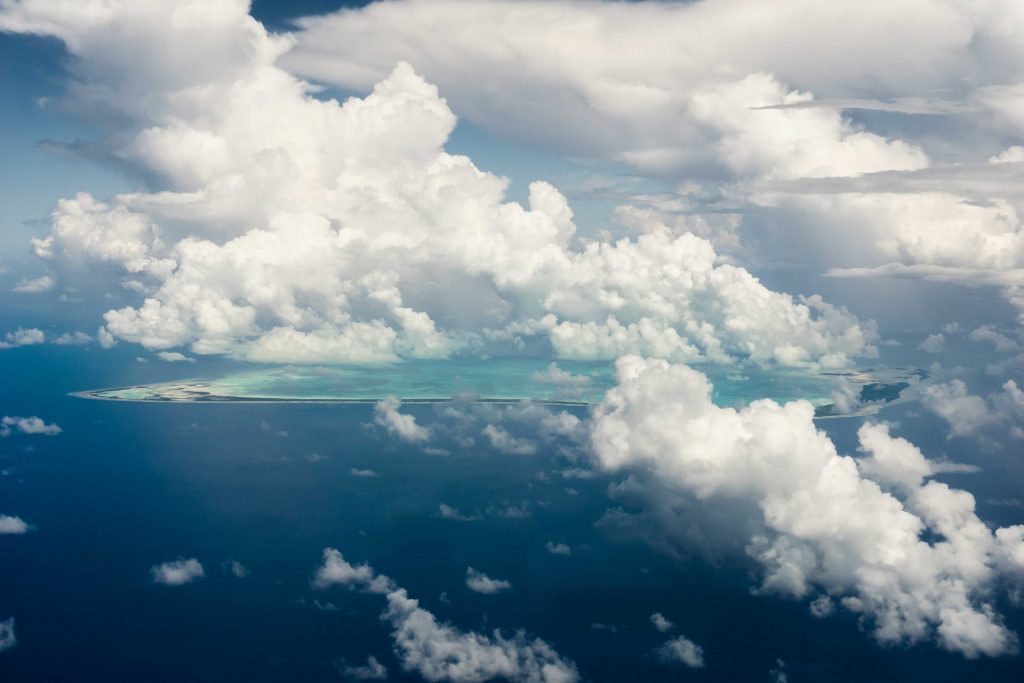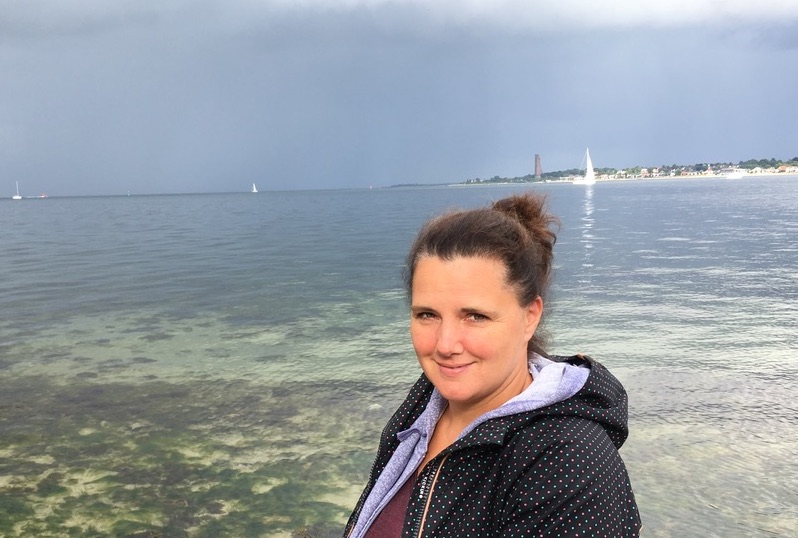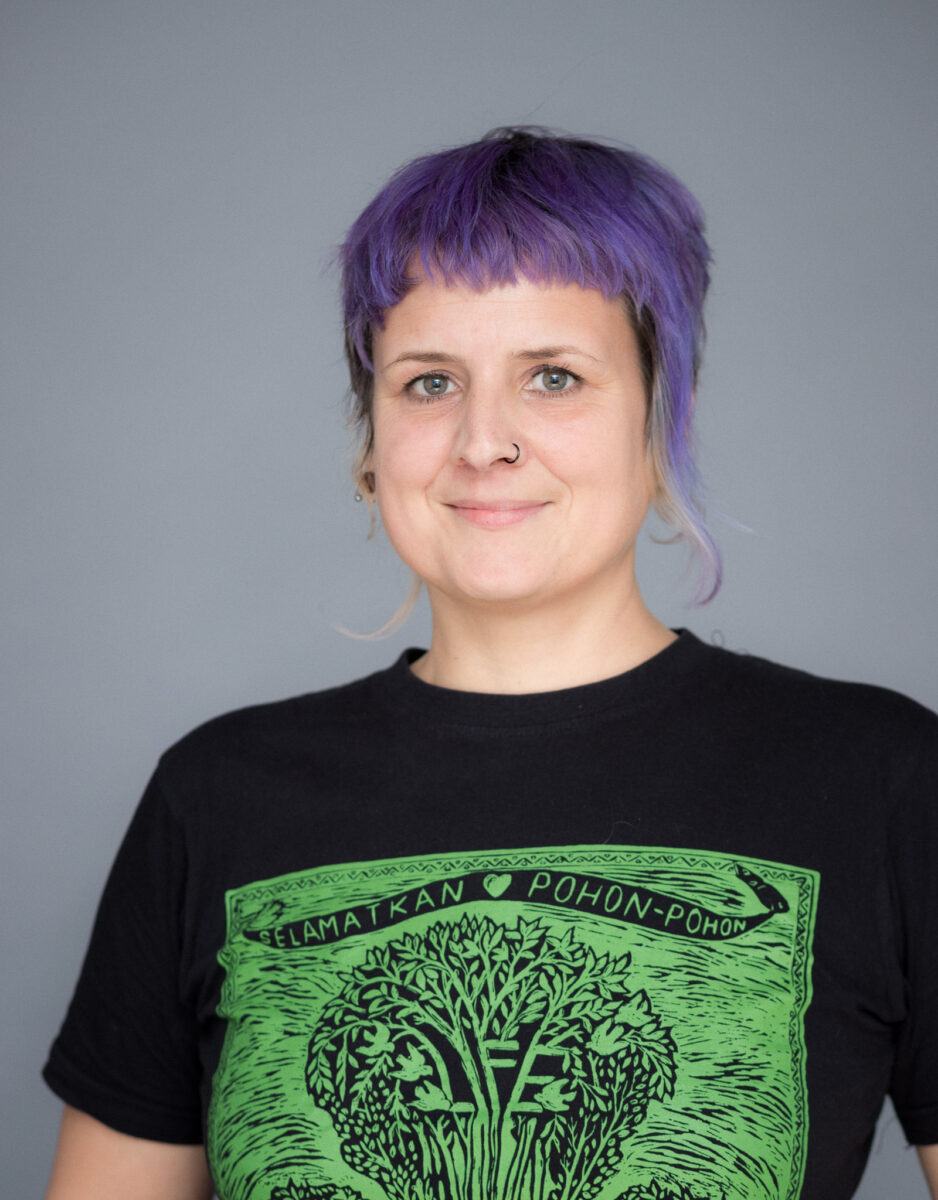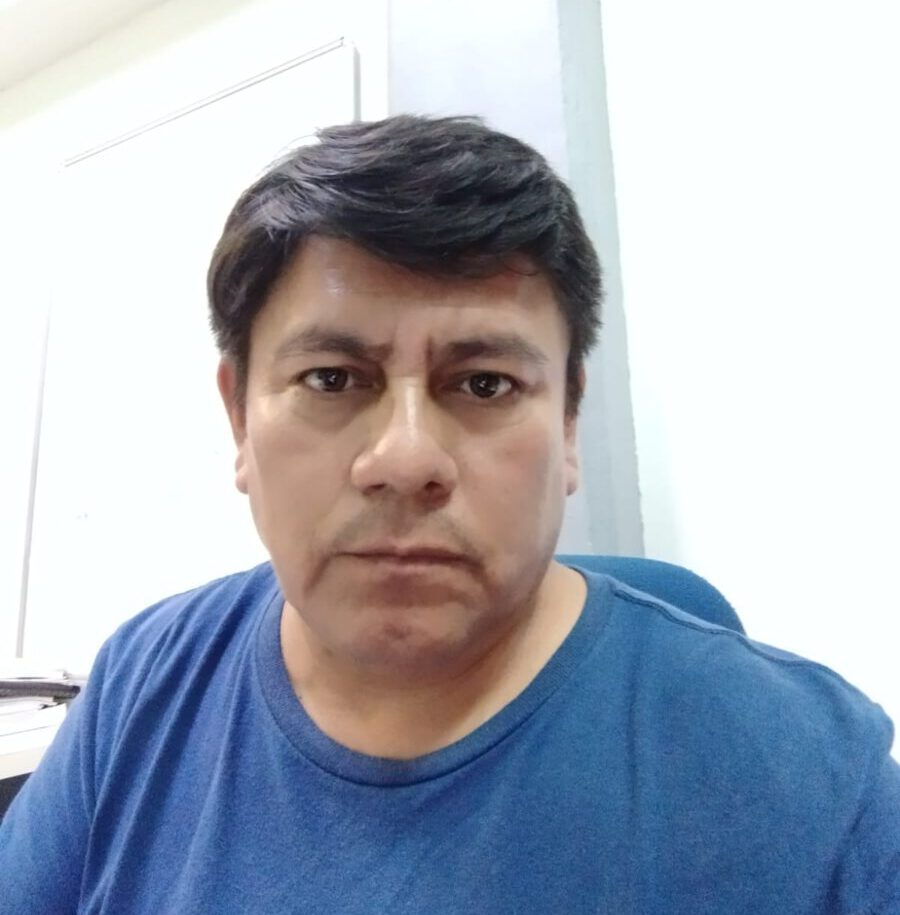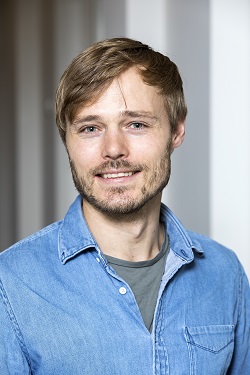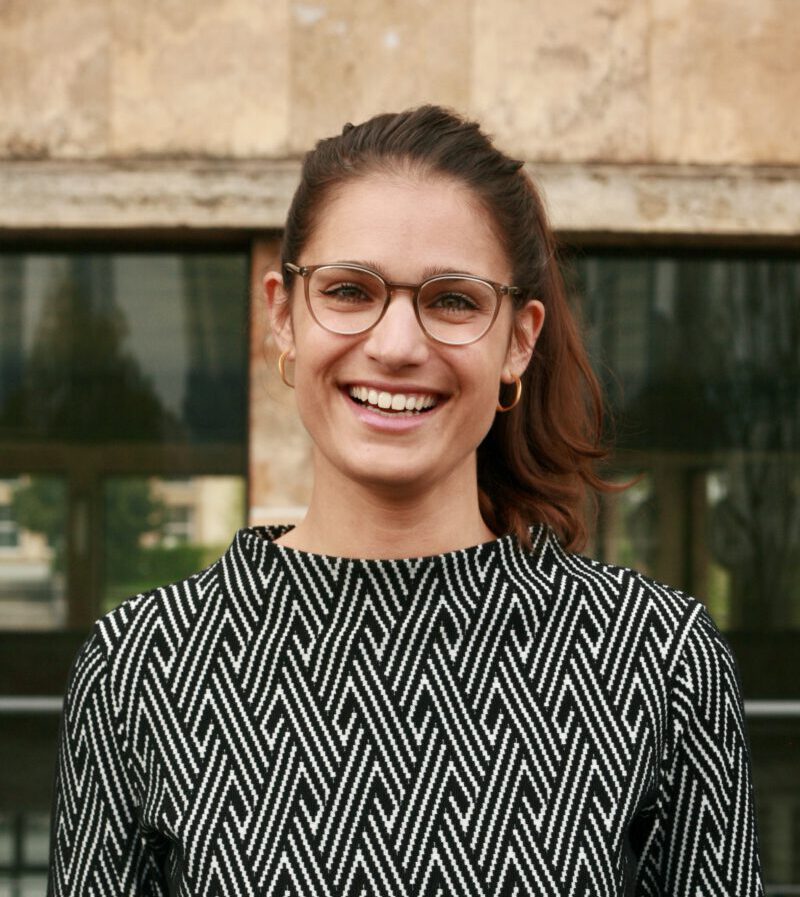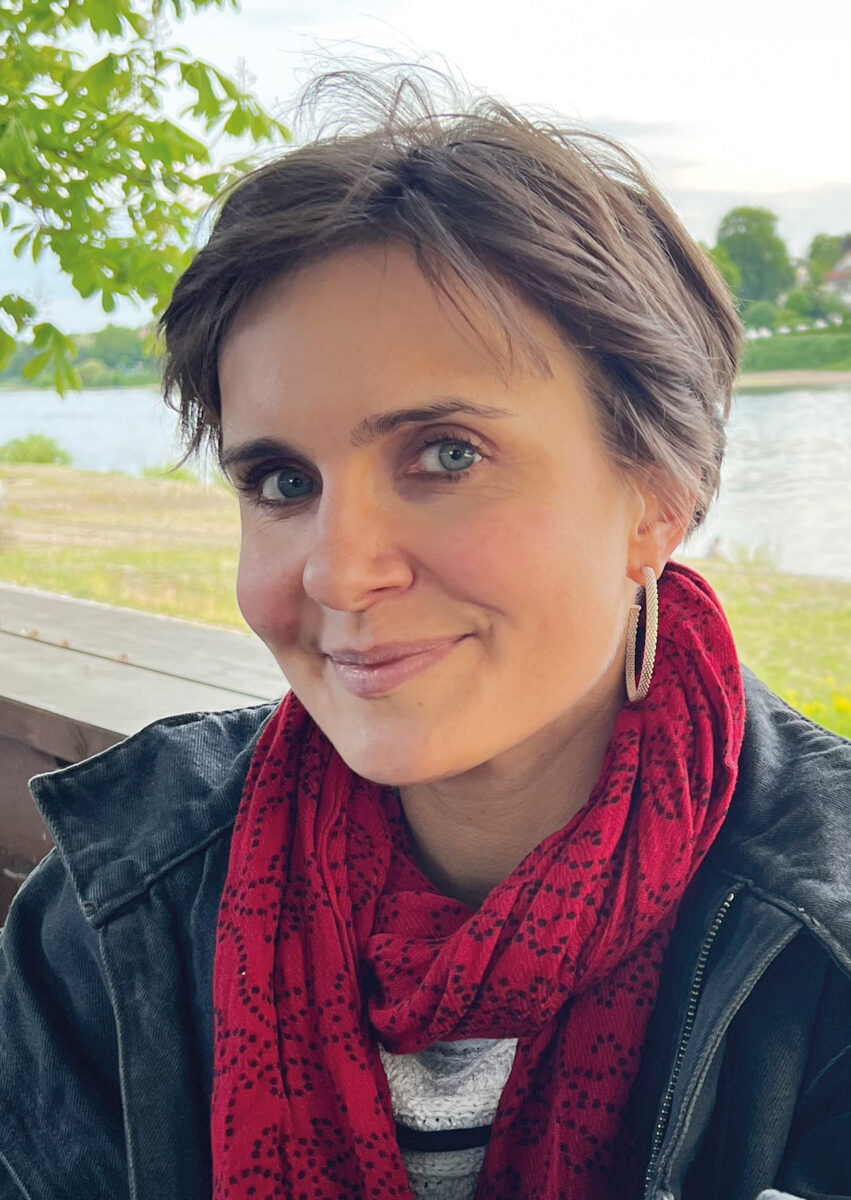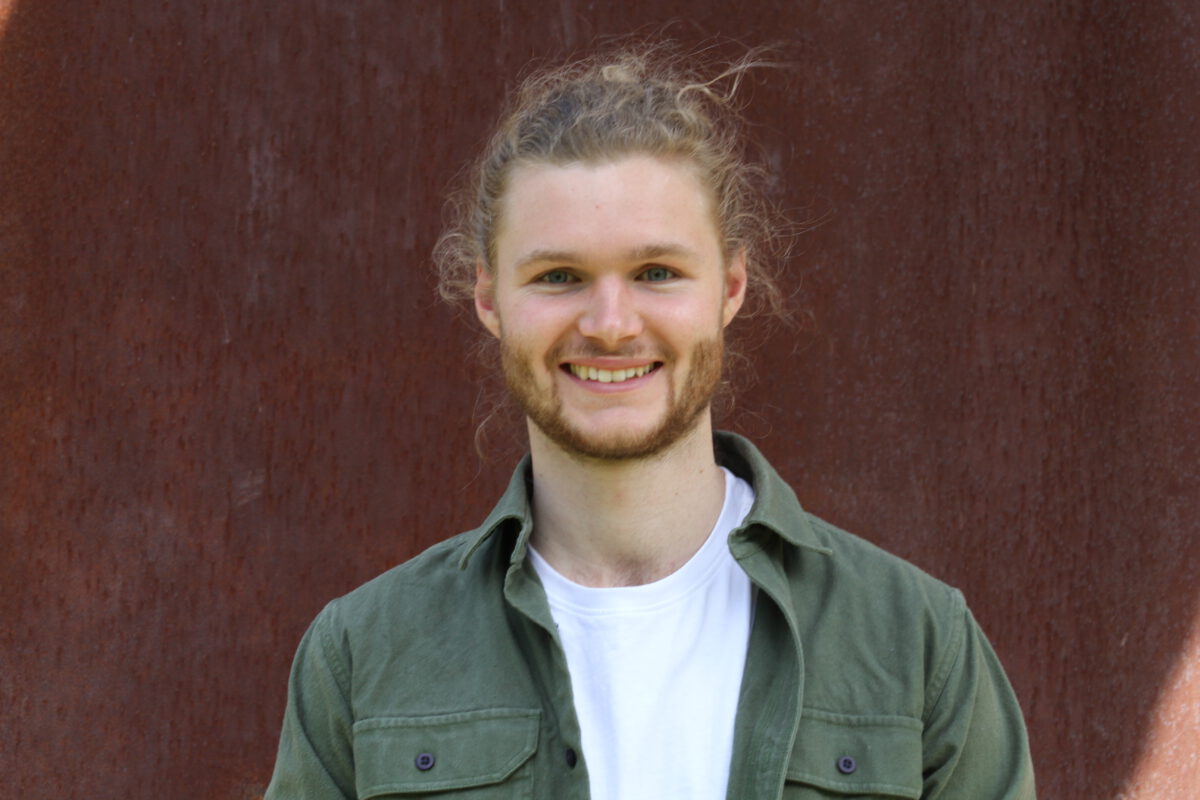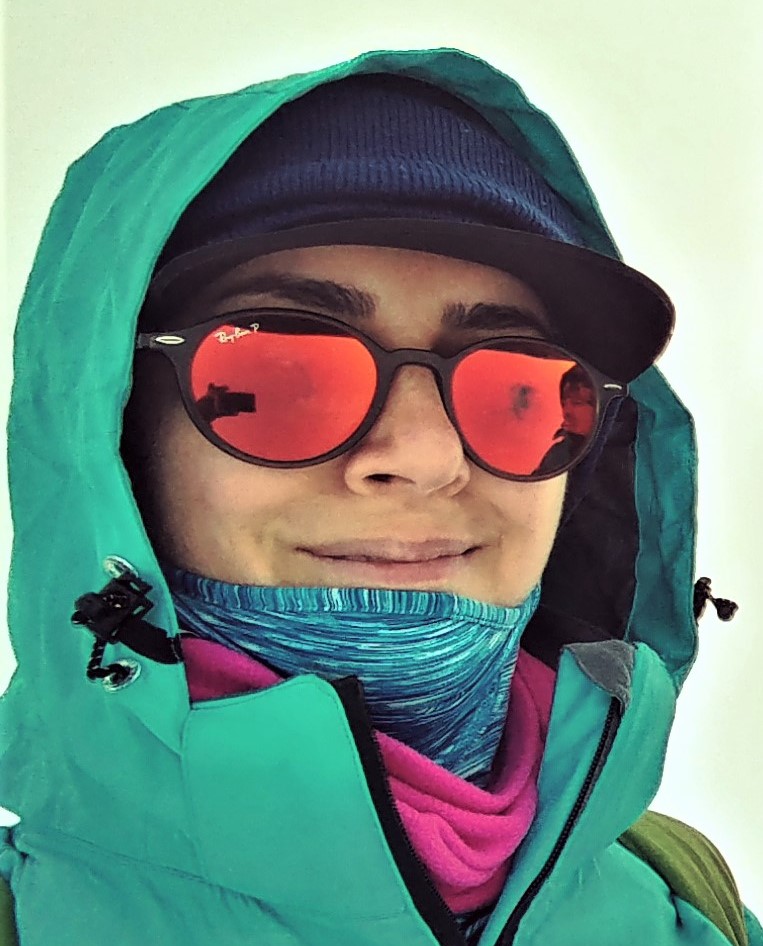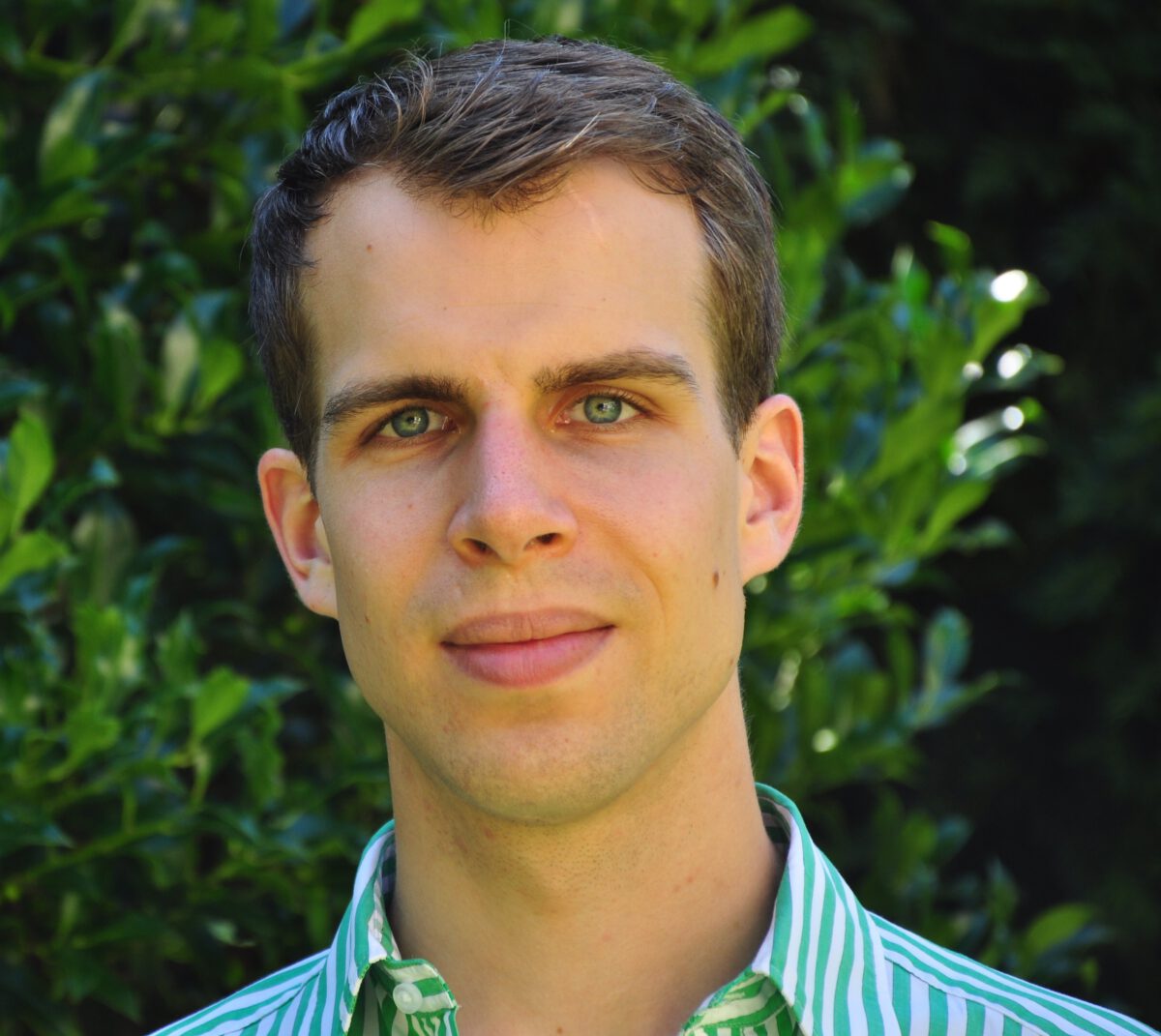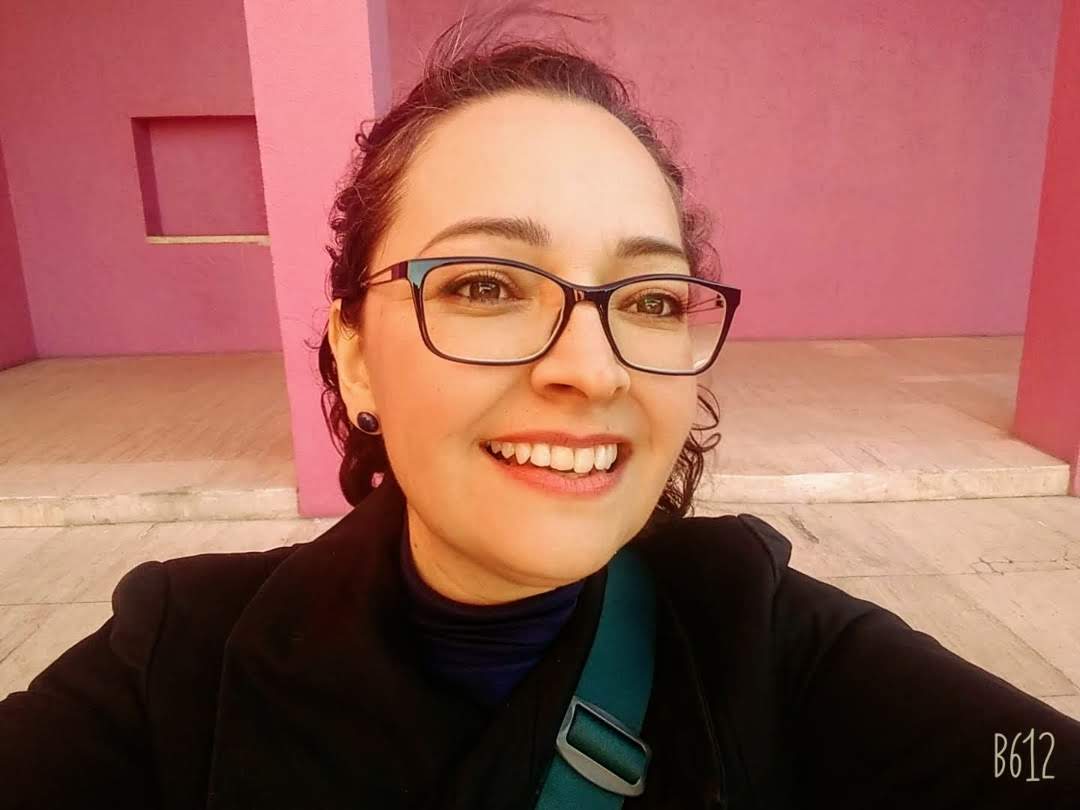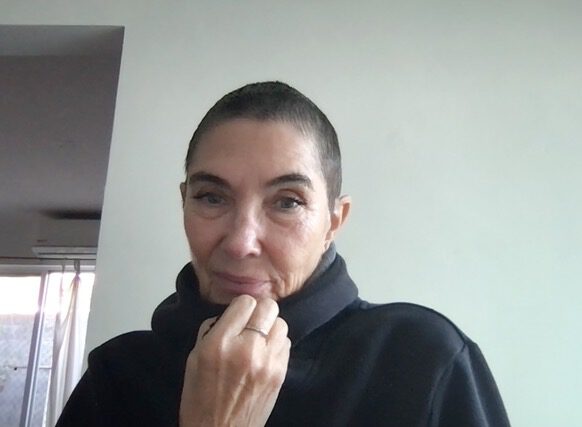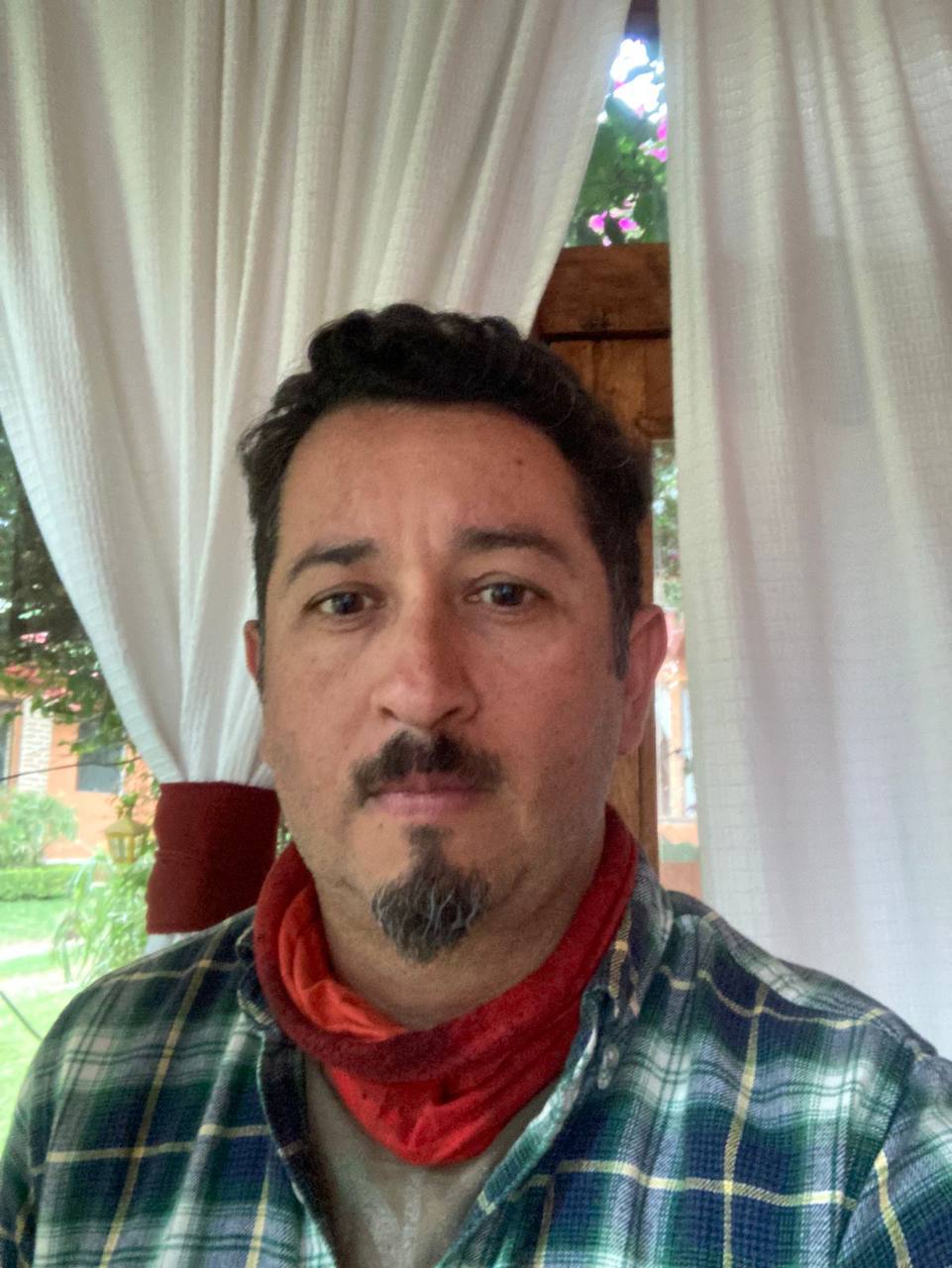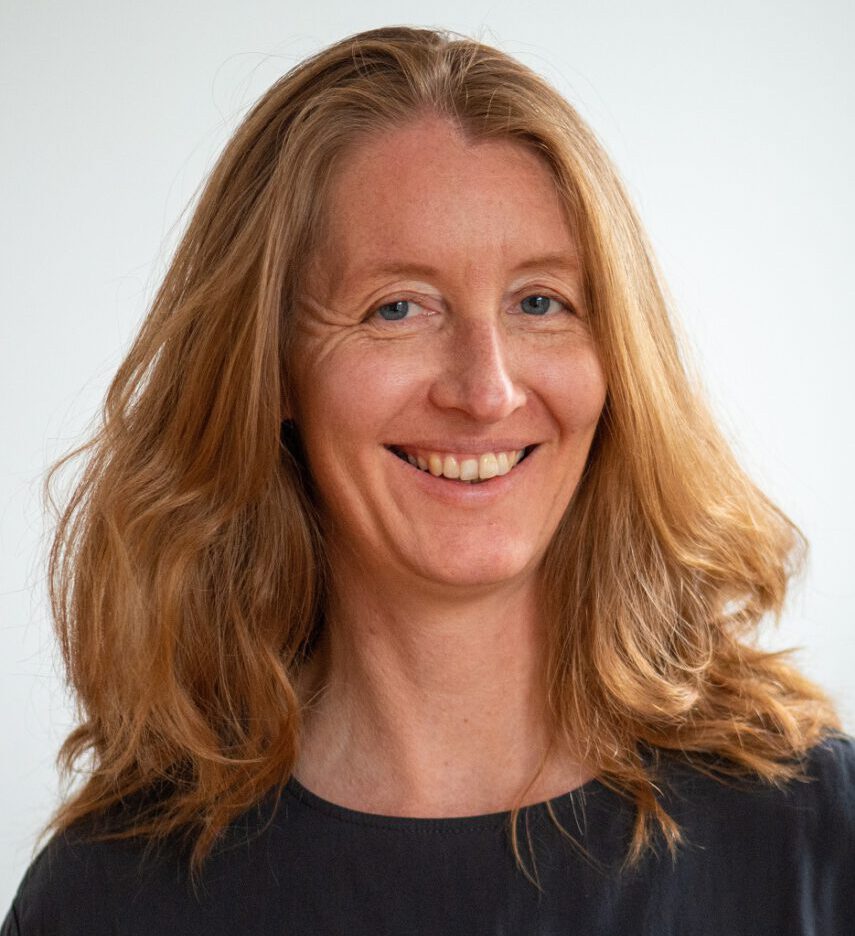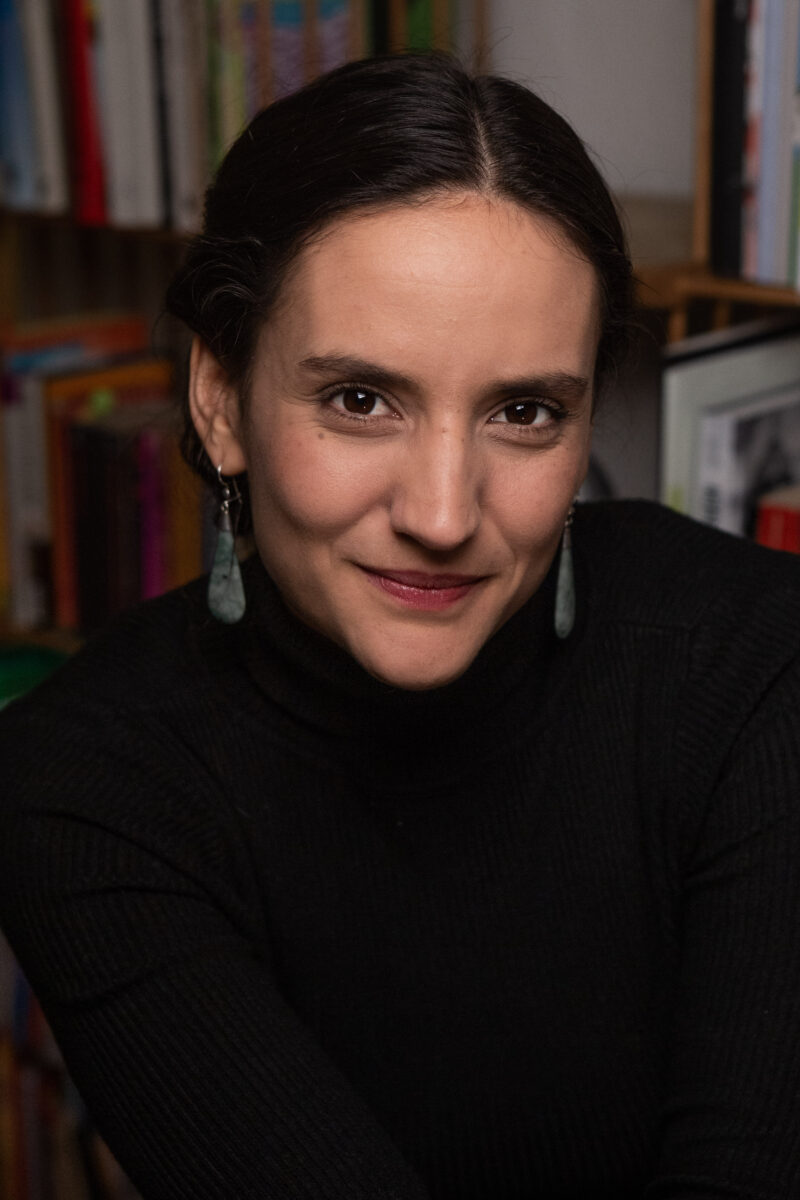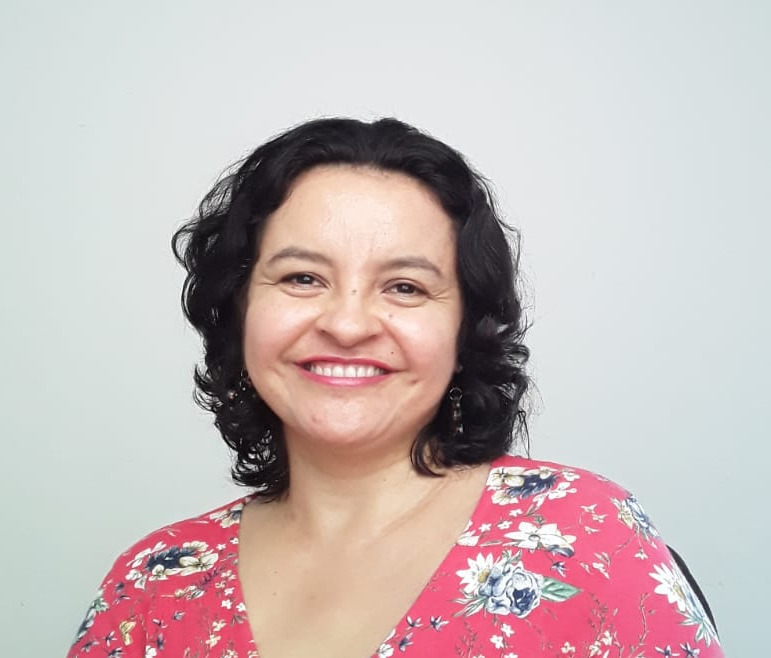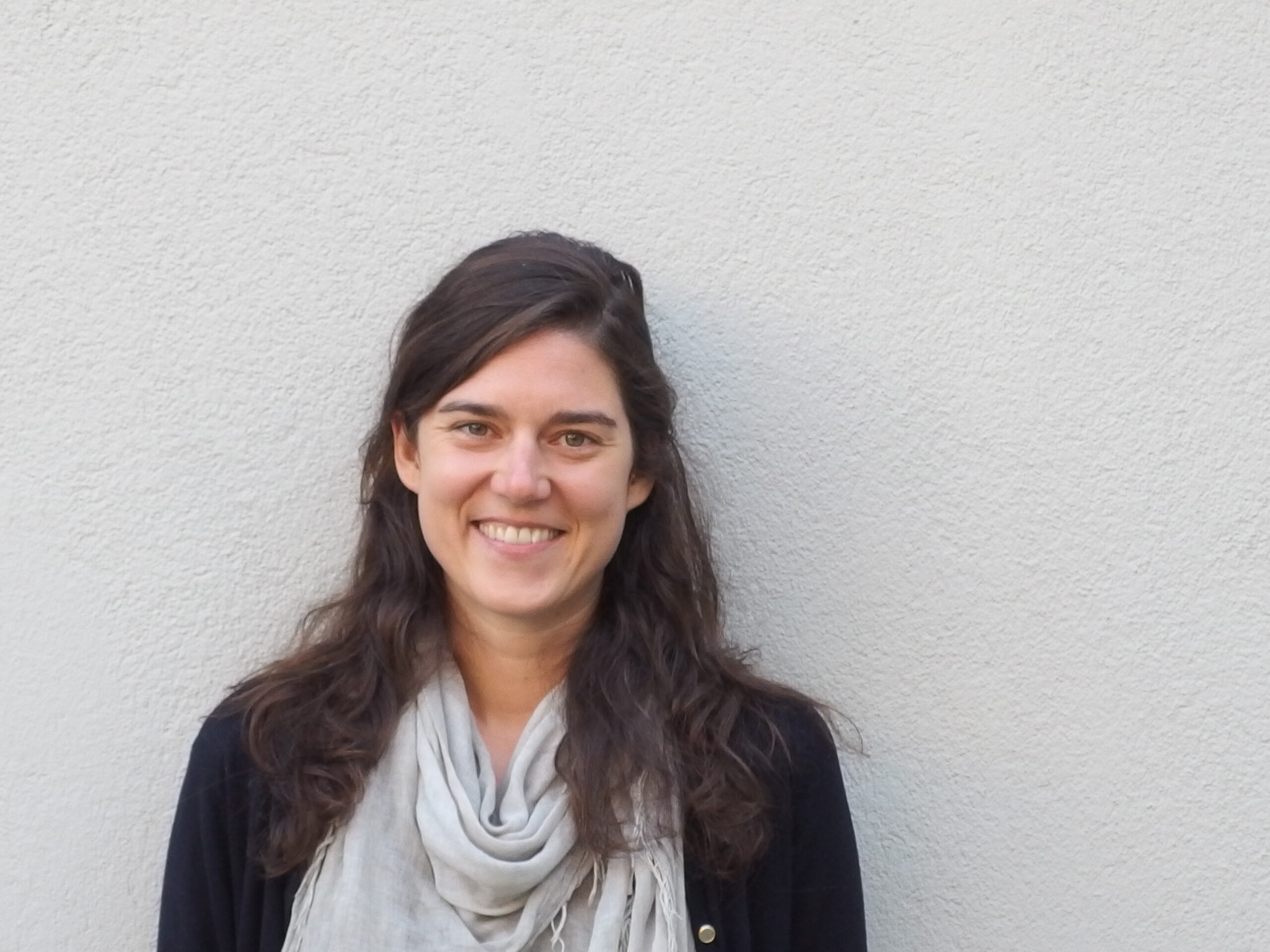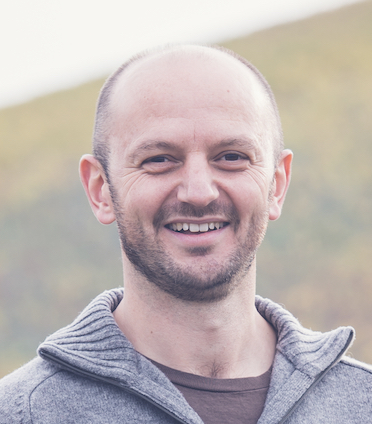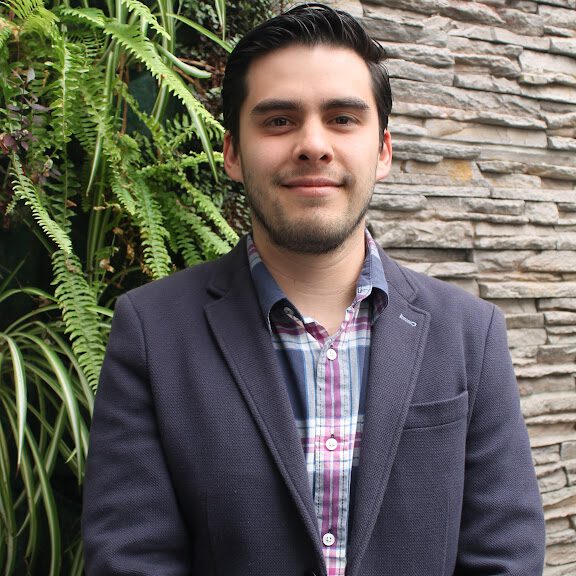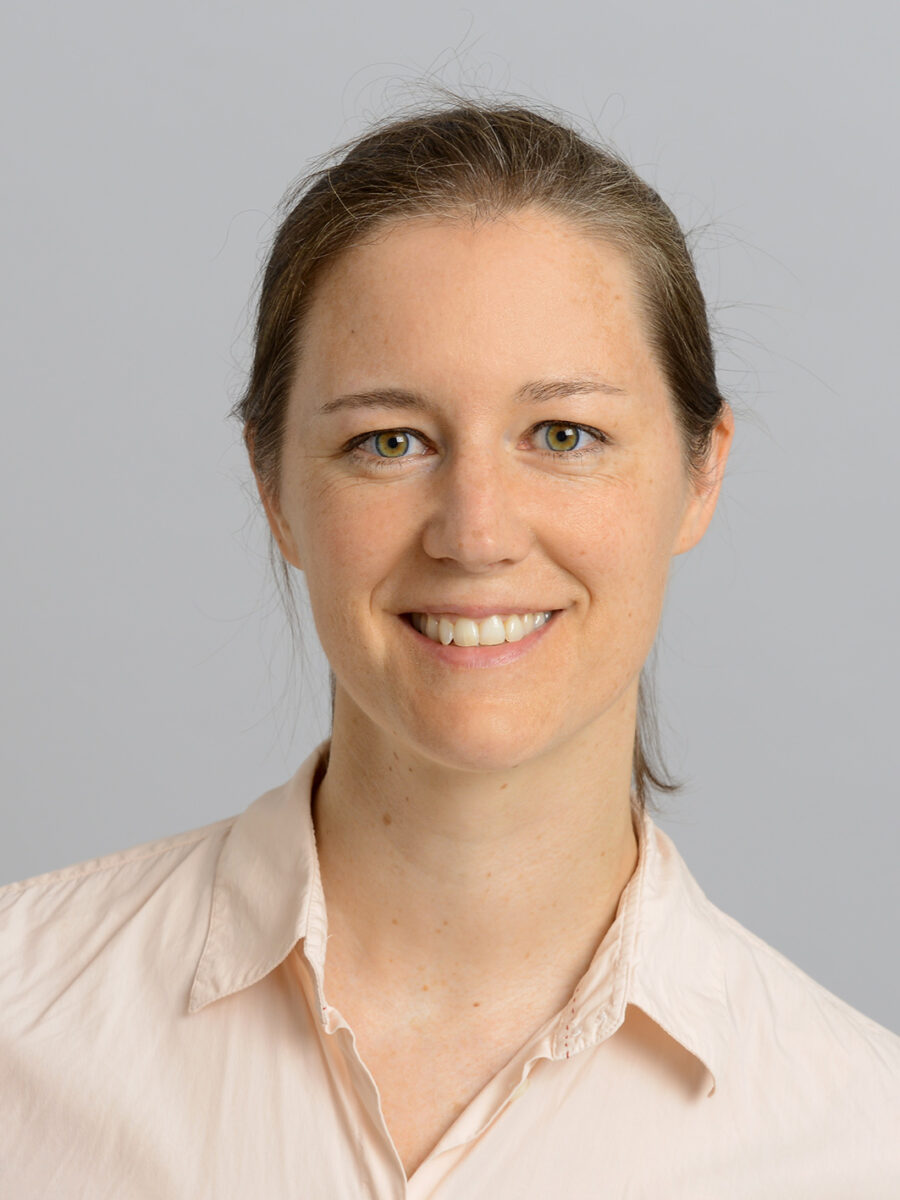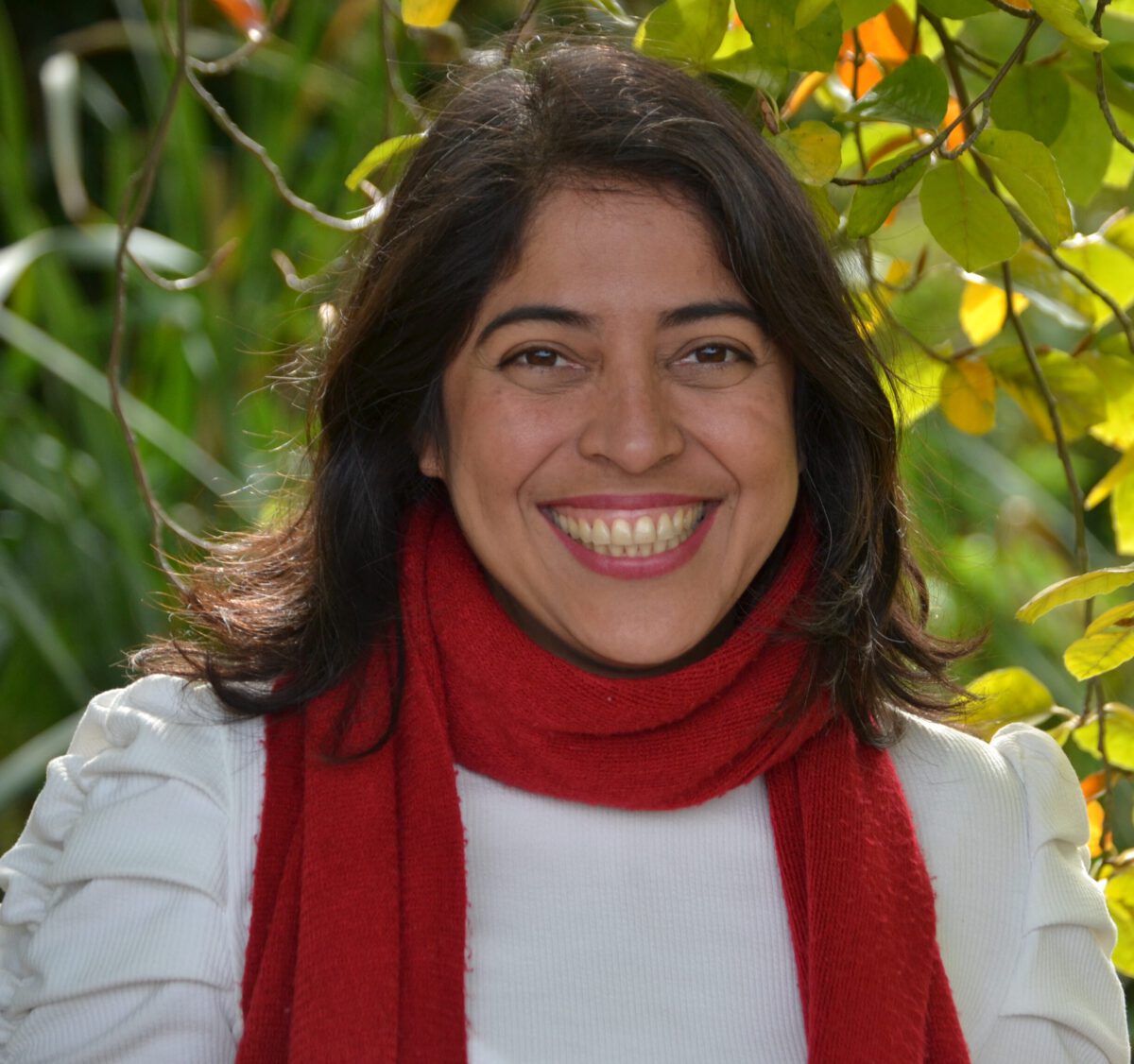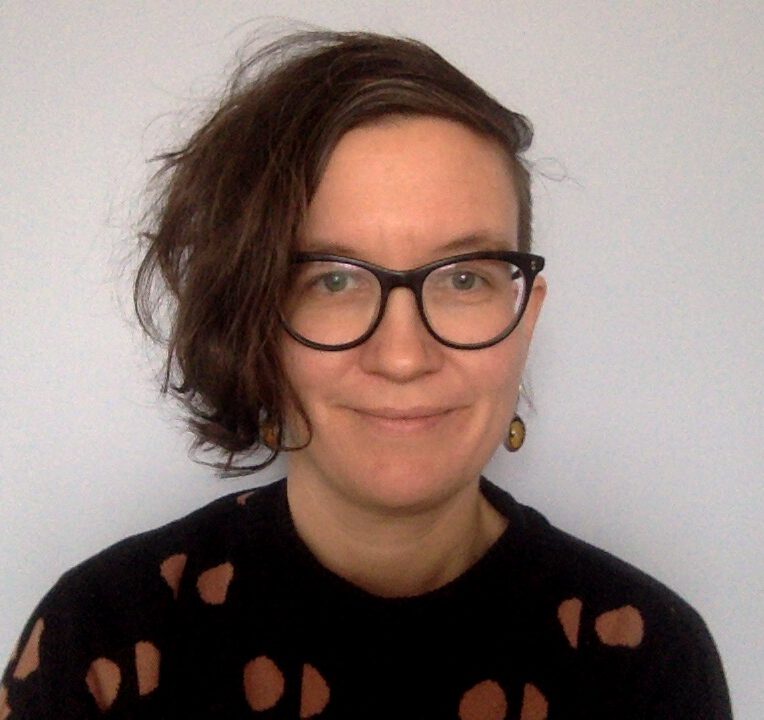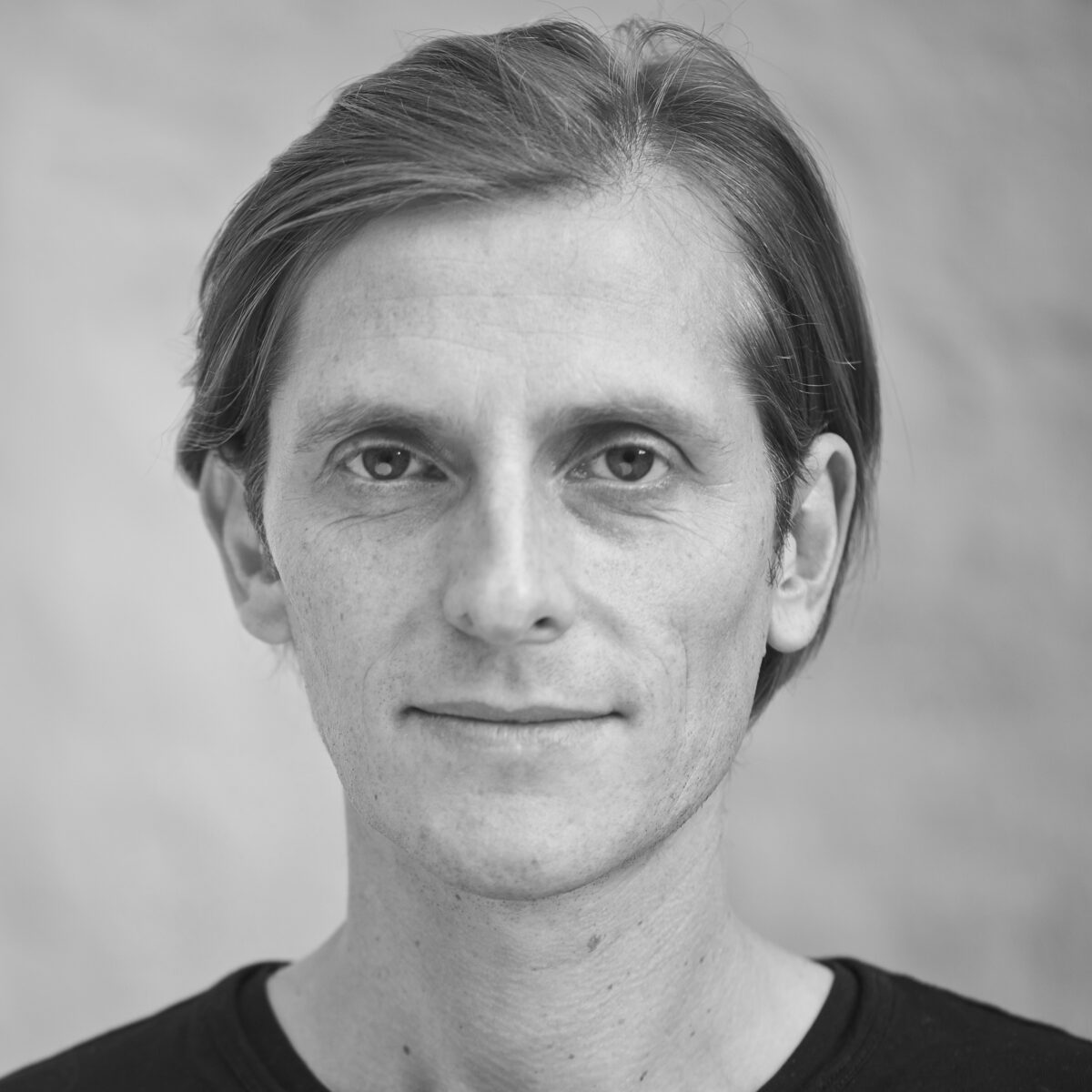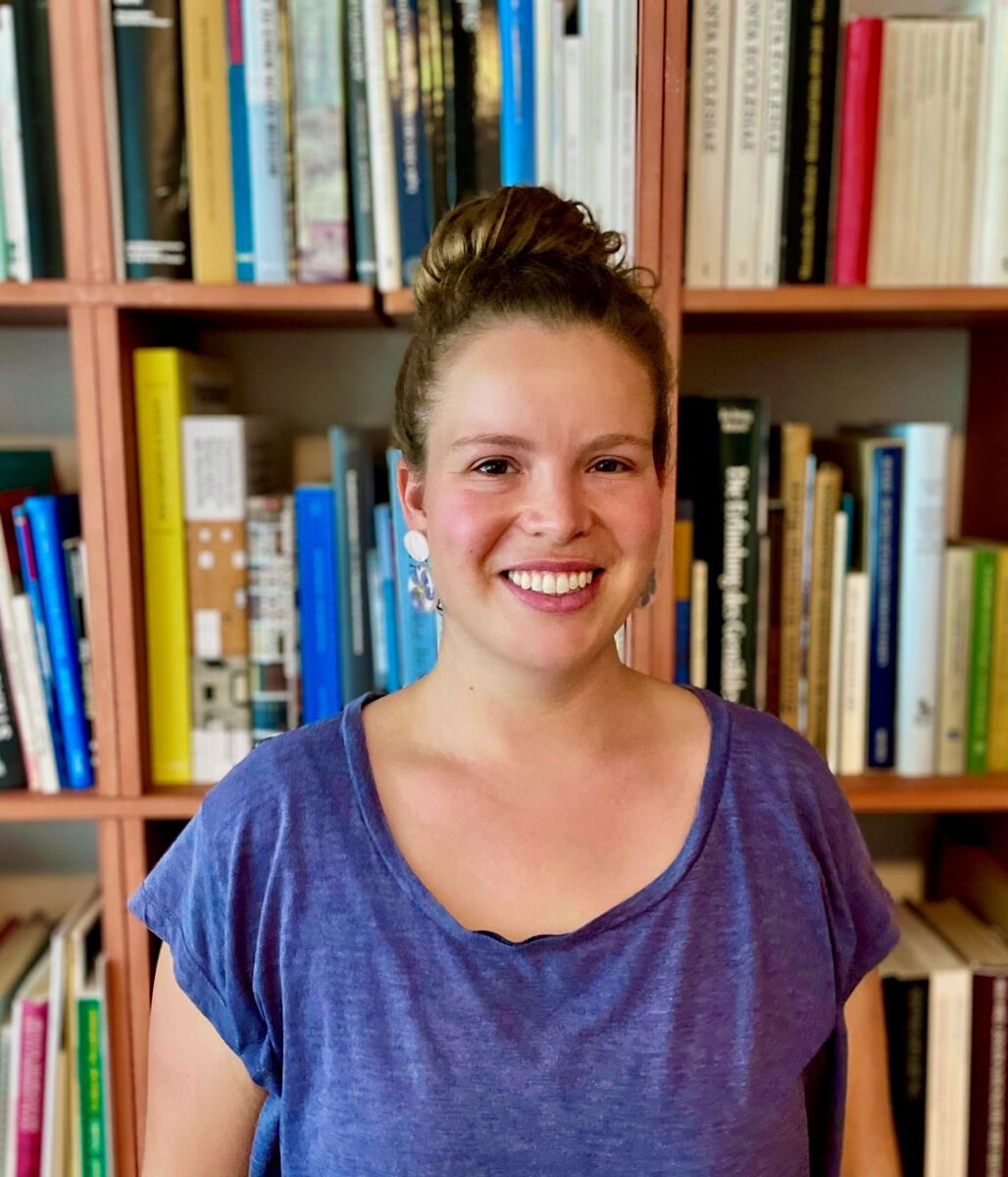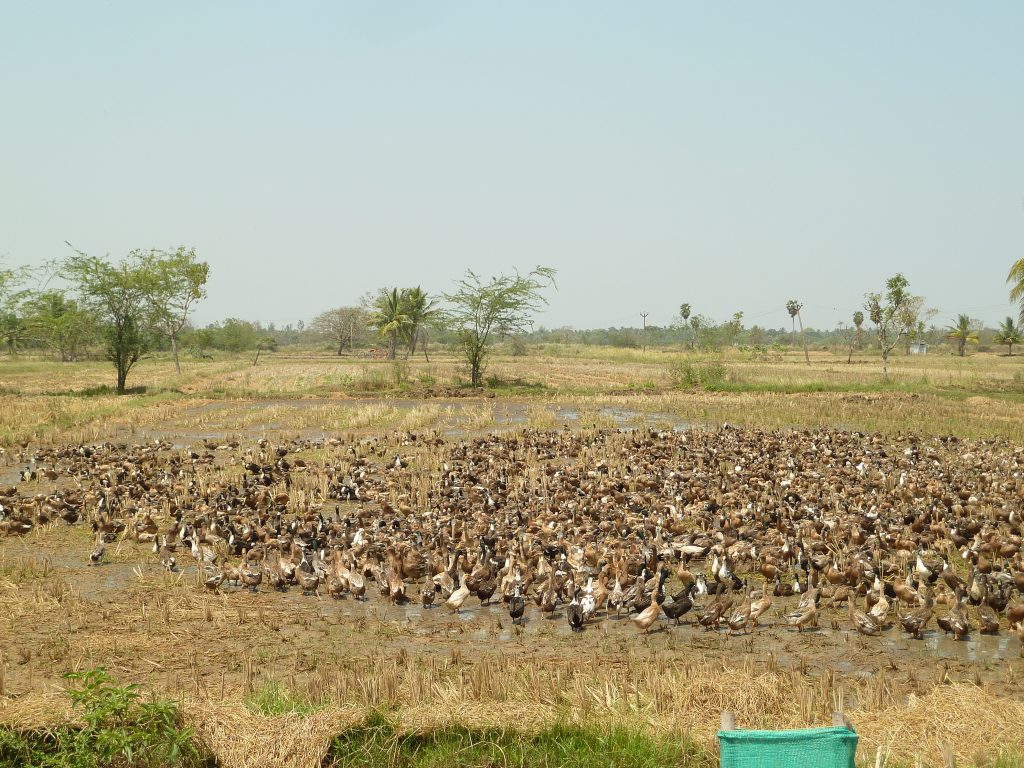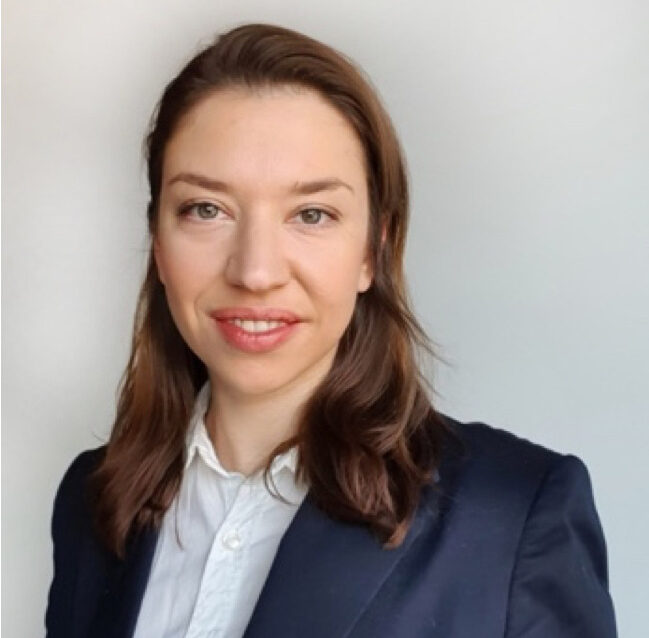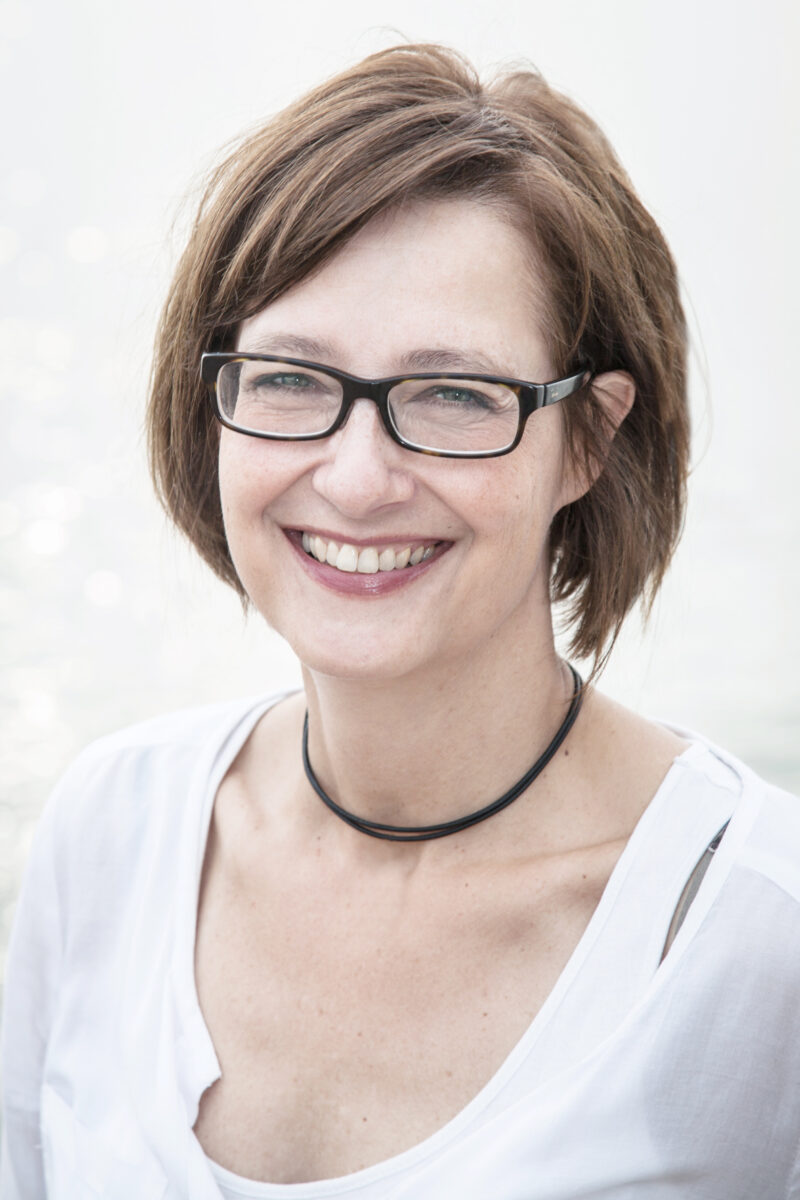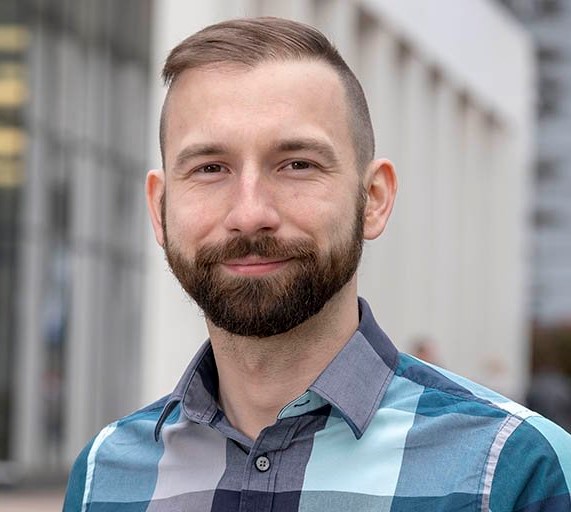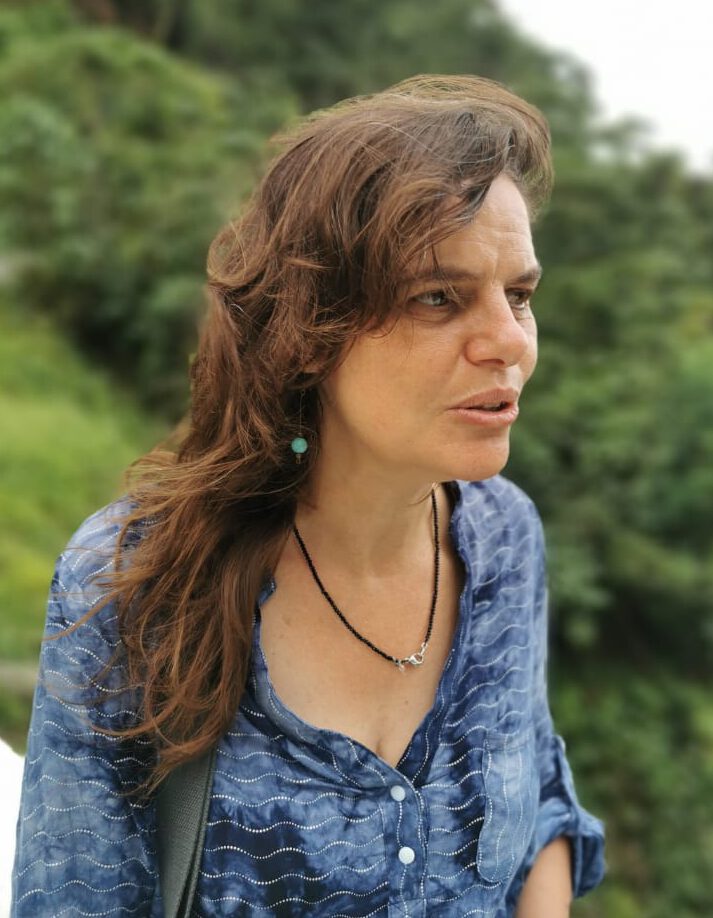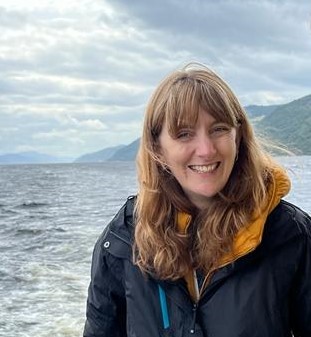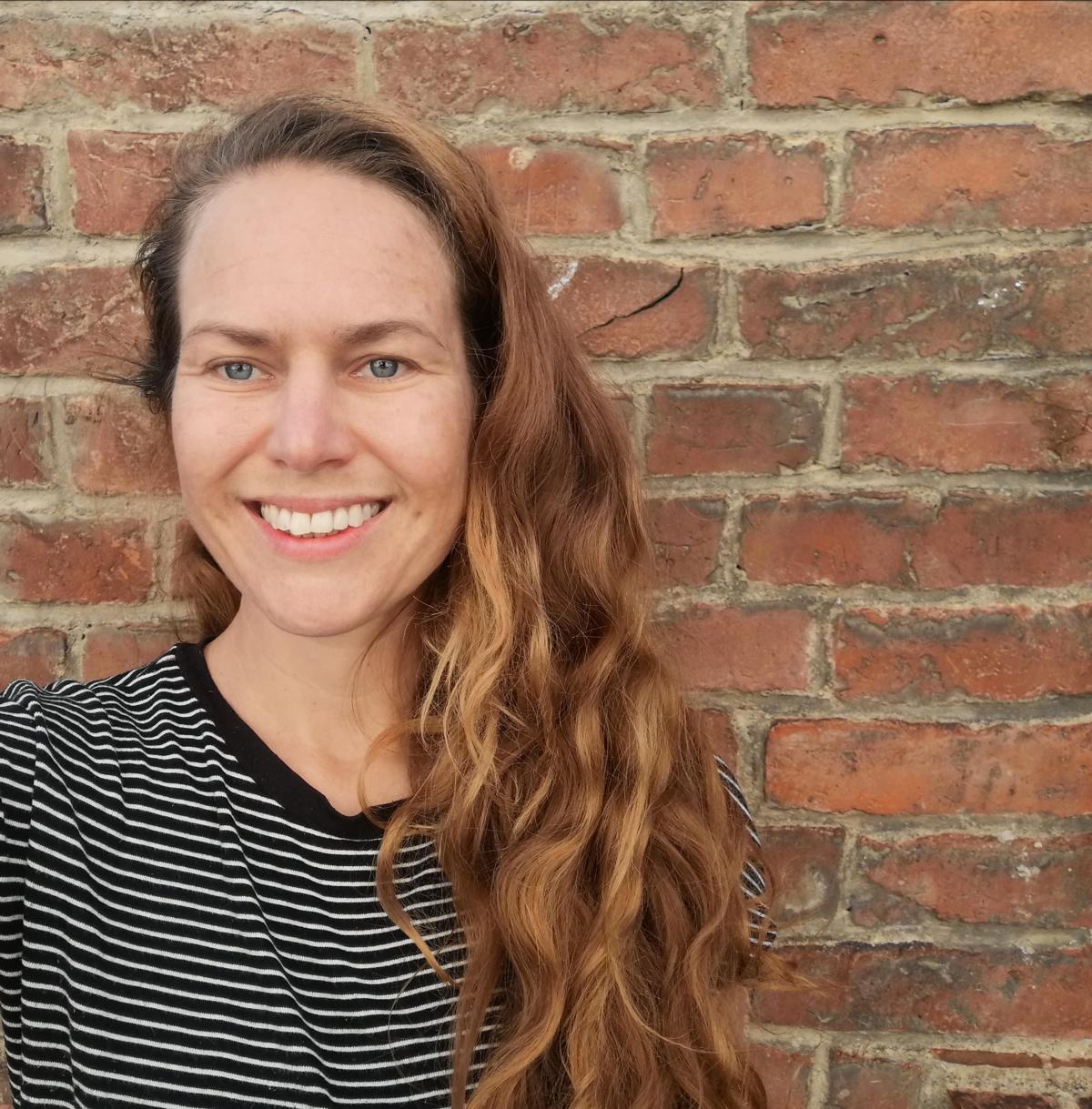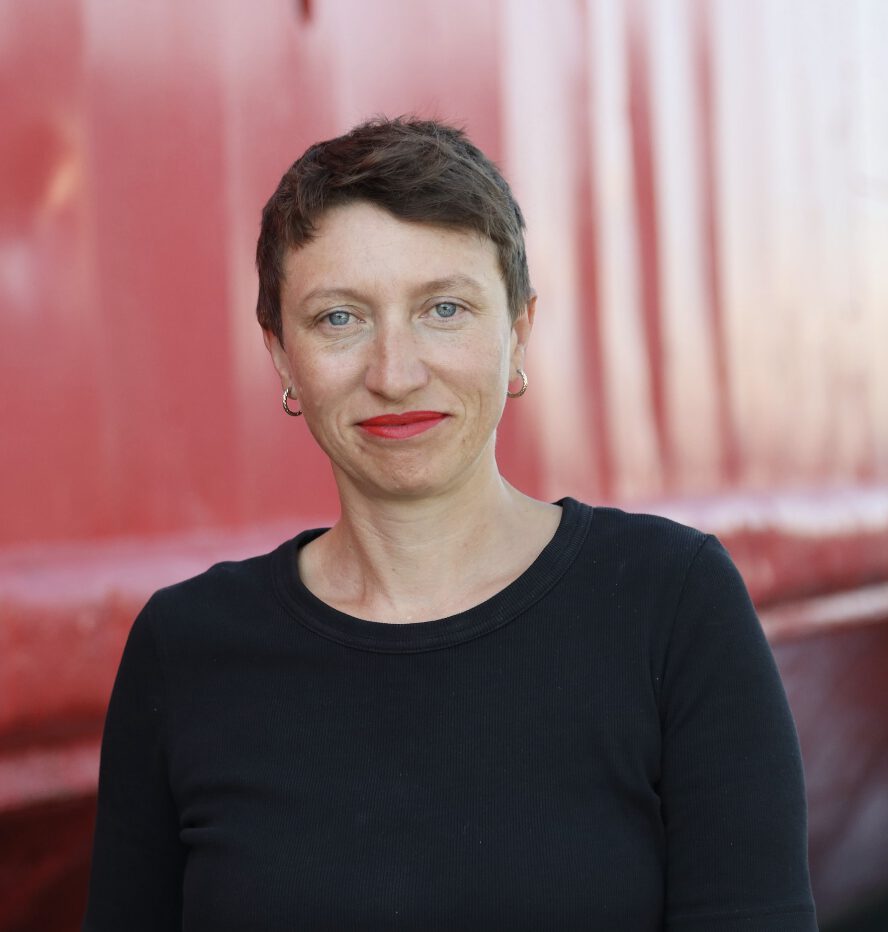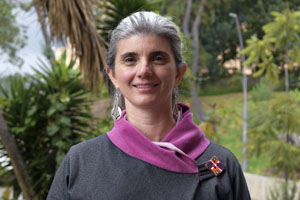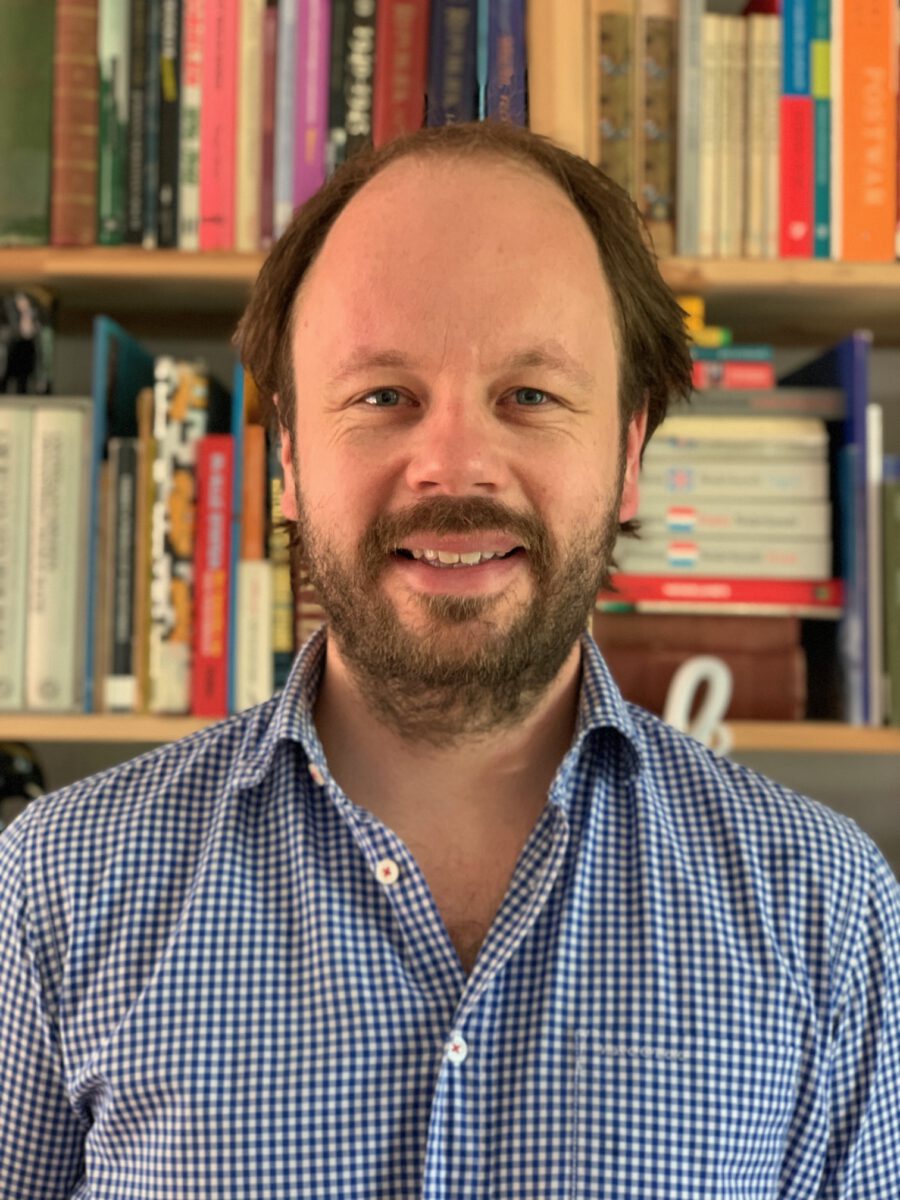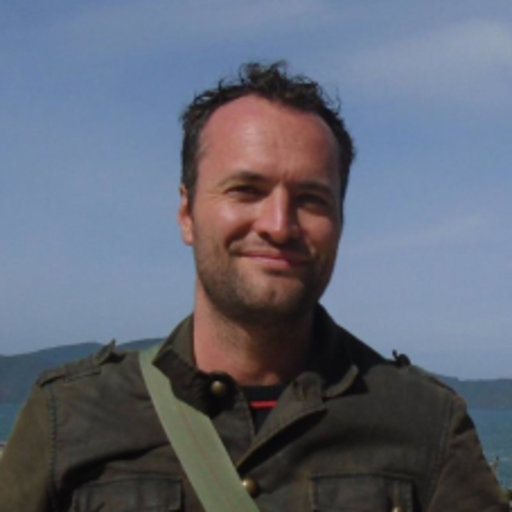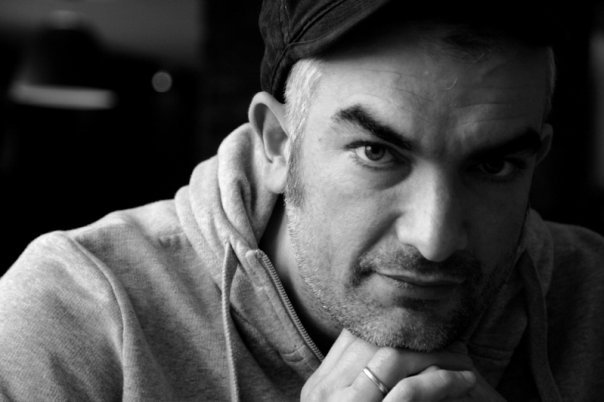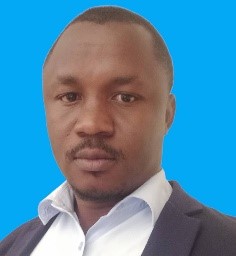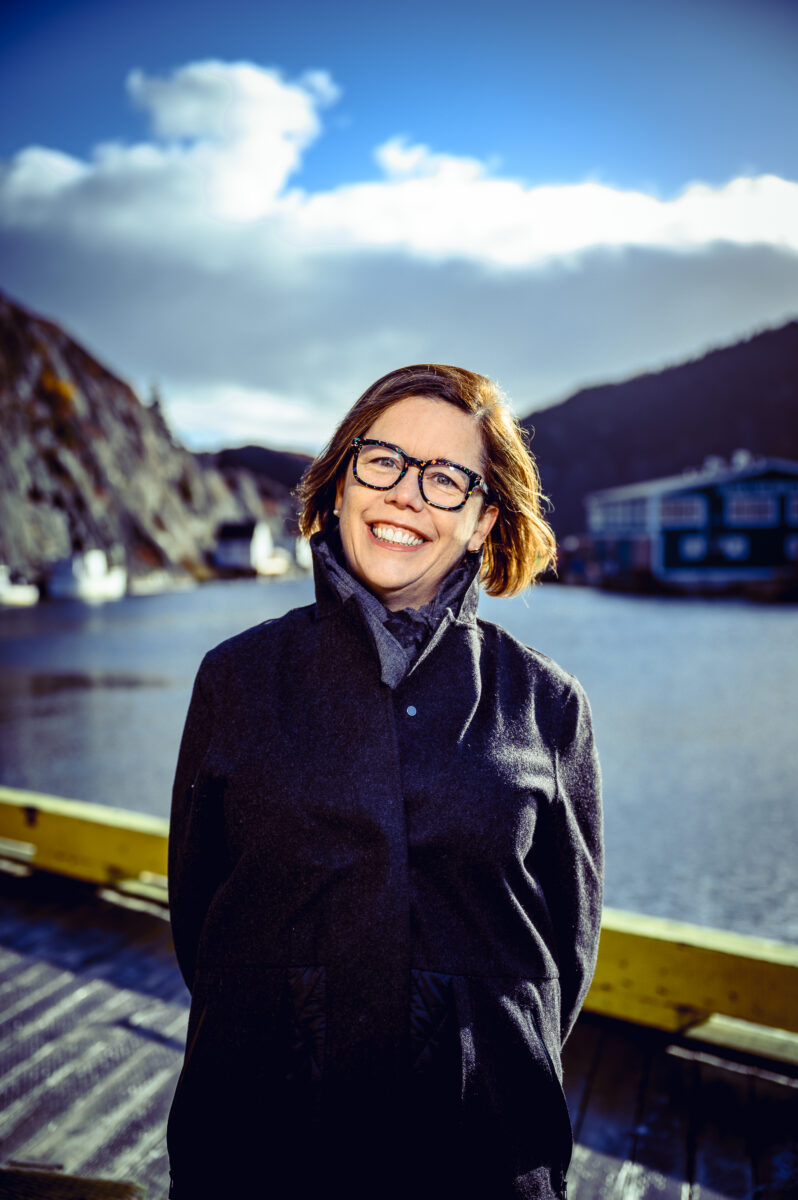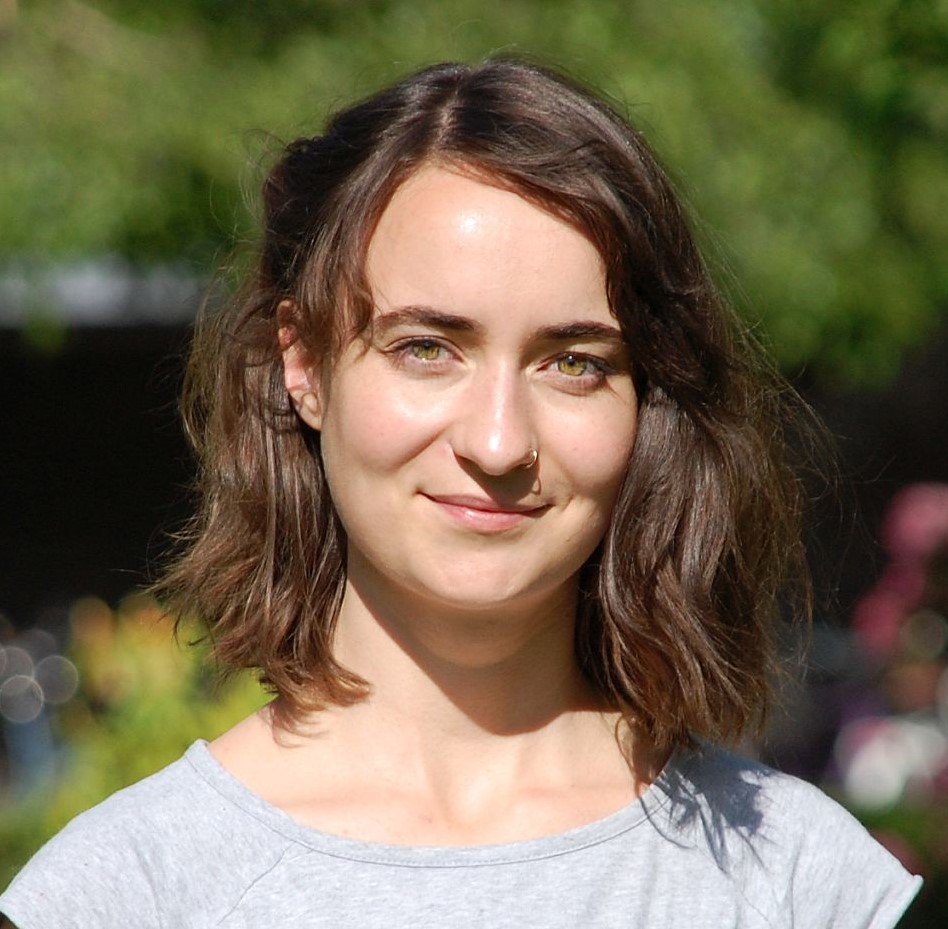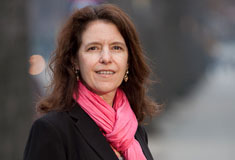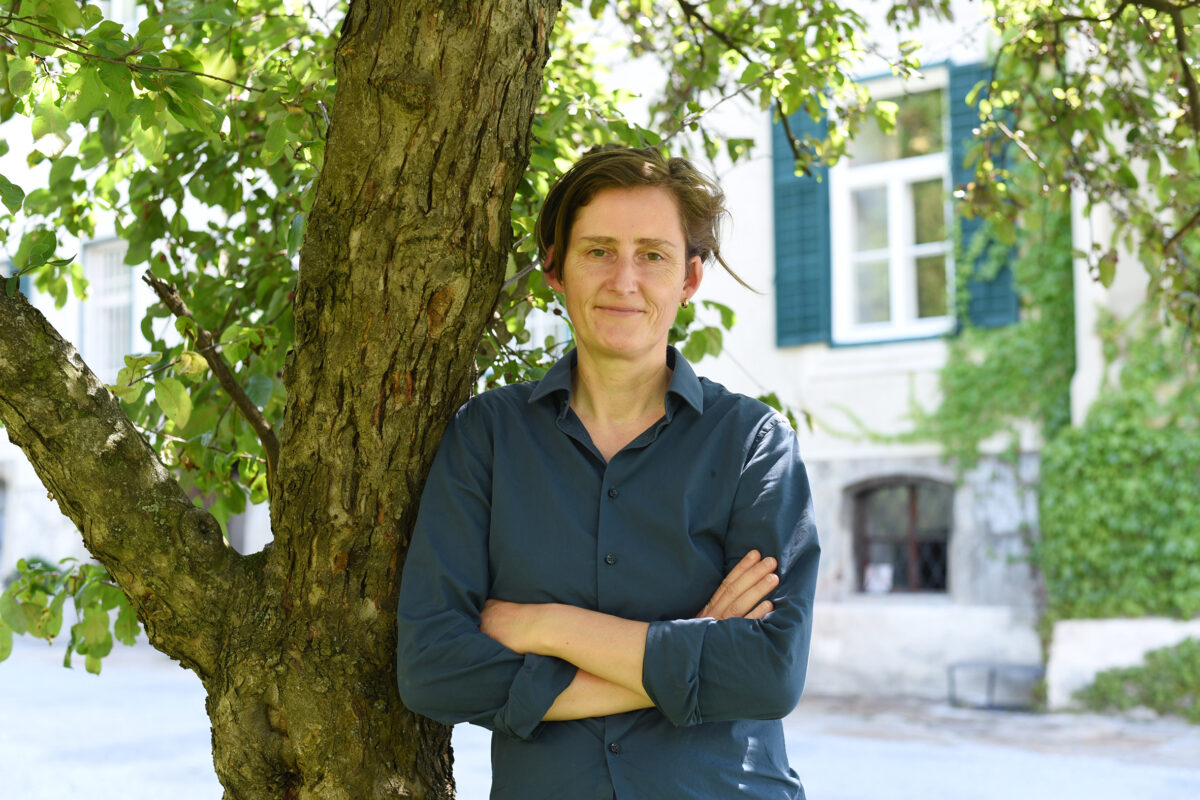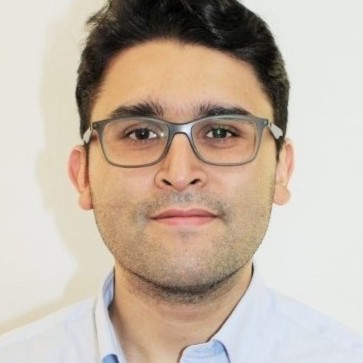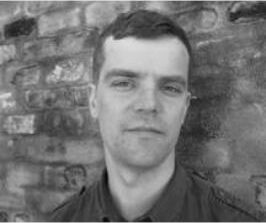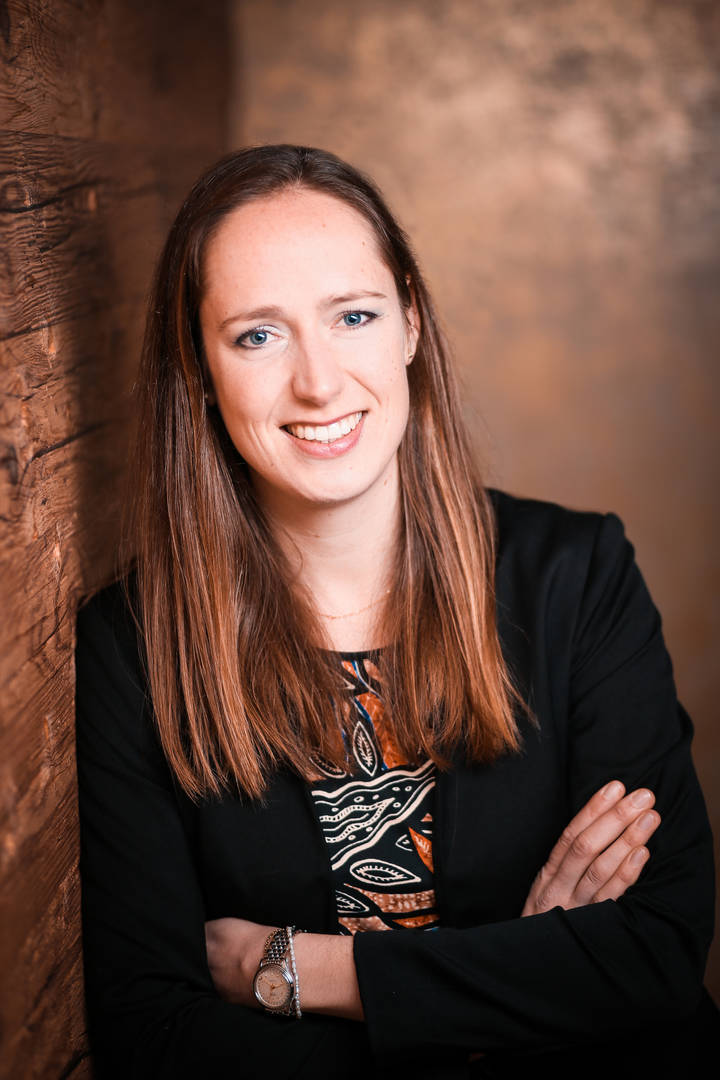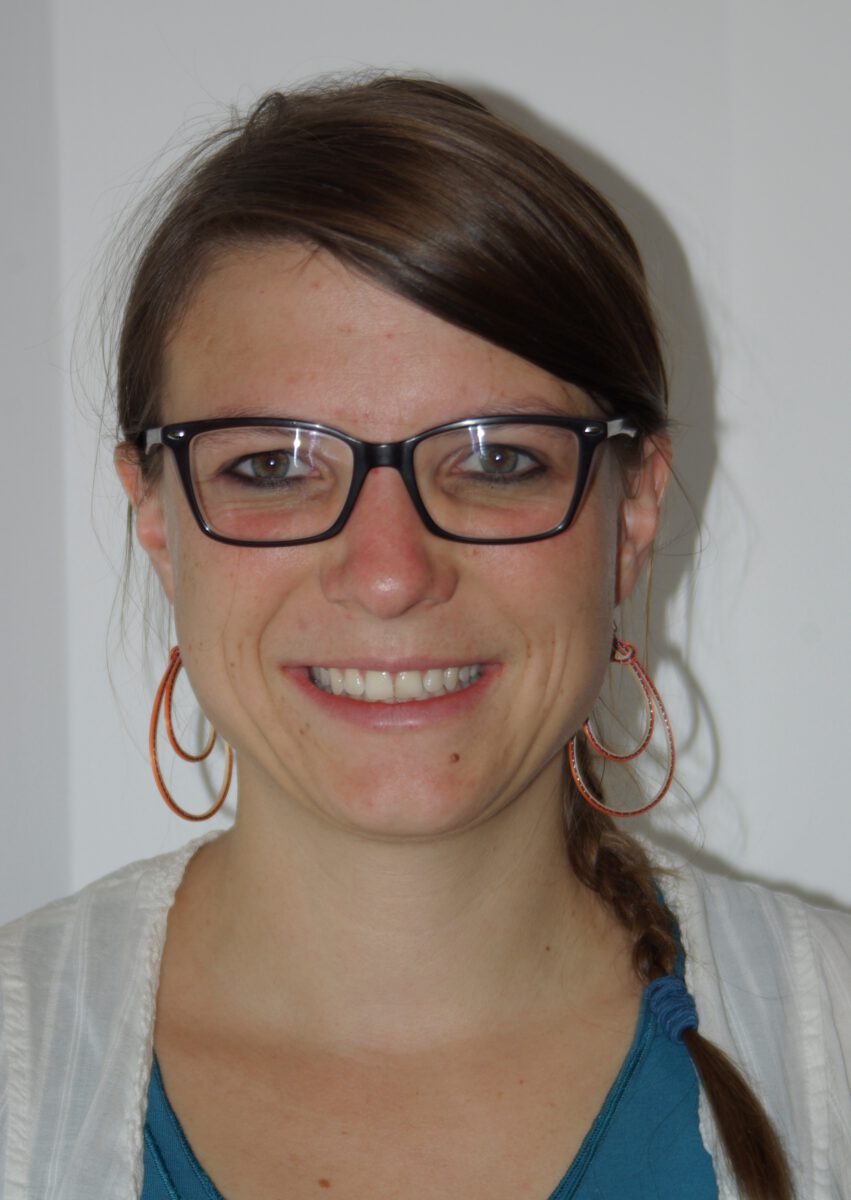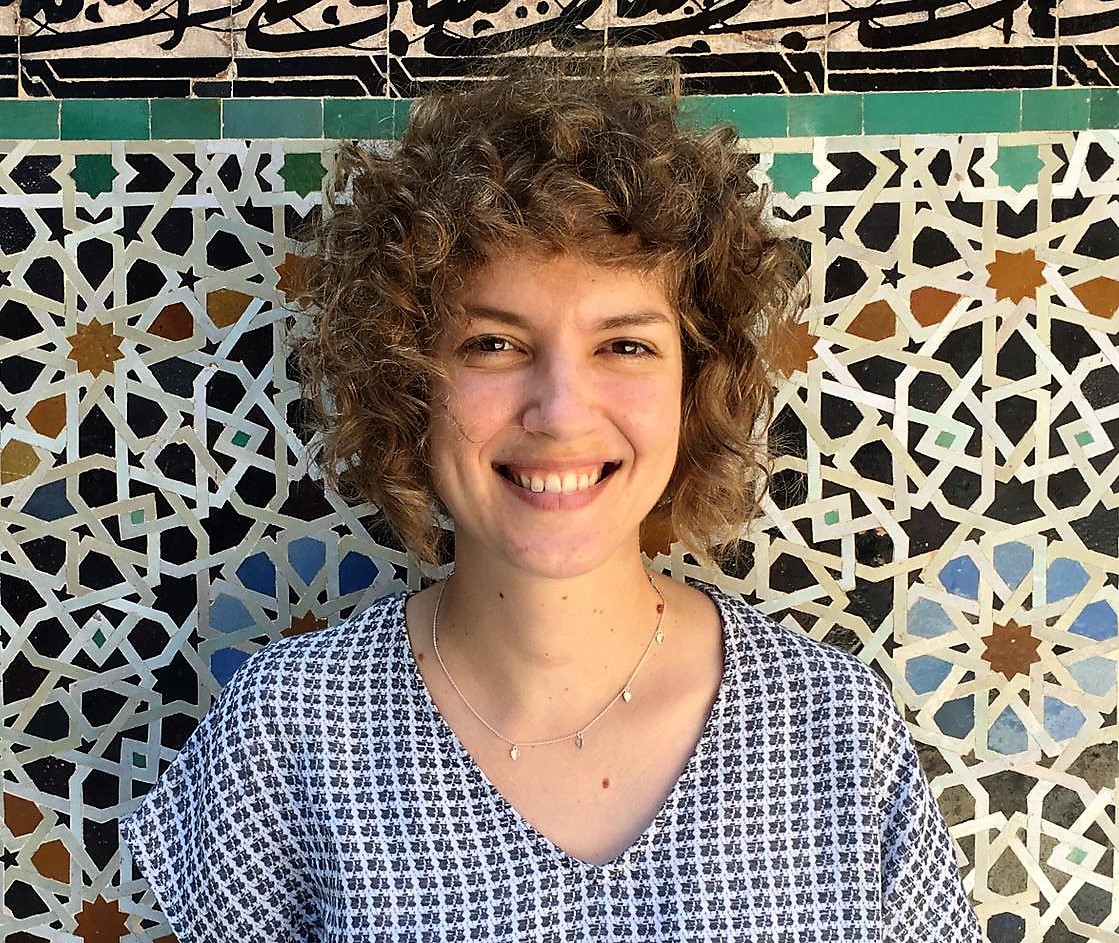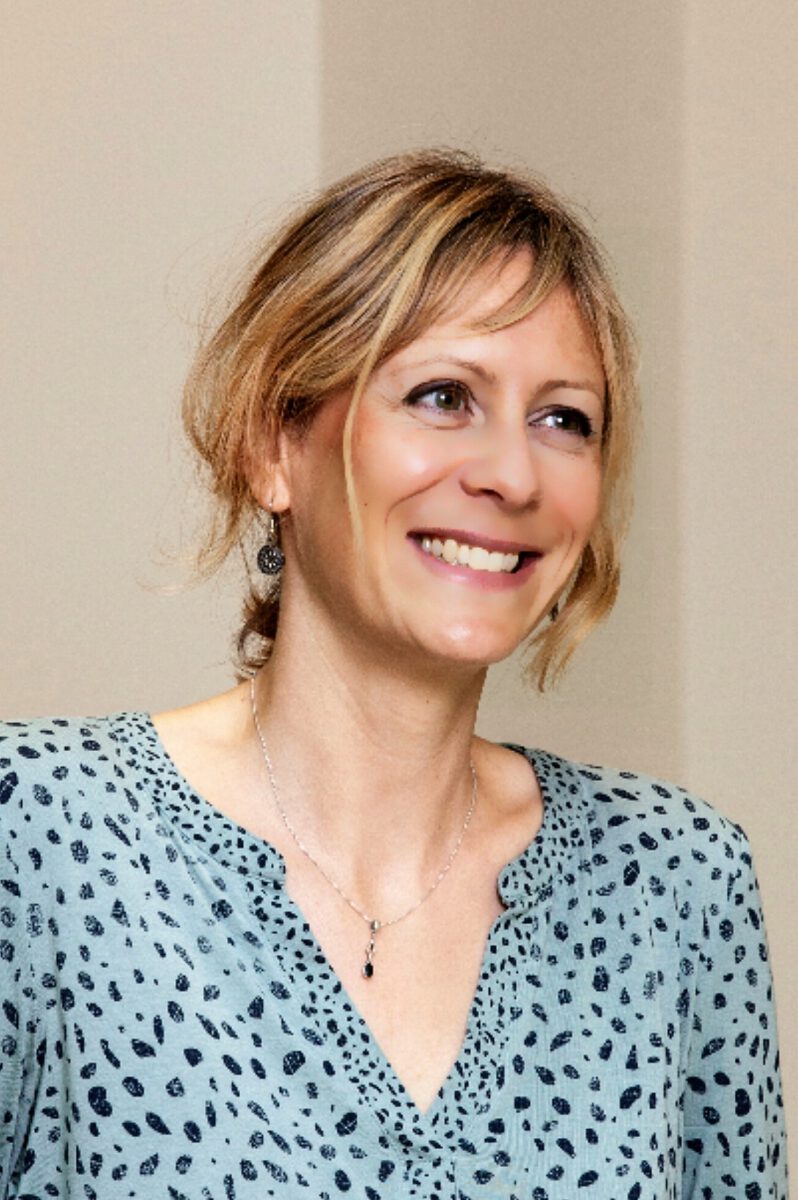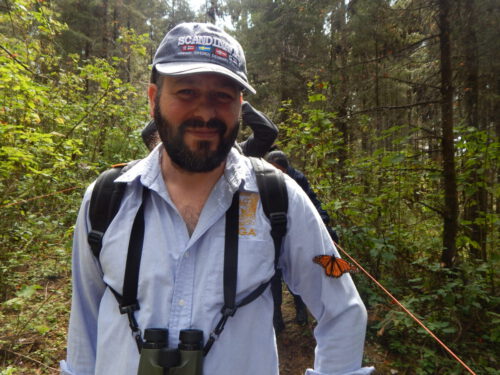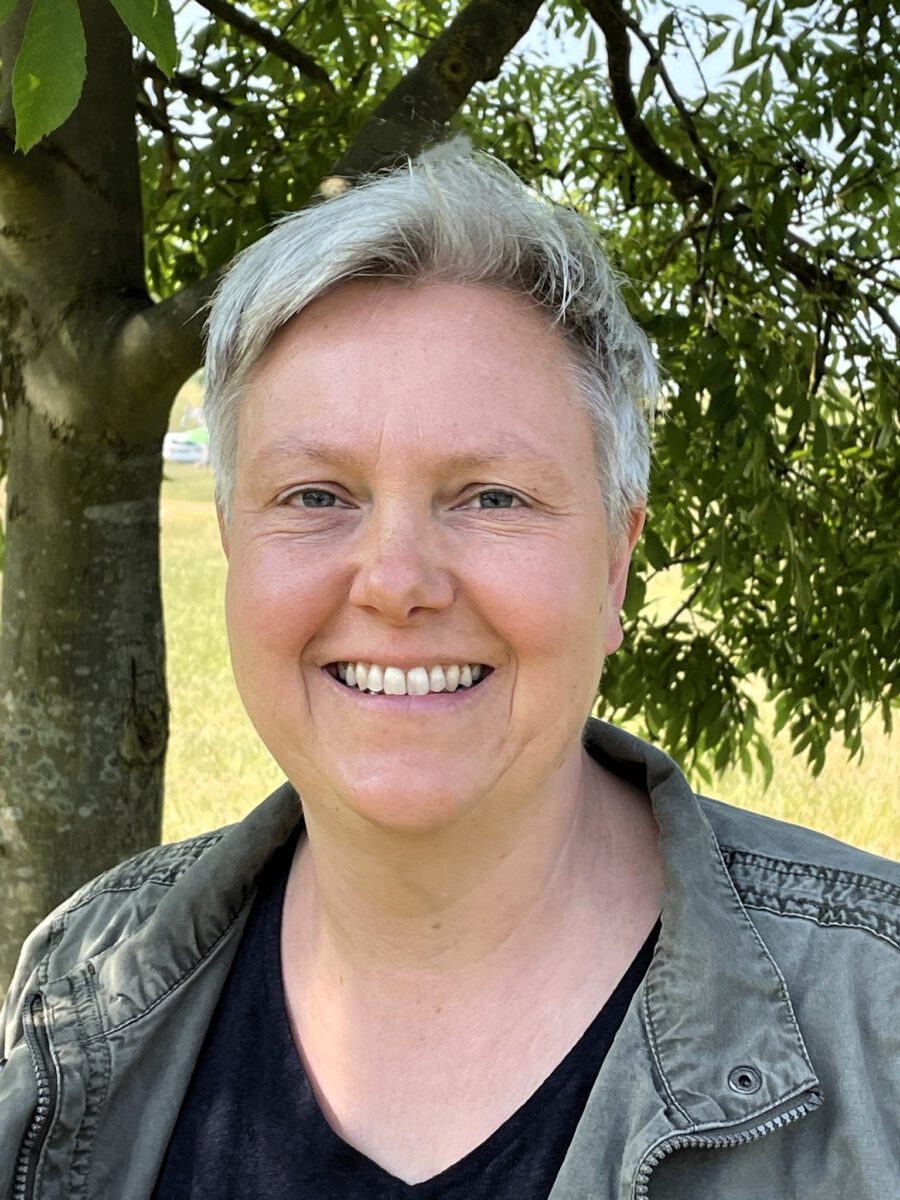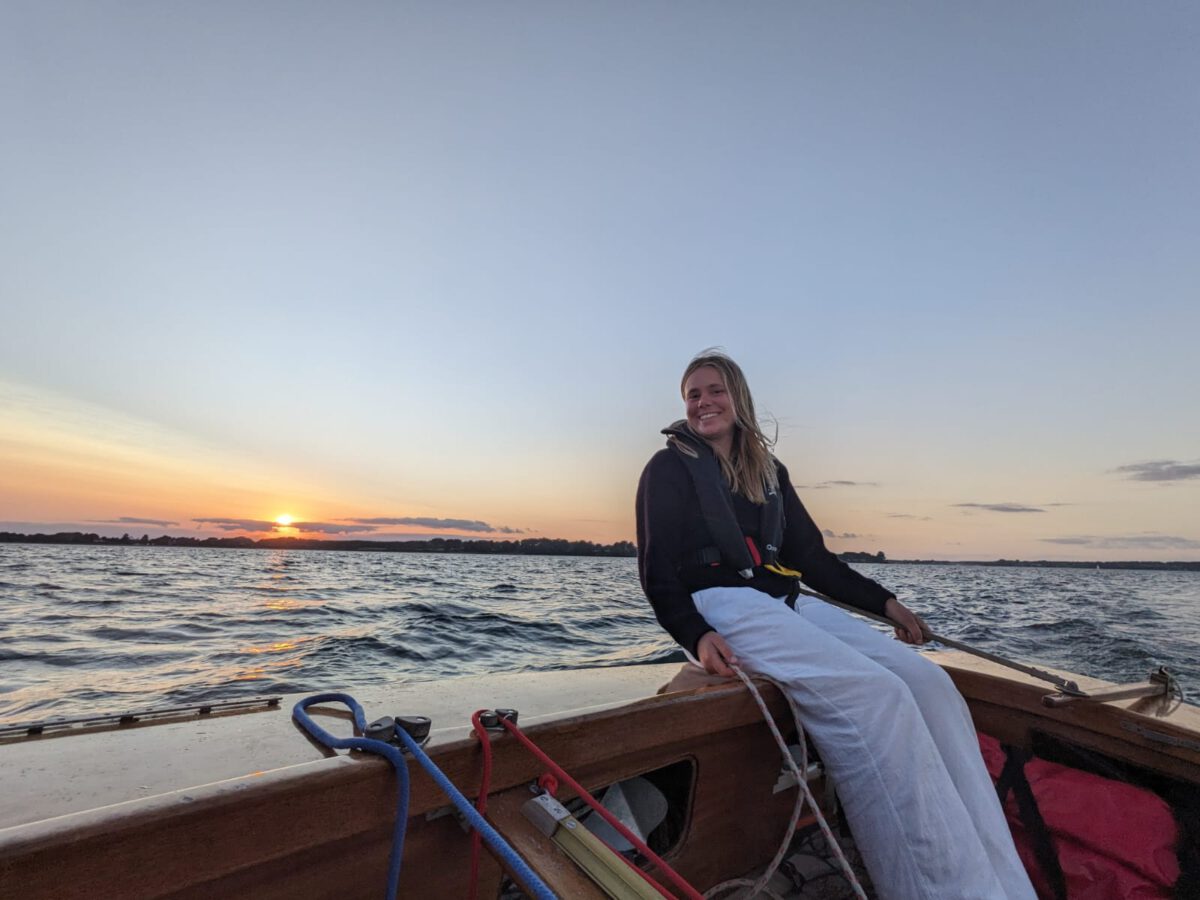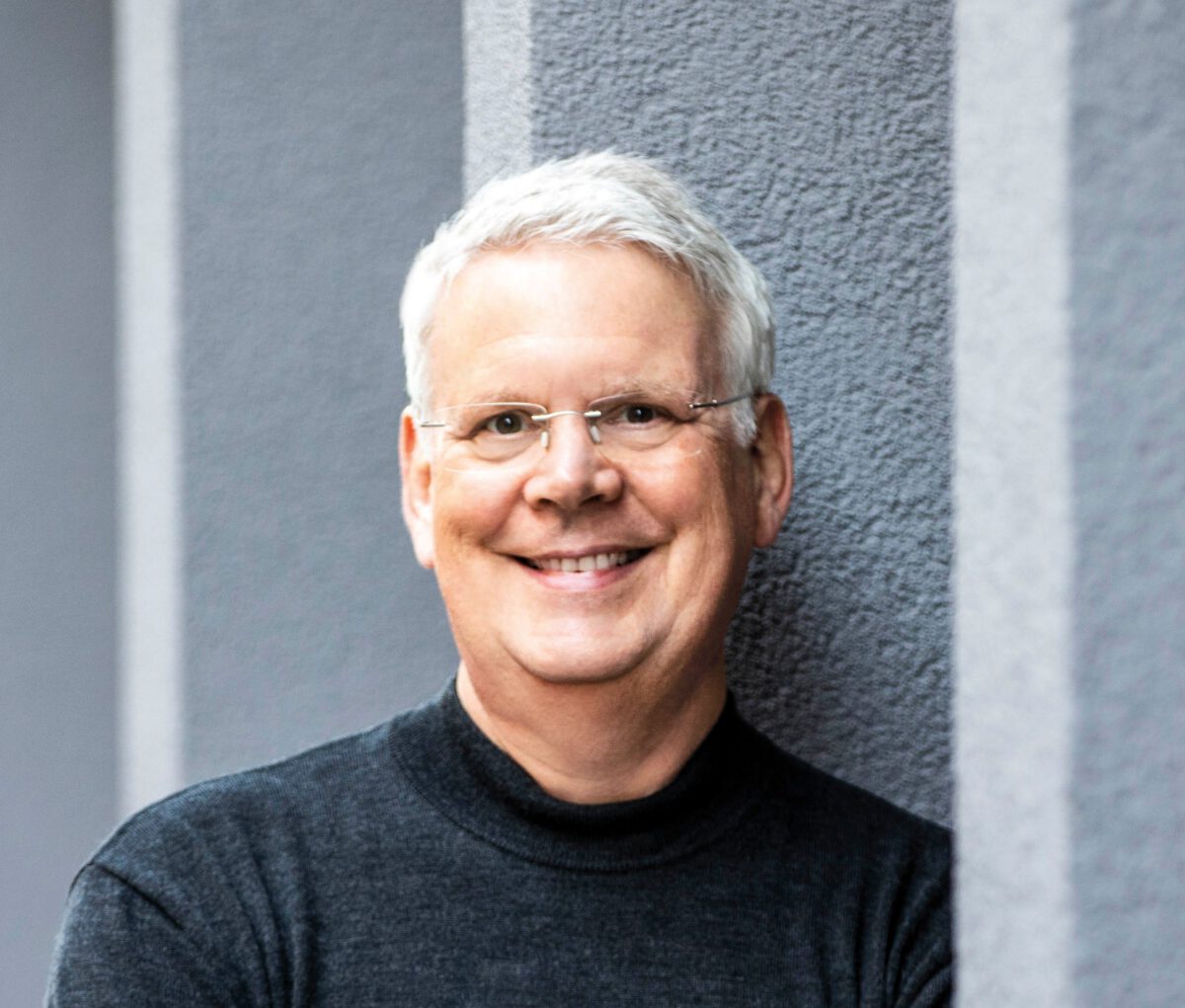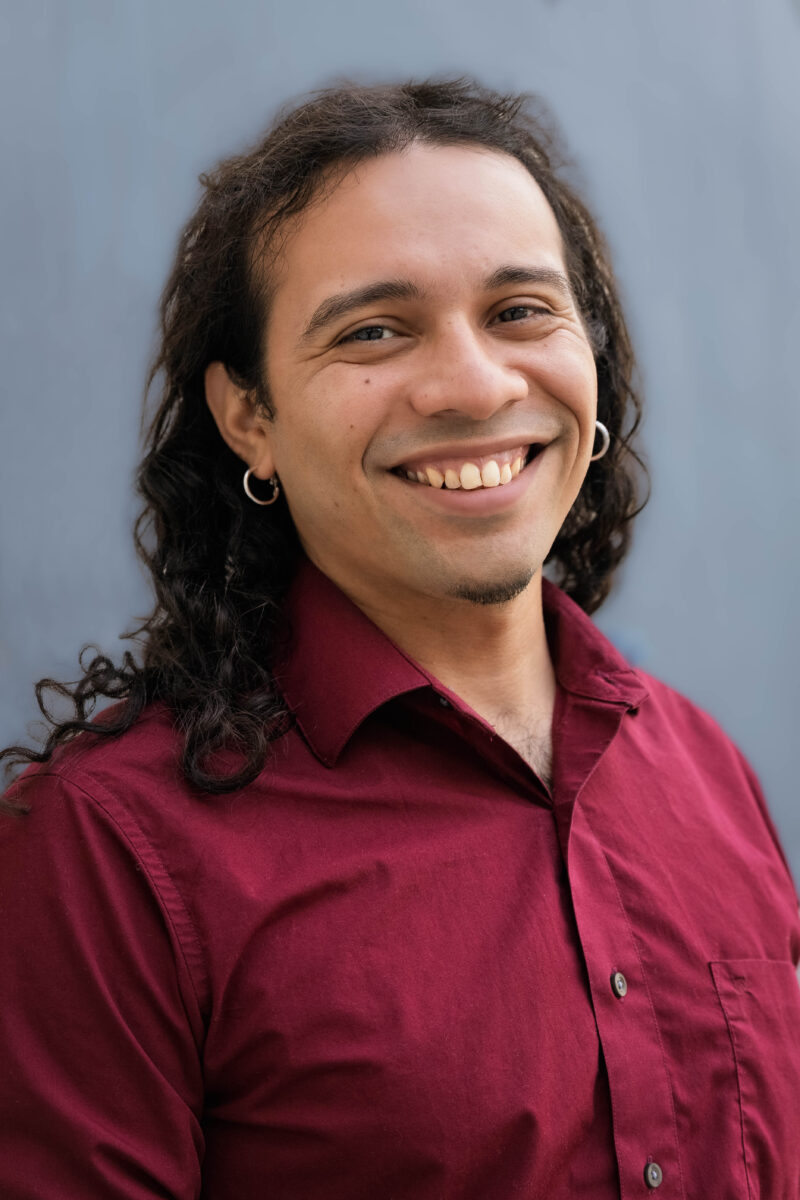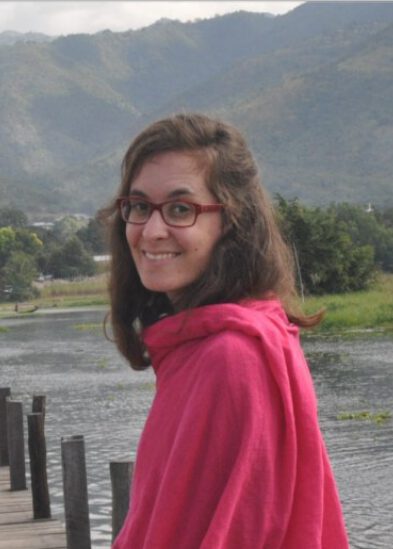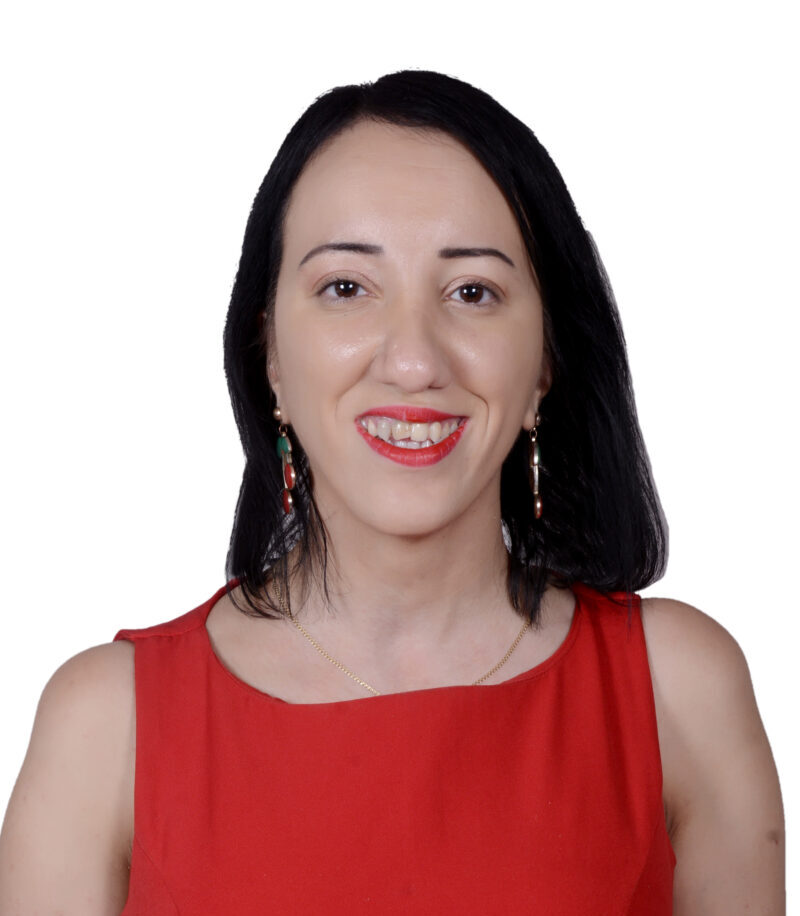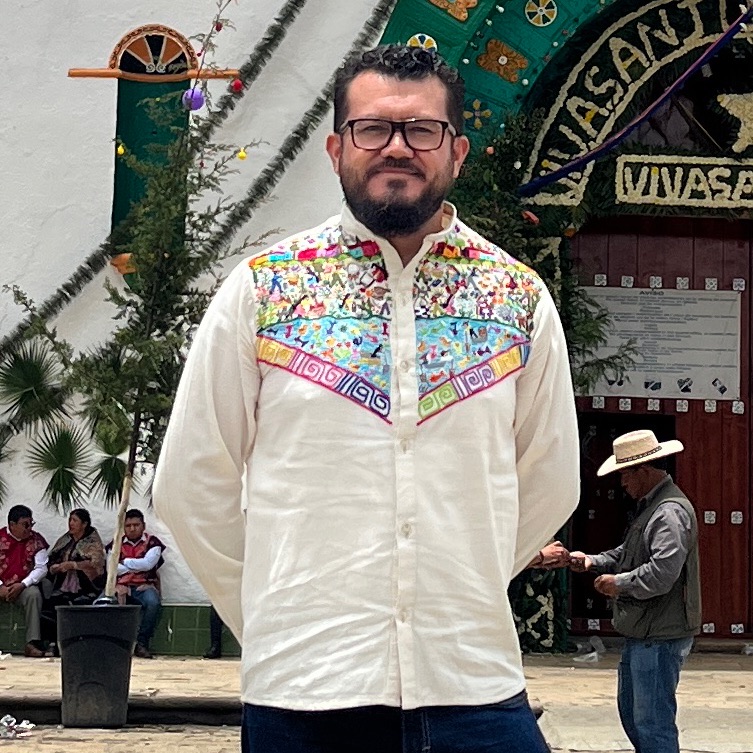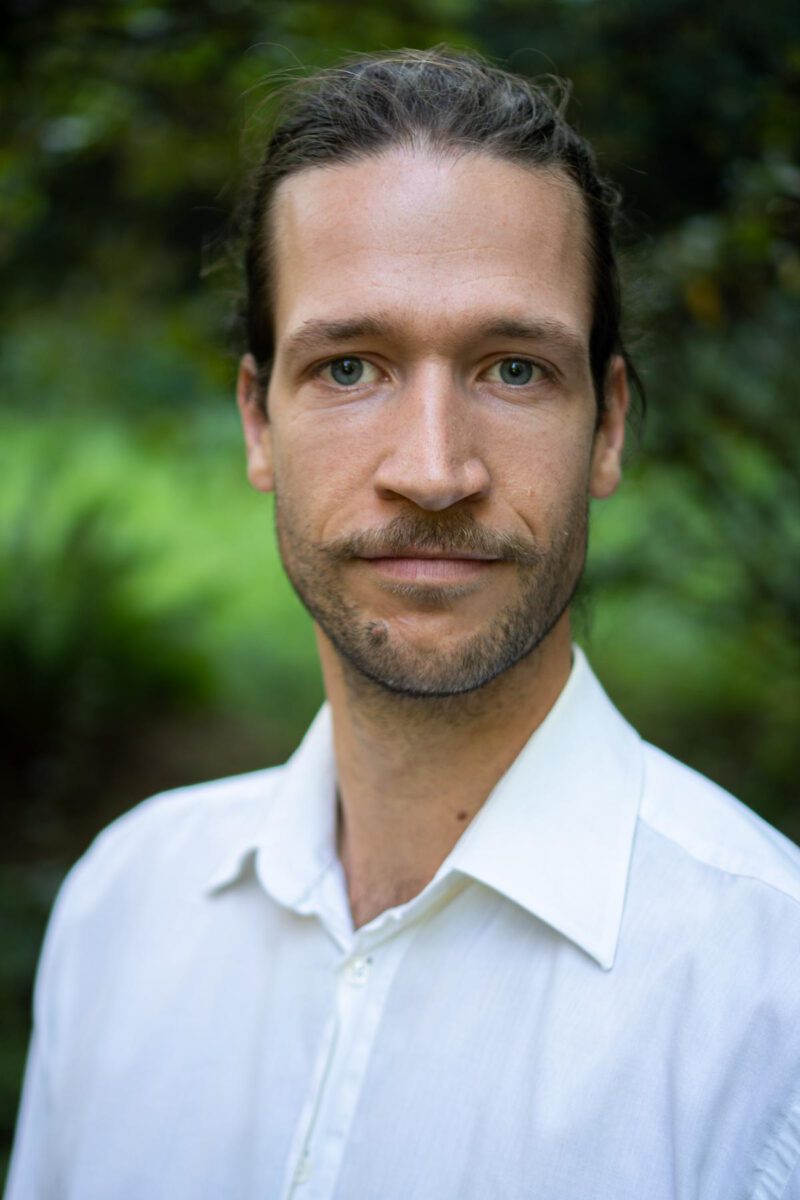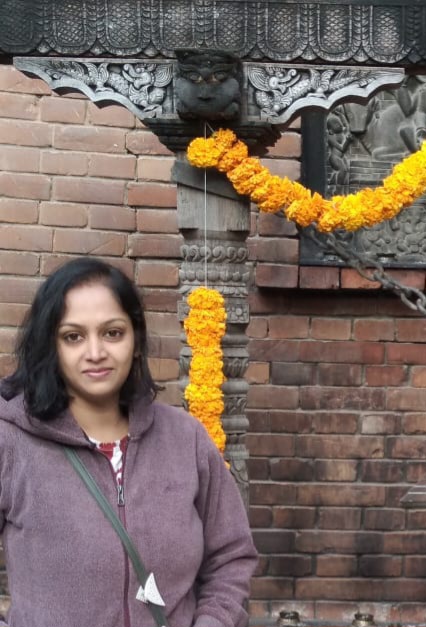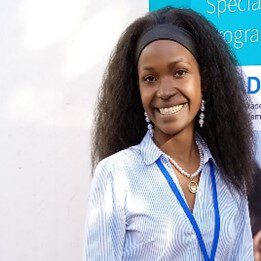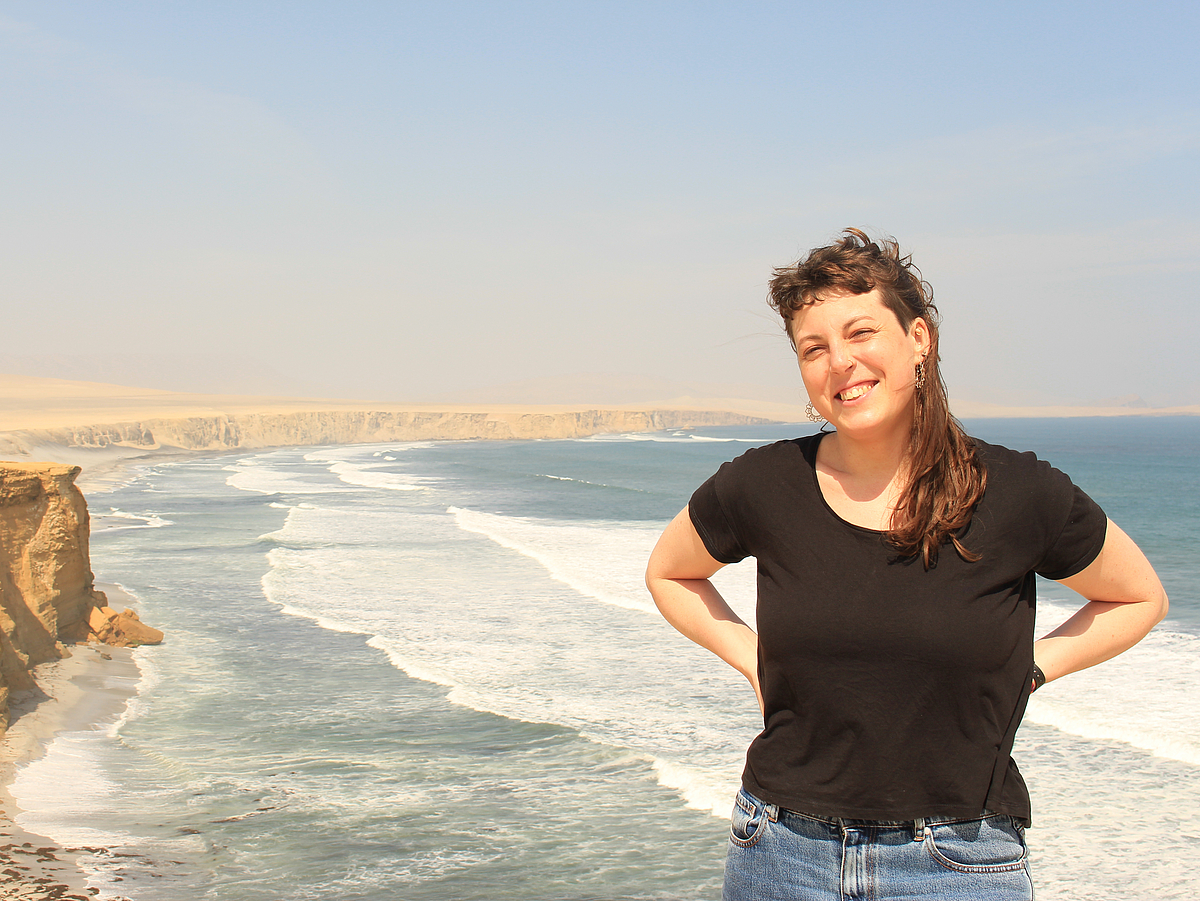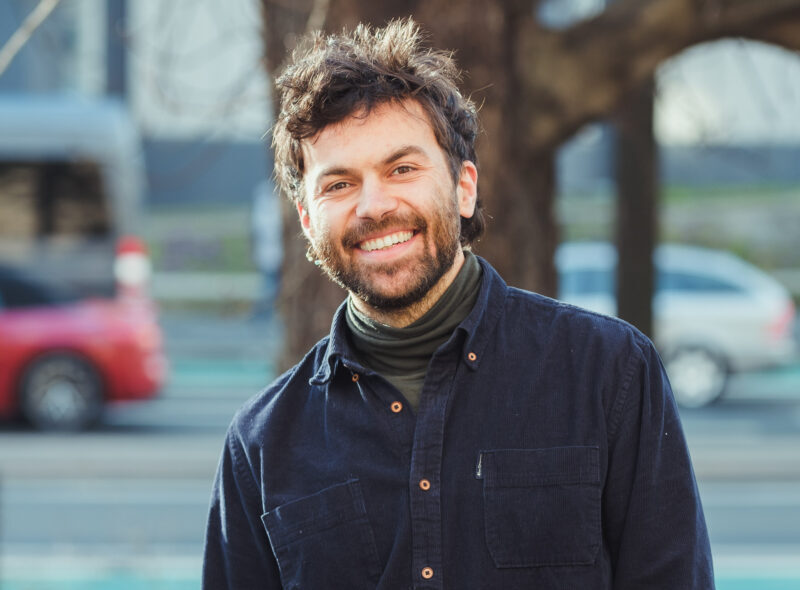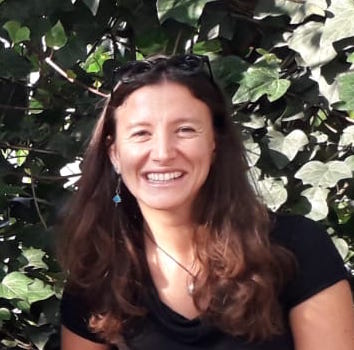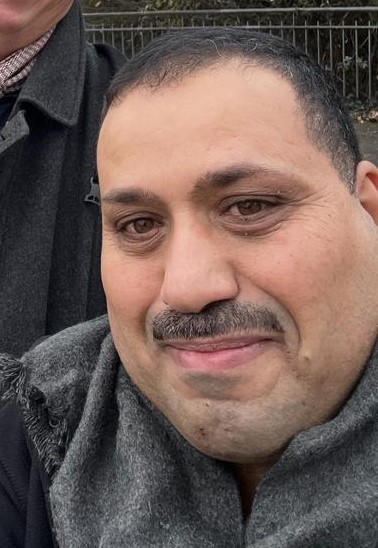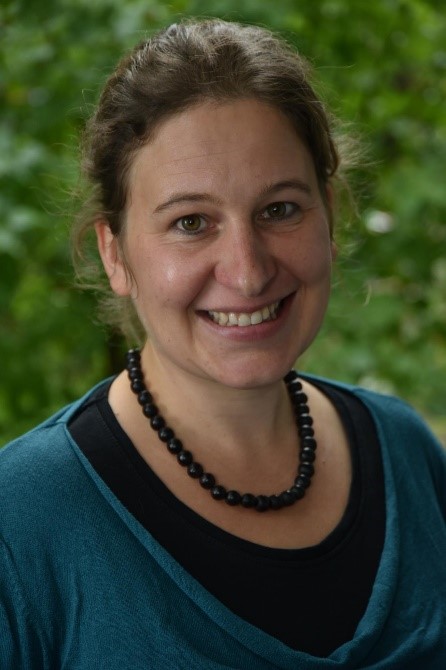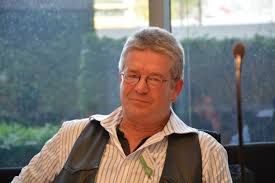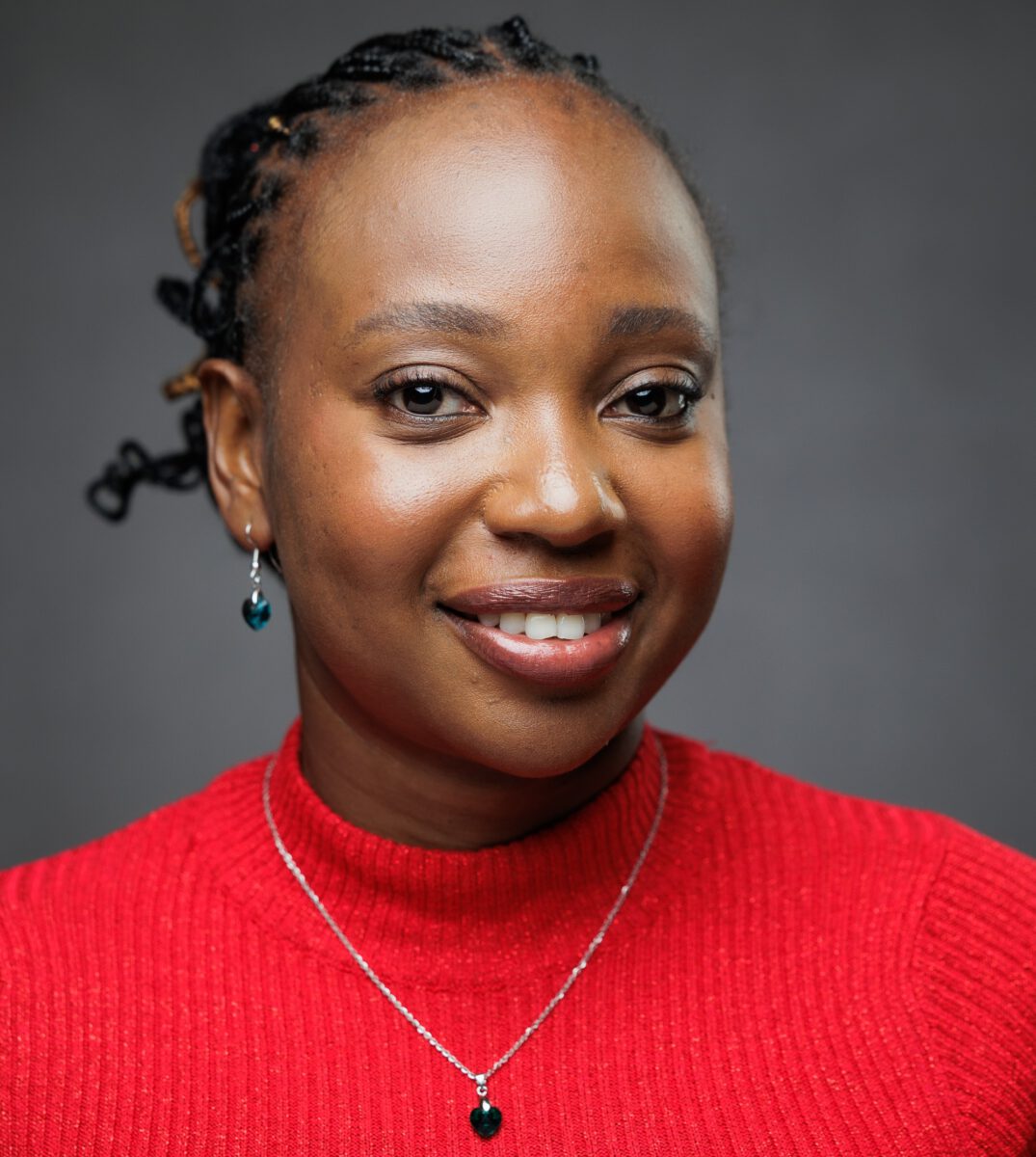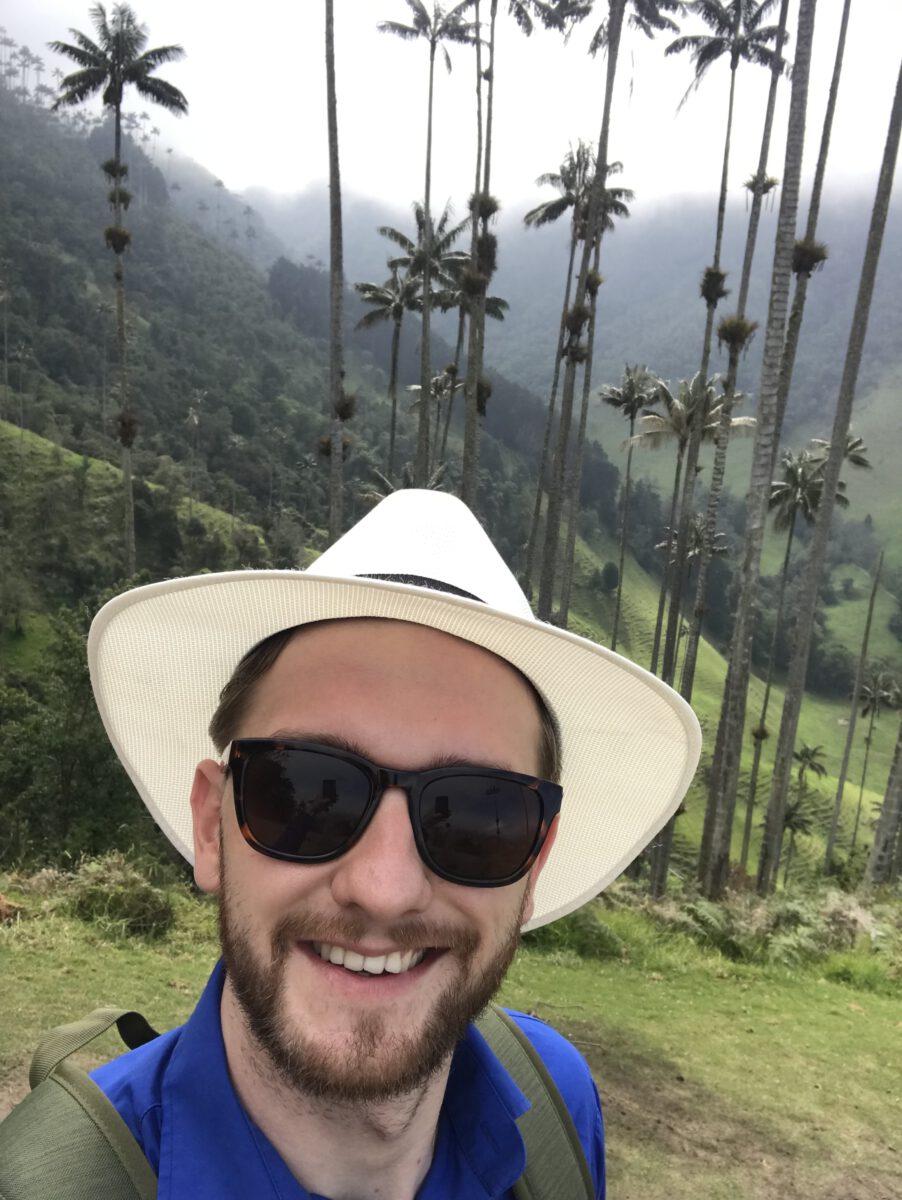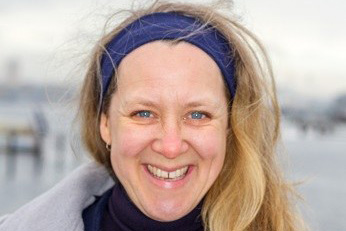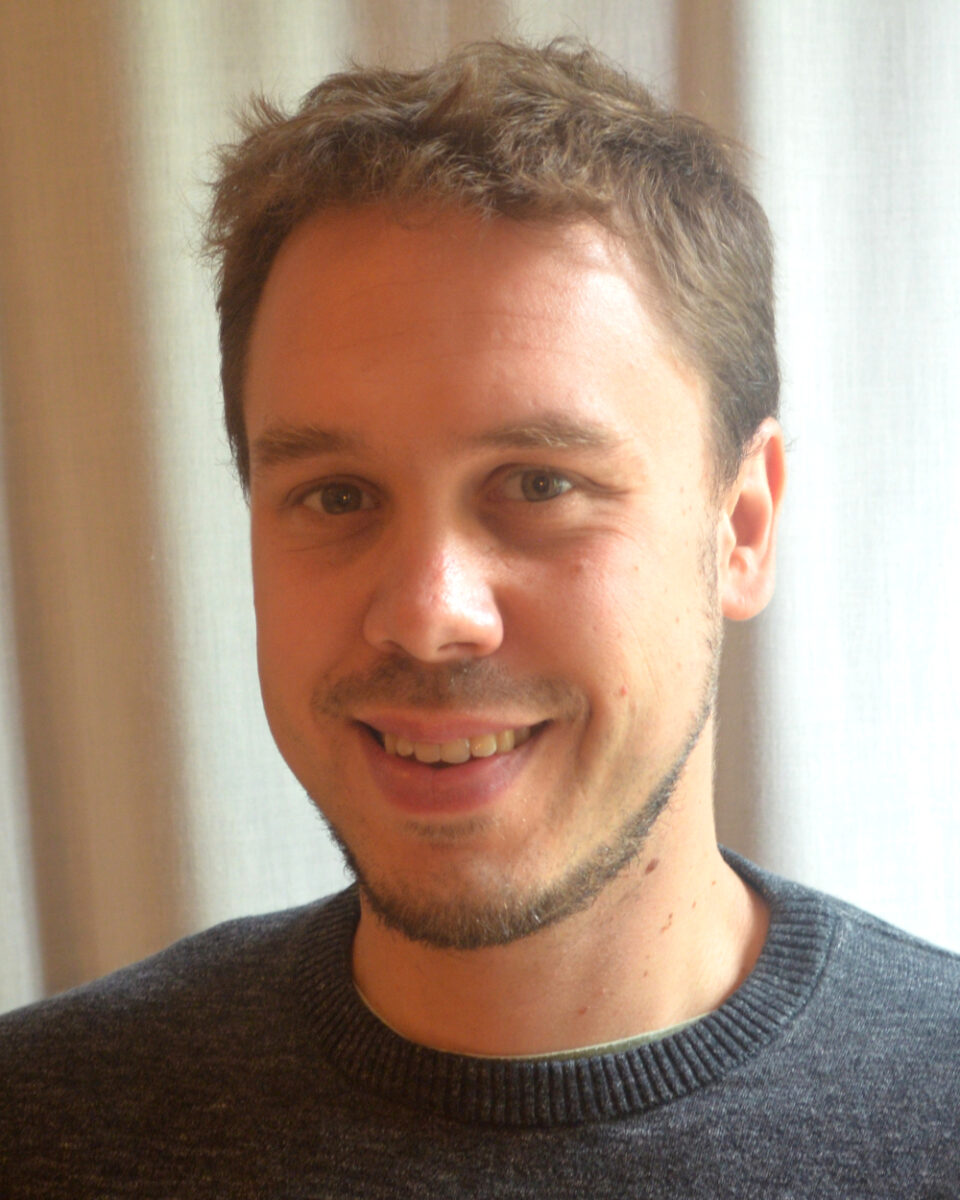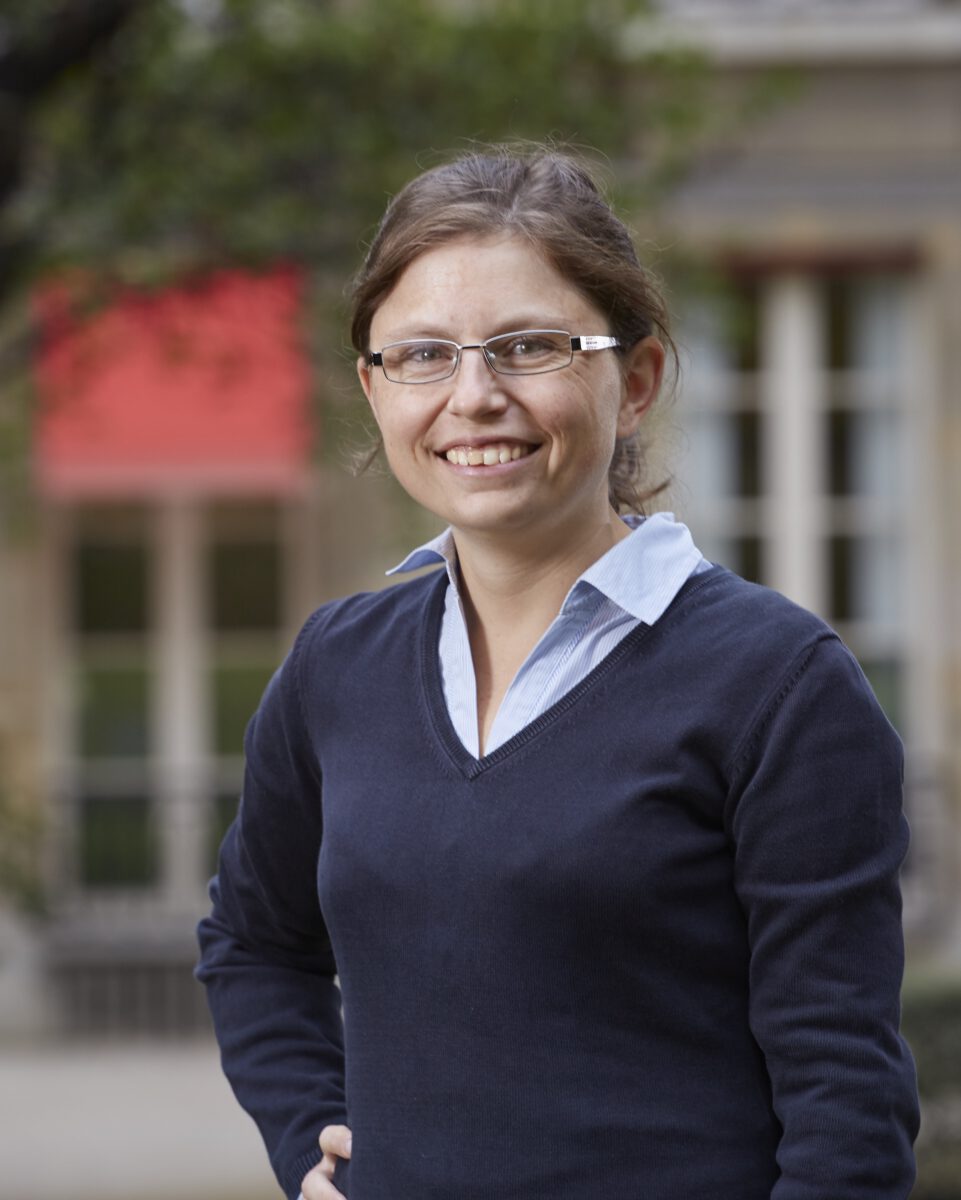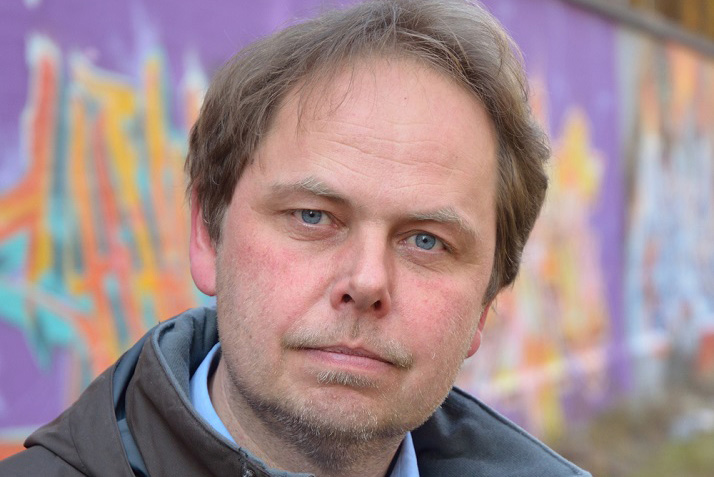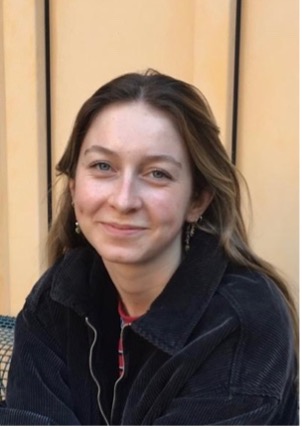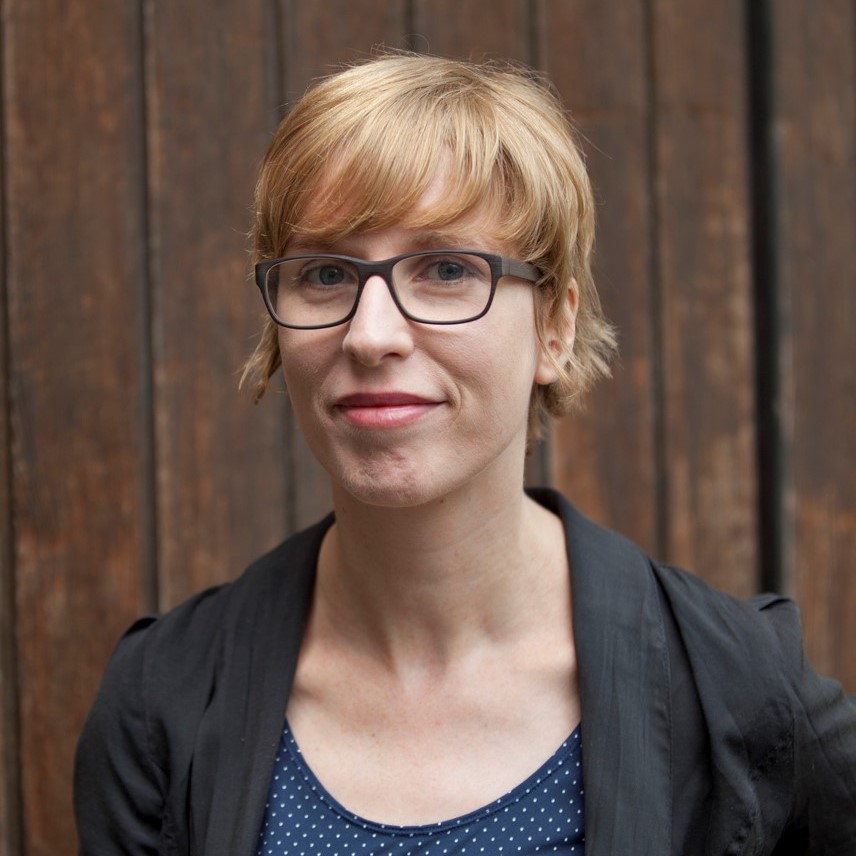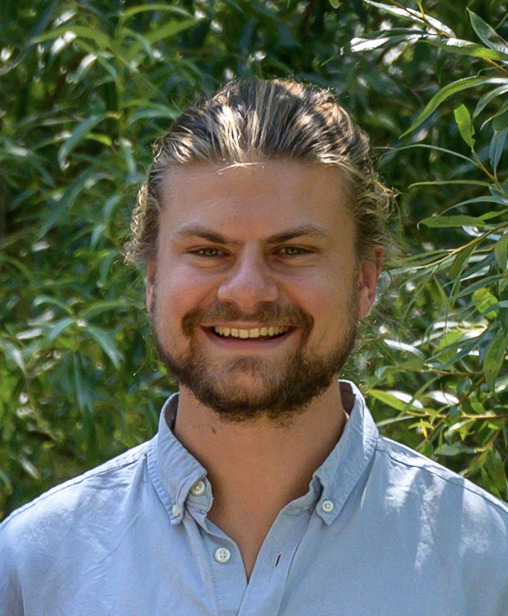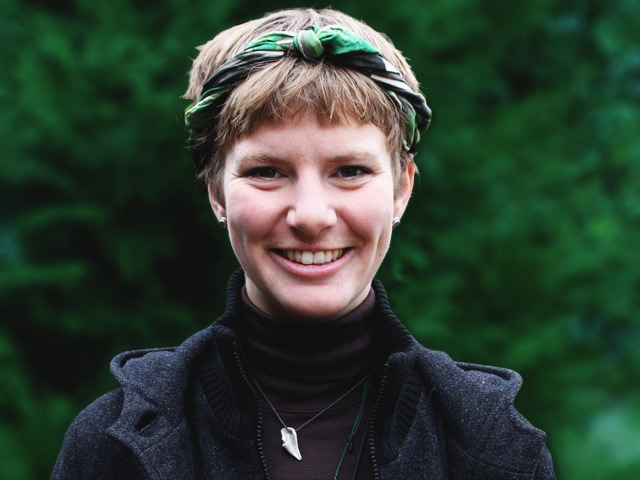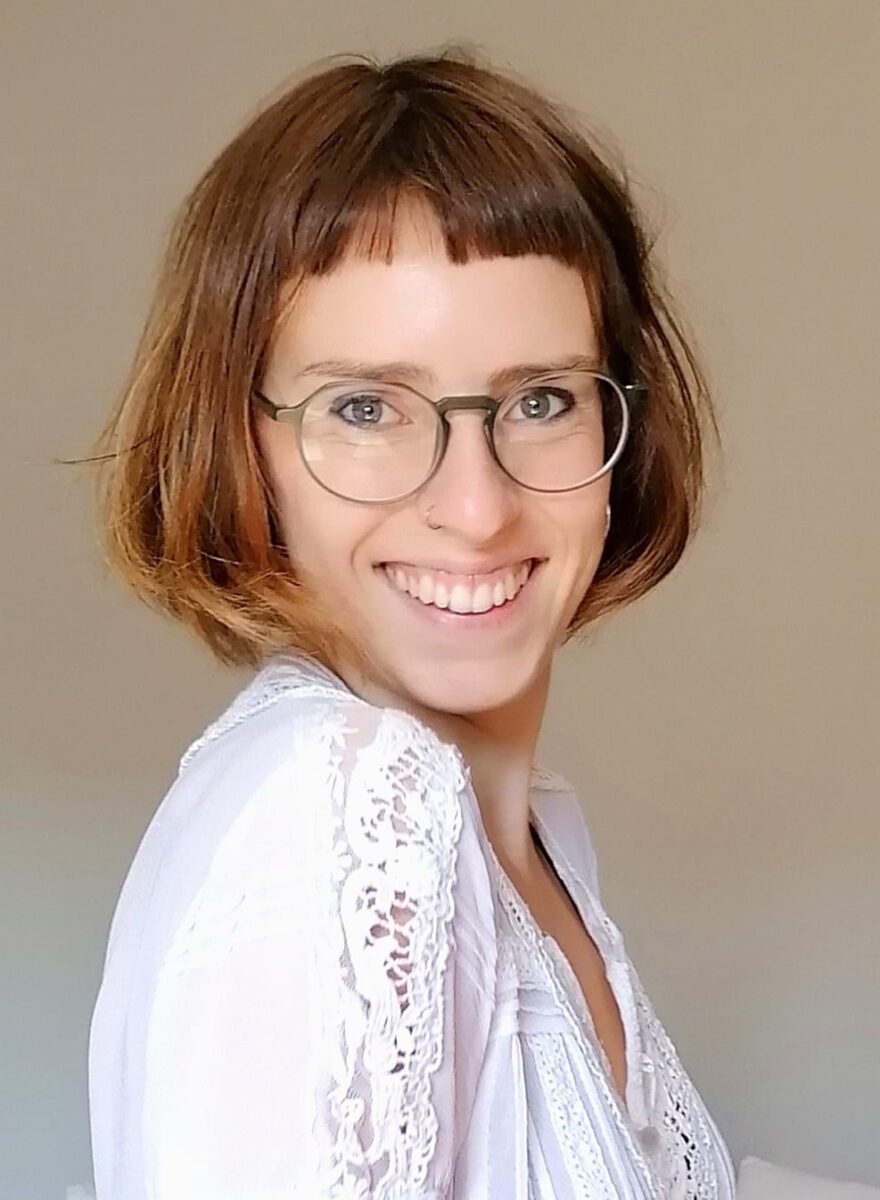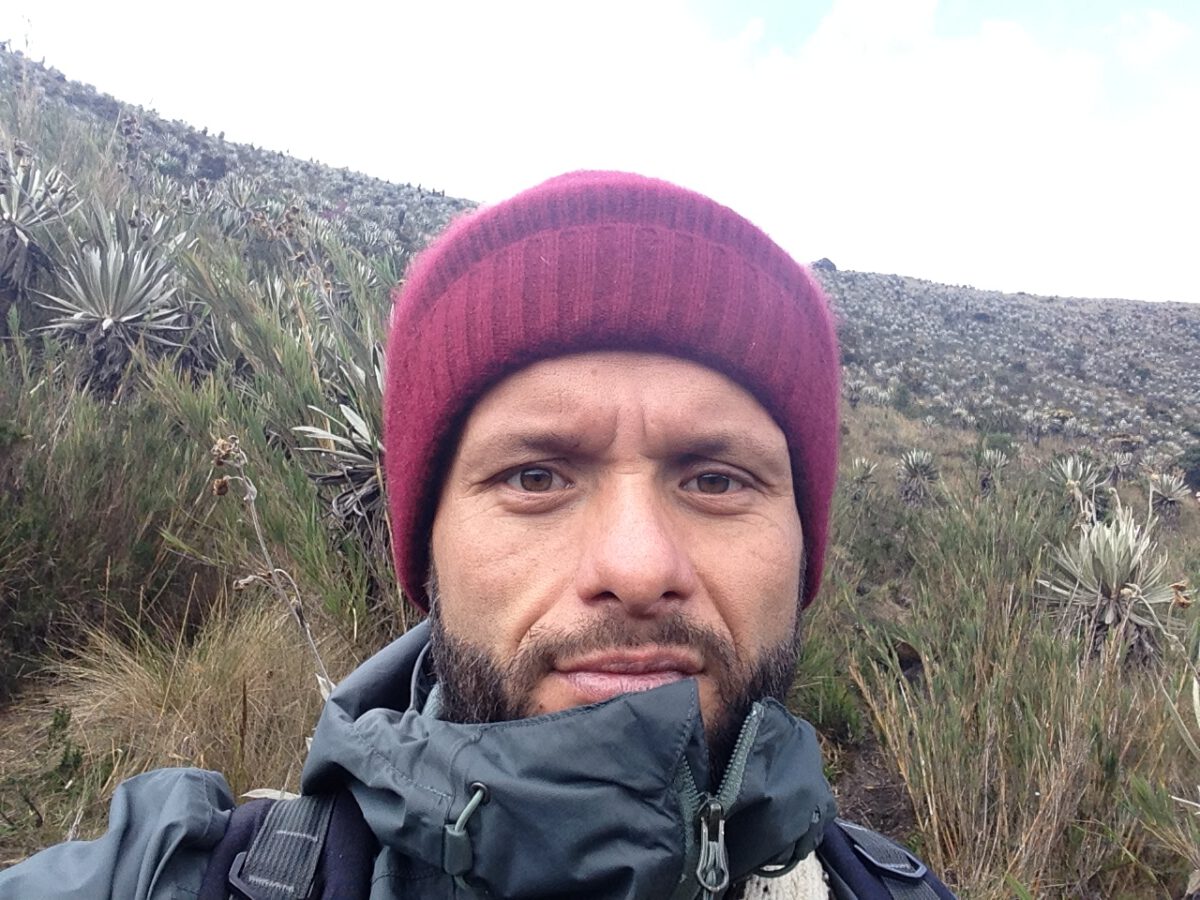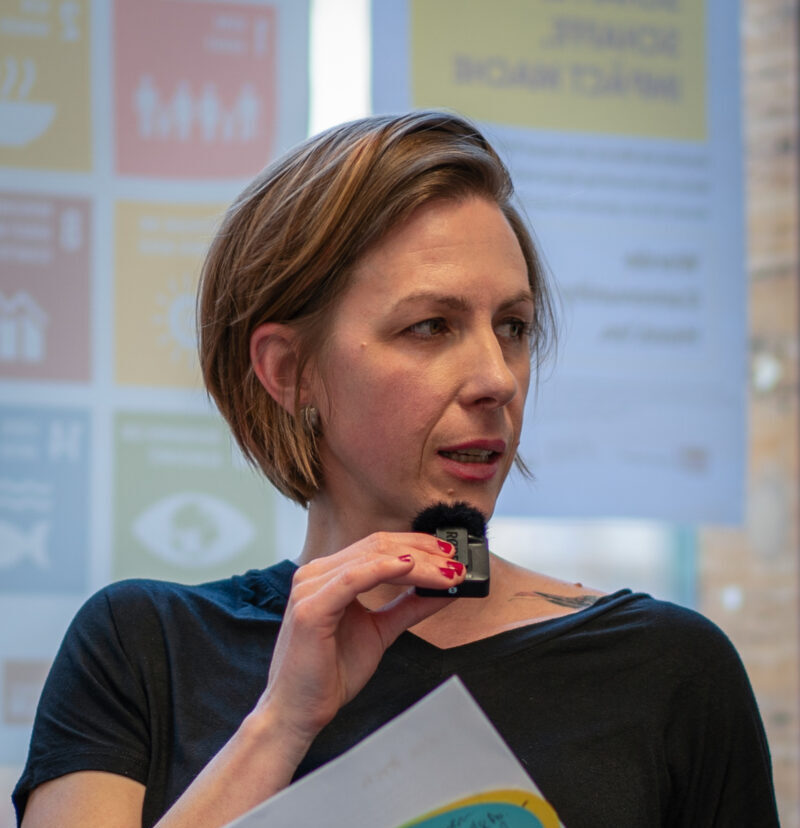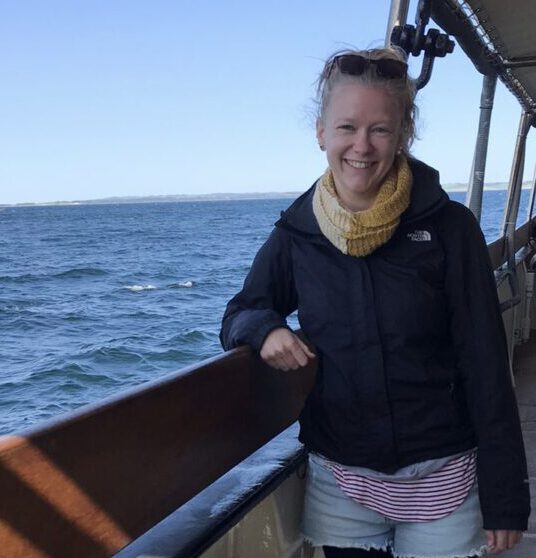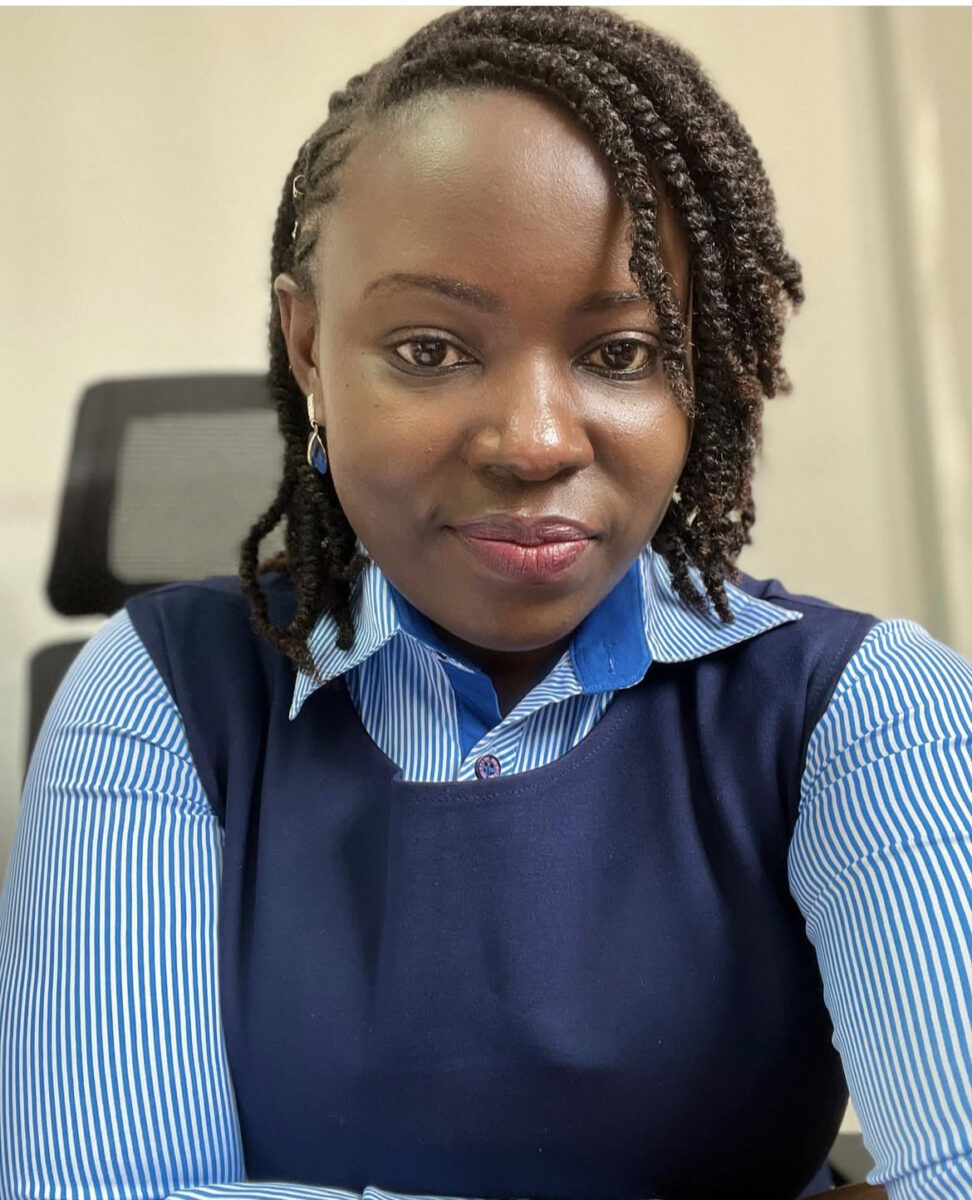Edgar Delgado Hernández
Sociologist and anthropologist
Bachelor in Sociology, Master in Social Anthropology and PhD student...
Edgar Delgado Hernández
Position: Sociologist and anthropologist
Email: edgar.dh@outlook.com
Categories: Ecological Economics, Indigenous Environmental Justice, Inter-and Transdisciplinary Research Methods, Political Ecology, Social Movements, Socio-Ecological Transformation, Urban and Regional Planning, Water Justice
Location: Chiapas, Mexico
Bachelor in Sociology, Master in Social Anthropology and PhD student in Social Sciences at the Center for Research and Higher Studies in Social Anthropology Western Regional Unit (CIESAS-Occidente) in the research line Environment and Society. His current research discusses, from a political ecology perspective, the unequal production of space in the peripheries, the scarcity and micro-privatization of water and water suffering.
Ravn Haid
Environmental Management Student
Student of the master program “Environmental Management” at the Christian-Albrechts-University...
Ravn Haid
Position: Environmental Management Student
Email: rav.haid@gmail.com
Categories: Climate Change Adaptation, Climate Politics, Degrowth, Ecological Economics, Energy Justice, Gender and Development, Inter-and Transdisciplinary Research Methods, Marine Social Science, Migration, Mobility Concepts, Political Ecology, Postcolonialism, Science and Technology Studies, Socio-Ecological Transformation, Urban and Regional Planning
Location: Kiel, Germany
Student of the master program “Environmental Management” at the Christian-Albrechts-University of Kiel. He is currently focusing on socio-technical imaginaries within the hydrogen energy transition in Schleswig-Holstein, Germany. Since Northern Germany has huge potentials for renewable energy production, the construction of a hydrogen energy infrastructure in Schleswig-Holstein is on its way. Ravn is researching the social and power relationships between the hydrogen transition expert-groups and the locally affected society with a special interest on the hydrogen infrastructure project “Westküste100” in Heide.
Country/Region of interest/research focus: France, Thailand, Germany/Schleswig-Holstein, STS research in hydrogen technologies
Keywords: Climate Change Adaptation, Climate Politics, Degrowth, Ecological Economics, Energy Justice, Gender and Development, Inter-and Transdisciplinary Research Methods, Marine Social Science, Migration, Mobility Concepts, Political Ecology, Postcolonialism, Science and Technology Studies, Socio-Ecological Transformation, Urban and Regional Planning
Marius Hübler
PhD Student
Marius Hübler is a PhD student within the working group...
Marius Hübler
Position: PhD Student
Email: huebler@geographie.uni-kiel.de
Categories: Climate Politics, Degrowth, Gender and Development, Inter-and Transdisciplinary Research Methods, Political Ecology, Socio-Ecological Transformation, Urban and Regional Planning
Location: Kiel, Germany
Marius Hübler is a PhD student within the working group of Silja Klepp at the Geography Department of Kiel University. With an interdisciplinary background in sustainability sciences and international economics, his main research interests are socio-ecological transformation processes, (economic) growth independent development models and structural possibilities to foster pathways towards climate justice and a ‘good life for all’. His PhD project investigates the current and potential role of sufficiency and degrowth approaches in municipal climate protection and regional development within rural regions in Schleswig-Holstein. With long-year experiences in hands-on sustainability education, he is keen in experimenting with transformative, participatory research methods.
Verena Sandner Le Gall
human geographer and postdoctoral lecturer/researcher
As a human geographer and postdoctoral lecturer/researcher at the Department...
Verena Sandner Le Gall
Position: human geographer and postdoctoral lecturer/researcher
Email: sandner@geographie.uni-kiel.de
Categories: Climate Change Adaptation, Indigenous Environmental Justice, Indigenous People and Local Communities, Marine Social Science, Political Ecology, Postcolonialism, Socio-Ecological Transformation
Location: Kiel, Germany
As a human geographer and postdoctoral lecturer/researcher at the Department of Geography/Kiel, I have been teaching Political Ecology and Environmental Justice classes as my favourites for more than 10 years. In my PhD-project, I studied the transformation of traditional marine resource use in Indigenous communities in Nicaragua/Panama, focusing on changing institutions and local knowledges embedded in spiritual worldviews, and on local perceptions of environmental change such as sea-level rise. The communities are entangled in struggles with powerful economic actors and interest groups on different levels of scales, as well as in struggles for recognition and territorial autonomy. In this context, the creation of neo-traditional institutions for resource use and the local discourses on the unity of human-nature relations embedded in wider discourses on Indigeneity have been fascinating. In other small projects I have worked on migration and exclusion of Romanian Roma in Germany/France and on a protest movement against a large gold-mining project in Romania. I have begun to participate in the Enjust network during the time of its founding in 2018.
Country/Region of interest/research focus: Latin America/Caribbean, France, Romania, Germany
Yvonne Kunz
Human Geographer
Researcher at the Royal Netherlands Institute for Southeast-Asian and Caribbean...
Yvonne Kunz
Position: Human Geographer
Email: kunz@kitlv.nl
Categories: Climate Change Adaptation, Socio-Ecological Transformation
Location: Leiden, The Netherlands
Researcher at the Royal Netherlands Institute for Southeast-Asian and Caribbean Studies (KITLV). Yvonne’s research interests are power asymmetries in access to natural resources. In her current research project she investigates climate change and governance in marine protected areas in the Dutch Caribbean and Indonesia. She is also involved in the DFG-funded project „Ecological and socio-economic functions of low land rainforest transformation systems in Sumatra, Indonesia“, where land and forests were the resources at focus, also in the context of governance and governability. Yvonne is also interested in feminist political ecologies.
Country/Region of interest/research focus: Dutch Caribbean, Indonesia
Armando Hernández de la Cruz
Sociologist, Gender Studies
Professor of society and environment, at El Colegio de la...
Armando Hernández de la Cruz
Position: Sociologist, Gender Studies
Email: ahernan@ecosur.mx
Categories: Climate Change Adaptation, Gender and Development, Political Ecology, Postcolonialism, Socio-Ecological Transformation
Location: Frontera, Mexico
Professor of society and environment, at El Colegio de la Frontera Sur. Member of the Academic Group of Gender Studies. Her current research in the Gulf Coast focuses on gender relations in fishermen’s households. Further research focuses on the cultural and social consequences of oil infrastructure development in the Gulf of Mexico, using theory from political ecology.
Country/Region of interest/research focus: Gulf of Mexico, Southeastern Mexico
Benno Fladvad
Human geographer
Humangeograph und wissenschaftlicher Mitarbeiter in der DFG-Kollegforschungsgruppe „Zukünfte der Nachhaltigkeit“...
Benno Fladvad
Position: Human geographer
Email: benno.fladvad@uni-hamburg.de
Categories: Food Justice, Legal Geographies, Political Ecology, Socio-Ecological Transformation
Location: Hamburg, Germany
Humangeograph und wissenschaftlicher Mitarbeiter in der DFG-Kollegforschungsgruppe „Zukünfte der Nachhaltigkeit“ an der Universität Hamburg. Seiner Dissertation beschäftigte sich mit den politischen Geographien der Kämpfe um Ernährungssouveränität in Bolivien, in deren Rahmen er mehrmonatige Forschungsaufenthalte durchführte. Seine Hauptforschungsinteressen sind Politische Geographie, Politische Ökologie, Geographien der Nahrung/Ernährung, Geographien der Gerechtigkeit sowie Nachhaltigkeits- und Transformationsforschung. Seine aktuellen Forschungsschwerpunkte liegen in konfligierenden Imaginationen von Nachhaltigkeit, Klimagerechtigkeit und geographische Perspektiven auf Demokratie im Anthropozän. Neben seinen akademischen Tätigkeiten arbeitete er für den WWF-Deutschland und den Naturschutzbund Deutschland (NABU).
Land/Interessenregion/Forschungsschwerpunkt: Südamerika, Bolivien
Laura McAdam-Otto
Anthropologist, Postdoctoral Researcher
Laura McAdam-Otto ist Ethnographin und Kulturwissenschaftlerin. Aktuell leitet sie an...
Laura McAdam-Otto
Position: Anthropologist, Postdoctoral Researcher
Email: otto@em.uni-frankfurt.de
Categories: Climate Change Adaptation, Climate Politics, Marine Social Science, Migration, Political Ecology, Science and Technology Studies
Location: Frankfurt, Germany
Laura McAdam-Otto ist Ethnographin und Kulturwissenschaftlerin. Aktuell leitet sie an der Goethe Universität in Frankfurt am Main das Forschungsprojekt „Making Algae (In-)Visible: Tourism, Responsibility and Governance along the Caribbean Coast of Mexico“ als Principle Investigator. Ihre Forschung ist an der Schnittstelle zwischen Kulturanthropologie, NaturenKulturen-Debatten und den Science and Technology Studies angesiedelt, und sie fokussiert Fragen nach Mensch-Umwelt-Beziehungen in der Karibik. Mit einem Fokus auf die Riviera Maya diskutiert das Forschungsprojekt, wie Verantwortung für Umweltveränderungen im Anthropozän ausgehandelt und verteilt wird, und rückt dabei Fragen nach Umweltgerechtigkeit und Governance in den Mittelpunkt.
Land/Interessenregion/Forschungsschwerpunkt: Karibik, speziell Mexiko, Yucatán Halbinsel
Francesca Rosignoli
Postdoctoral Researcher
Dr. Francesca Rosignoli (PhD 2016) is postdoctoral fellow at the...
Francesca Rosignoli
Position: Postdoctoral Researcher
Email: f.rosignoli@yahoo.it
Categories: International Law, Migration, Political Ecology
Location: Tarragona, Spain
Dr. Francesca Rosignoli (PhD 2016) is postdoctoral fellow at the Department of Public Law at the Universitat Rovira i Virgili (Spain), member of the CEDAT and coordinator of EJ-ITALY, the first research group made up of women only focusing on Environmental Justice (EJ) in Italy. Her research interests include environmental justice, global environmental governance, climate change, climate-induced migration, and collective capabilities. Her current research focuses on the role of gender and justice in climate-induced migration. Her latest monograph, Environmental Justice for Climate Refugees, was published by Routledge in May 2022. She is co-editor of the volumes ‚Climate Change Integration in the Multilevel Governance of Italy and Austria‘ (Brill 2022) and ‚Racism, Environment, Health. Environmental Racism and Health Inequalities‘ (PM 2022).
Environmental Research in the Human Science area
Claudia Horn, PhD
Dozentin für Politische Ökonomie
Claudia Horn ist promovierte Sozialwissenschaftlerin und Dozentin für Politische Ökonomie...
Claudia Horn, PhD
Position: Dozentin für Politische Ökonomie
Email: Claudia.horn@kcl.ac.uk
Categories: Agroecology, Climate Politics, Indigenous Environmental Justice, Indigenous People and Local Communities, Inter-and Transdisciplinary Research Methods, Political Ecology, Postcolonialism
Claudia Horn ist promovierte Sozialwissenschaftlerin und Dozentin für Politische Ökonomie am King’s College London. Sie forscht zu globaler Ungleichheit, Klimagerechtigkeit, Lateinamerika, Umwelt- und Entwicklungsfinanzierung. Ihr Buch „Klimahilfe mit Nebenwirkungen. Kooperation und Konflikt im Namen des Amazonas-Schutzes“ untersucht internationale Klimafinanzierung für Waldschutz in Brasilien. Ihr zweites Buch betrachtet die ökologische Kapitalismuskritik von Rosa Luxemburg. Zwischen 2018 und 2023 lebte sie in Belém, Brasilien, zuvor war sie Projektmanagerin bei der Rosa-Luxemburg-Stiftung in New York.
Land/Interessenregion/Forschungsschwerpunkt: Lateinamerika, Brasilien, Mexiko
Nils Hilder
Geographer
Student des Masterstudiengangs „Sustainability, Society and the Environment” in Kiel....
Nils Hilder
Position: Geographer
Email: nils.hilder@gmail.com
Categories: Climate Change Adaptation, Energy Justice, Food Justice, Marine Social Science, Political Ecology, Postcolonialism, Socio-Ecological Transformation
Location: Kiel, Germany
Student des Masterstudiengangs „Sustainability, Society and the Environment” in Kiel. Aktuell arbeitet er an seiner Masterthesis über den Infrastrukturausbau für eine grüne Wasserstoffwirtschaft an der Westküste Schleswig-Holsteins. Zuvor hat er über räumliche Konflikte im Rahmen der Hafenerweiterung des Hamburger Hafens gearbeitet. Forschungsinteressen sind Umwelt-/Energie-/Wasserstoffgerechtigkeit, Infrastruktur und politische Ökologie.
Land/Interessenregion/Forschungsschwerpunkt: Norddeutschland, insbesondere Schleswig-Holstein und Hamburg
Somaieh Samimi
PhD Student, Iran
I am Somaieh Samimi, a PhD student in environmental science...
Somaieh Samimi
Position: PhD Student, Iran
Email: Somaieh.samimi@gmail.com
Categories: Degrowth, Ecological Economics, Inter-and Transdisciplinary Research Methods, Marine Social Science, Political Ecology
I am Somaieh Samimi, a PhD student in environmental science from Iran. The field I am interested in is political ecology. The role of power at any scale in access and environmental justice fascinates me. Injustice in the distribution of natural resources, as well as recently, injustice in the distribution of the consequences of excessive consumption of resources such as fossil fuels, is an issue that must be addressed on a global scale. Countries – and within countries, peripheral regions – are being depleted and are often exposed to natural disasters of human origin. This injustice becomes a gap that widens the distance between people in every field. Here and throughout my research, I am looking for a mechanism to bridge this gap and turn injustice into justice.
Country/Region of interest/research focus: Iran and East Asia
Colin von Negenborn
Postdoc Researcher
Colin von Negenborn ist Postdoktorand an der Christian-Albrechts-Universität zu Kiel,...
Colin von Negenborn
Position: Postdoc Researcher
Email: cvnegenborn@wsi.uni-kiel.de
Categories: Climate Change Adaptation, Ecological Economics, Inter-and Transdisciplinary Research Methods, Marine Social Science
Location: Kiel, Germany
Colin von Negenborn ist Postdoktorand an der Christian-Albrechts-Universität zu Kiel, wo er am Philosophischen Seminar und am Walther-Schücking Institut für Internationales Recht forscht. Nach einem Studium der Physik (ETH Zürich) promovierte er in Volkswirtschaftslehre (HU Berlin). In seiner Dissertation befasste er sich mit der Methodik des Mechanismusdesigns, einem Teilgebiet der Spieltheorie. Die Sprache der Spieltheorie verwendet er nun in der Philosophie, wo er sich mit Fragen prozeduraler Gerechtigkeit beschäftigt: Wie können Abstimmungsverfahren und Entscheidungsprozesse „fair“ gestaltet werden?
Alicia M. Wach
PhD Candidate :Environmental Ethics and Sustainability Sciences
Having a background in environmental sciences my focus shifted from...
Alicia M. Wach
Position: PhD Candidate :Environmental Ethics and Sustainability Sciences
Email: alicia.wach@univie.ac.at
Location: Vienna, Austria
Having a background in environmental sciences my focus shifted from natural sciences towards questions of responsibility and justice in my two masters programs on Environmental Ethics and Sustainability Science. Having studied in Lima, Lisbon and Kiel, I am passionate about coastal regions and inter- as well as transdisciplinary knowledge transfer. During my time at Potsdam Institute for Climate Impact Research, I was able to broaden my view connecting climate issues with migration, agriculture and biodiversity with partner countries from three continents. I currently am a PhD Candidate at Vienna University, in a project in Ethics.
Country/Region of interest/research focus: Wetlands, Coastal regions, Amazonian region
Mandy Geise
Anthropologist, Postdoctoral Researcher
Anthropologist of health, the environment and collective experimentation. She currently...
Mandy Geise
Position: Anthropologist, Postdoctoral Researcher
Email: mandygeise@protonmail.com
Categories: Agroecology, Climate Change Adaptation, Climate Politics, Food Justice, Gender and Development, Inter-and Transdisciplinary Research Methods, International Law, Political Ecology, Social Movements, Socio-Ecological Transformation, Water Justice
Location: Germany, Netherlands
Anthropologist of health, the environment and collective experimentation. She currently studies community-based initiatives, including citizen science and technologies, to assess and adapt to environmental degradation, as a postdoctoral researcher at the International Institute of Social Studies of Erasmus University Rotterdam. She has been working on various topics related to human-environment relations, science and technology studies, citizen science, and global health in Latin America and Europe, including pollution and climate change, disaster response and preparedness, infectious diseases, and the sociopolitical aspects of food.
Mandy also collaborates with the NGO the Ocean and Us, exploring multispecies relations in ocean governance and community-driven and care-ful approaches to conservation and protection of the deep sea and its inhabitants.
In her work Mandy uses and combines collaborative and qualitative methods and often works together with researchers from diverse disciplines, practitioners, civil society organizations, community organizers and activists. She obtained her PhD from the École des Hautes Études en Sciences Sociales in Paris.
Country/Region of interest/research focus: Mexico, Costa Rica, Chile, Ecuador, Pacific Ocean, Spain, the Netherlands
Libertad Chavez-Rodriguez
Researcher and Lecturer at the Center for Research and Advanced Studies in Social Anthropology
Forscherin und Dozentin am CIESAS in Monterrey, Mexiko, und Mitglied...
Libertad Chavez-Rodriguez
Position: Researcher and Lecturer at the Center for Research and Advanced Studies in Social Anthropology
Email: libertadchavez@ciesas.edu.mx
Categories: Climate Change Adaptation, Gender and Development, Mobility Concepts, Socio-Ecological Transformation
Location: Monterrey, Mexico
Forscherin und Dozentin am CIESAS in Monterrey, Mexiko, und Mitglied des nationalen Forschungsrates Sistema Nacional de Investigadores (SNI). Sie engagiert sich ebenfalls beim aktivistischen WissenschaftlerInnenkollektiv Académic@s de Monterrey 43 und ist Mitglied der Redgesma (Netzwerk für Gender und Umwelt). In ihrer aktuellen Forschung widmet sie sich der sozialräumlichen Segregation und der sozialen Verwundbarkeit gegenüber hydro-meteorologischen Gefährdungen. Dabei wendet sie hauptsächlich sozial-anthropologische Methoden an. Bei der Untersuchung sozio-ökologischer Fragen integriert sie die Perspektiven der Gender Studies und der politischen Ökologie. Ihre Arbeitsschwerpunkte sind: soziale Verwundbarkeit durch Klimawandel; Geschlecht und Umwelt; Intersektionalität und Katastrophen; urbane Mobilität und Umweltgerechtigkeit. Zu den bisherigen Forschungsregionen von Libertad gehören Norddeutschland, die Halbinsel Yucatán und der Nordosten Mexikos.
Land/Interessenregion/Forschungsschwerpunkt: Mexiko, Deutschland
Liv Yoon
Postdoctoral Research Scholar
Dr. Liv Yoon’s research is at the intersection of climate...
Liv Yoon
Position: Postdoctoral Research Scholar
Email: ly2512@columbia.edu
Categories: Climate Politics, Energy Justice, Inter-and Transdisciplinary Research Methods, Socio-Ecological Transformation
Location: New York, US
Dr. Liv Yoon’s research is at the intersection of climate change, social inequity, and health, with a focus on community engagement work. As a social scientist, she approaches climate change as a sociopolitical crisis. Her research is focused on taking climate change as an opportunity to challenge the status quo and promote structural changes that alleviate social inequities that both led to, and are exacerbated by, the climate crisis.
Dr. Yoon obtained her Ph.D. at The University of British Columbia in Vancouver, Canada, in Sociocultural Kinesiology. Her training in socio-cultural studies informs her to think about bodies in sociopolitical context. Applied to climate change, this means thinking about how some bodies are considered more ‘dispensable’, and in turn, rendered more vulnerable to climate-related risks and pollution.
She is a Fellow with the New York City Panel on Climate Change – Health Working Group, a member of the Community Engagement Core at the Center for Environmental Health in Northern Manhattan, and member of Columbia University’s Environmental Justice and Climate Just Cities (EJCJC).
Country/Region of interest/research focus: North America (but not limited to it)
Sébastien Boillat
Senior Researcher in Integrative Geography
Senior Researcher in Integrative Geography at the University of Bern....
Sébastien Boillat
Position: Senior Researcher in Integrative Geography
Email: sebastien-pierre.boillat@bfh.ch
Categories: Agroecology, Postcolonialism, Socio-Ecological Transformation
Location: Bern, Switzerland
Senior Researcher in Integrative Geography at the University of Bern. His current research focuses on agroecological transitions in sub-Saharan Africa with a critical perspective and an emphasis on social justice aspects. His research has the overall objective of integrating social-ecological thinking and the idea of justice. This includes conceptual and empirical work looking at environmental justice issues in telecoupled social-ecological systems, the relevance of cognitive justice in environmental governance and ecosystem management, and resilience justice in relation with climate change, natural resource governance and rural smallholders in the Global South. His main research areas are in Latin America (Bolivia, Cuba, Brazil) and in sub-Sahran Africa (Senegal, Kenya).
Country/Region of interest/research focus: Mountain Regions, Latin America, Africa
Sören Weißermel
Human Geographer
Sören Weißermel ist Humangeograph und Postdoktorand am Geographischen Institut der...
Sören Weißermel
Position: Human Geographer
Email: weissermel@geographie.uni-kiel.de
Categories: Climate Politics, Energy Vulnerability, Postcolonialism, Socio-Ecological Transformation
Location: Kiel, Germany
Sören Weißermel ist Humangeograph und Postdoktorand am Geographischen Institut der Universität Kiel. Interessenschwerpunkte sind Mensch-Umwelt-Beziehungen, Kritische Entwicklungsforschung, Stadtforschung und städtische Klimapolitik. In seinem Dissertationsprojekt beschäftigte er sich mit Prozessen der Enteignung und Prekarisierung marginalisierter und invisibilisierter Menschen und Lebensformen im Zusammenhang mit dem Bau des Kraftwerks Belo Monte (Brasilien) und ihrem Kampf um Anerkennung und (Umwelt-)Gerechtigkeit. In seinem aktuellen Projekt konzentriert er sich auf die sozialräumlichen Implikationen städtischer Klimapolitik in Städten des globalen Nordens.
Land/Interessenregion/Forschungsschwerpunkt: Lateinamerika (Brasilien), Norddeutschland
Laura Curry
Artist, Educator, Consultant concerning Justice and Equity
Als transdisziplinäre Künstlerin, Pädagogin und Beraterin, die in den Bereichen...
Laura Curry
Position: Artist, Educator, Consultant concerning Justice and Equity
Email: lauracurry1@me.com
Categories: Agroecology, Climate Change Adaptation, Climate Politics, Energy Justice, Food Justice, Gender and Development, Indigenous Environmental Justice, Indigenous People and Local Communities, Inter-and Transdisciplinary Research Methods, International Law, Legal Geographies, Migration, Mobility Concepts, Postcolonialism, Public Health, Social Movements, Socio-Ecological Transformation, Urban and Regional Planning
Als transdisziplinäre Künstlerin, Pädagogin und Beraterin, die in den Bereichen Video, Installation, Performance und Zusammenarbeit arbeitet, stellt Curry ökologische, wirtschaftliche, politische und geschlechtsspezifische Strukturen in den Mittelpunkt. Currys forschungsbasierte Praxis umrahmt ihre Projekte mit den verschiedenen ortsspezifischen Erzählungen, die unkonventionelle Methoden der Forschung und des Aktivismus miteinander verbinden. Indem sie Projekte in den Bereichen Stadtplanung und Design in Zusammenarbeit mit den Gemeinden, in denen sie arbeitet, entwickelt, entstehen aus den Begegnungen und Interaktionen sehr persönliche, dynamische und zum Nachdenken anregende Erfahrungen und Konzepte.
Laura hat Projekte in Nord- und Südamerika, Europa und der Karibik durchgeführt und ist international ausgestellt worden.
Anika Schmidt
Social Geographer
Anika Schmidt ist wissenschaftliche Mitarbeiterin am Helmholtz-Zentrum für Umweltforschung –...
Anika Schmidt
Position: Social Geographer
Email: anika.schmidt@ufz.de
Categories: Climate Change Adaptation, Gender and Development, Inter-and Transdisciplinary Research Methods, Migration, Political Ecology, Socio-Ecological Transformation, Urban and Regional Planning
Location: Leipzig, Germany
Anika Schmidt ist wissenschaftliche Mitarbeiterin am Helmholtz-Zentrum für Umweltforschung – UFZ in Leipzig, am Department Stadt- und Umweltsoziologie. Sie forscht u.a. zu urbaner Governance, (kooperative) Prozesse der Grünraumentwicklung und sozial-räumlichen Konsequenzen von Wohnungsmarktdynamiken. Innerhalb von transdisziplinären Forschungsprojekten wirkt sei darauf hin, das Wissen und die Kompetenzen von kommunalen und zivilgesellschaftlichen und wissenschaftlichen Partnern zusammenzubringen und neue Kooperationsformen zu finden. Ihr Erkenntnisinteresse liegt in besonderer Weise auf den Konflikten, Paradoxien und Fragen sozial-ökologischer Gerechtigkeit innerhalb der urbanen Transformationen, wie z.B. auch Zielkonflikten durch „grüne“ Gentrifizierung, kooperative Stadtentwicklung und partizipative Prozesse.
Land/Interessenregion/Forschungsschwerpunkt: städtische Räume, bisher meist innerhalb Europas
Víctor Manuel Velázquez Durán
Postdoctoral Researcher
I’m a human geographer interested in studying the socio-environmental injustices...
Víctor Manuel Velázquez Durán
Position: Postdoctoral Researcher
Email: victoraztyan@gmail.com
Categories: Climate Change Adaptation, Climate Politics, Ecological Economics, Food Justice, Mobility Concepts, Political Ecology, Socio-Ecological Transformation
Location: Chiapas, Mexico
I’m a human geographer interested in studying the socio-environmental injustices that emerge at different territorial scales in the configuration of food value chains and carbon markets. In particular, I’m interested in learning how coastal communities develop social innovations to respond to climate change scenarios and the global environmental crisis. My research lies at the intersections of Political Ecology, Political Economy, Marine Social Sciences, Maritime Border Studies, and the Uneven Geographies of Development. I have conducted research on fishing value chains involving different marine species (lobsters, tuna, shrimp, and multi-species fisheries) on different coastlines and seas in Mexico and Central America, as well as the implementation of the blue carbon market in mangrove areas on the Mexican coast.
I am very interested in taking knowledge beyond the academic sphere and collaborating with coastal communities in building more equitable governance frameworks to reduce the stark power asymmetries that generate environmental injustices in these territories. Similarly, I believe that collaboration between academia and communities is essential to build knowledge that is more closely aligned with the realities and needs of local coastal populations.
Country/Region of interest/research focus: Caribbean Sea, South Pacific of Mexico, Central American Pacific, Chiapas coast, The Pacific Coastal-Marine Transboundary Region in between Mexico and Guatemala.
Janina Dannenberg
sustainability scientist
Janina Dannenberg is a sustainability scientist with a specialisation on...
Janina Dannenberg
Position: sustainability scientist
Email: janina.dannenberg@uni-hamburg.de
Categories: Degrowth, Ecological Economics, Indigenous People and Local Communities, Political Ecology, Postcolonialism, Social Movements, Socio-Ecological Transformation, Urban and Regional Planning
Location: Hamburg, Germany
Janina Dannenberg is a sustainability scientist with a specialisation on the intersection of gender and socio-ecological crisis and transformation. She leads the project “Nuclear Justice and Gender in the Sea of Islands” at the Institute of Geography, University of Hamburg. It focusses on the socio-ecological impacts of nuclear weapons and their interaction with climate changes through a gender lens in order to identify local and international strategies of resistance, resilience, and survival; and gender-transformative pathways towards climate and nuclear justice. Before focussing on nuclear justice, she has worked on the role of collective landownership in crisis transformation (Dissertation at Leuphana University, Lüneburg), on the protection of human rights defenders and on gender in energy transition.
Country/Region of interest/research focus: Oceania, Philippines
Rogelio Ramos Torres
Social Anthropology Phd Student
Social Anthropology Phd Student, working in Social Construction of Risk...
Rogelio Ramos Torres
Position: Social Anthropology Phd Student
Email: rogerjosu@gmail.com
Categories: Indigenous People and Local Communities, Inter-and Transdisciplinary Research Methods, Marine Social Science, Political Ecology, Social Movements, Socio-Ecological Transformation
Location: Chiapas, Mexico
Social Anthropology Phd Student, working in Social Construction of Risk and Disasters field studies. My current research focuses in the socionatural causes of the damages provoked by the 2017 7th September earthquake on a fishery located in the northern coast of Chiapas, Mexico. I work from a historical/political perspective, which I propose as a necessary platform to understand the way power relations shape the disaster process in Latin America contexts, where there´s still a strong colonialist influence. This perspective integrates “politics” concept as authors such as Chantal Mouffe and Jaques Ranciére propose, in order to show the mechanisms local actors, use to resist not only the disaster in its emergency moments, but also the disaster as an historical process, which usually takes place within spaces of intense disputes around natural wealth access.
Country/Region of interest/research focus: Chiapas, Mexico
Thomas Bobo
PhD student
Thomas Bobo is a Doctoral Researcher in the Department of...
Thomas Bobo
Position: PhD student
Email: tgb235@student.bham.ac.uk
Categories: Climate Politics, Indigenous People and Local Communities, Inter-and Transdisciplinary Research Methods, Political Ecology, Postcolonialism, Social Movements, Water Justice
Location: Birmingham, UK
Thomas Bobo is a Doctoral Researcher in the Department of Political Science and International Studies at the University of Birmingham (United Kingdom). His research focuses on the intersection of internal violent conflicts and the environment from a political and discursive perspective. Before starting his doctoral research, he worked in international biodiversity governance at the French Agency for International Technical Cooperation. Thomas is particularly interested in the construction of competing ecological visions and how they become vehicles of power struggles between actors in conflict. He explores how those ecological discourses emerge, evolve and are utilised in the context of the rise of environmental issues in the international, national and local political agendas. Thomas‘s current research focuses on the Zapatista conflict in the State of Chiapas (Mexico).
Country/Region of interest/research focus: Environmental discourse in Chiapas, Mexico, and more broadly in Europe, Latin America and the Middle East
Dr Benjamin Glasson
Interdisciplinary researcher
Ben Glasson is an interdisciplinary researcher of climate change, subjectivity...
Dr Benjamin Glasson
Position: Interdisciplinary researcher
Email: benglasson@gmail.com
Categories: Climate Politics, Ecological Economics, International Law, Political Ecology, Science and Technology Studies, Science Communication, Social Movements, Socio-Ecological Transformation
Location: Melbourne
Ben Glasson is an interdisciplinary researcher of climate change, subjectivity and narrative, with a background in political theory and cultural studies. His research explores the implications of climate apathy, greenwashing, environmental hypocrisy and corporate environmentalism. He has been published in the European Journal of Cultural Studies, the Journal of Political Ideologies, and Psychoanalysis, Culture & Society.
Country/Region of interest/research focus: Anglophone countries, digital spaces
Antje Bruns
Professor for Governance and Sustainability
Antje Bruns is a professor for Sustainable Development and Governance...
Antje Bruns
Position: Professor for Governance and Sustainability
Email: brunsa@uni-trier.de
Categories: Climate Change Adaptation, Climate Politics, Degrowth, Inter-and Transdisciplinary Research Methods, Political Ecology, Postcolonialism, Science and Technology Studies, Socio-Ecological Transformation, Urban and Regional Planning
Location: Trier, Germany
Antje Bruns is a professor for Sustainable Development and Governance in the Human Geography Department at Trier University. Her work examines socio-political geographies of resources and the role of politics, power and expertise in environmental governance.
Country/Region of interest/research focus: Germany, Greater Region (Saar-Lor-Lux), Coastal Cities; West-Africa
Christian Baatz
Scientific Researcher
Dr. Christian Baatz ist wissenschaftlicher Mitarbeiter am Philosophischen Seminar der...
Christian Baatz
Position: Scientific Researcher
Email: baatz@philsem.uni-kiel.de
Categories: Climate Change Adaptation, Energy Justice
Location: Kiel, Germany
Dr. Christian Baatz ist wissenschaftlicher Mitarbeiter am Philosophischen Seminar der Universität Kiel und Leiter eines Forschungsprojekt das untersucht, was eine gerechte Verteilung der Mittel ist, welche die internationale Gemeinschaft dem Globalen Süden zur Anpassung an den Klimawandel bereitstellt. Zuvor promovierte er im Fach Philosophie mit einer Arbeit zu Rechtfertigung und praktischen Möglichkeiten der Kompensation von Opfern des Klimawandels. Nicht zuletzt aufgrund seines Studiums der Umweltwissenschaften zielt seine Arbeit darauf ab, die normativen Aspekte aktueller sozialer und ökologischer Probleme zu analysieren and sich darüber in inter- und transdisziplinären Kontexten auszutauschen.
Nicole Doerr
Sociologist
Associate Professor of Sociology and directing the Copenhagen Centre of...
Nicole Doerr
Position: Sociologist
Email: nd@soc.ku.dk
Categories: Migration, Mobility Concepts
Location: Kopenhagen, Denmark
Associate Professor of Sociology and directing the Copenhagen Centre of Political Mobilisation and Social Movement Studies CoMMonS at the University of Copenhagen. Her current research is on feminist and queer coalitions with migrants in Scandinavia, the US, and Germany, and on the conditions under which middle class white majority people in the Global North engage in acts of solidarity with people affected by drought, floods, and forced displacement. She integrates queer perspectives and critical theories into the fields of social movement studies and democratic theory. Further research focuses on the impact of climate change and forced migration on democratic processes and on the critical discourse historical analysis of far right and right wing populist mobilisation.
Country/Region of interest/research focus: Italy, Denmark, Sweden, Norway, United States, Central Europe
Dinah Ipsen
Research Assistant in the field of political geography
Aspiring environmental researcher/consultant with an inclination in the domain of...
Dinah Ipsen
Position: Research Assistant in the field of political geography
Email: ipsen.dinah@gmail.com
Categories: Climate Change Adaptation, Degrowth, Energy Justice, Food Justice, Indigenous Environmental Justice, Indigenous People and Local Communities, Inter-and Transdisciplinary Research Methods, Political Ecology, Postcolonialism, Public Health, Socio-Ecological Transformation, Water Justice
Location: Kiel, Germany
Aspiring environmental researcher/consultant with an inclination in the domain of socio-environmental conflicts and local approaches to sustainability. With an engineering degree in natural resources management and studies in cultural development and sustainable tourism, I have gained professional experience in the field of sustainable community development in south Central America.
Currently, I am studying a master in environmental management and working as an research assistant in the field of political geography in Kiel, Germany.
Country/Region of interest/research focus: Latin America
Hauke Dentzin
Geographer
Master Student at Christian-Albrechts-University of Kiel, in the programme Sustainability,...
Hauke Dentzin
Position: Geographer
Email: haukedentzin@gmx.de
Categories: Energy Vulnerability, Political Ecology, Postcolonialism, Socio-Ecological Transformation, Urban and Regional Planning
Location: Kiel, Germany
Master Student at Christian-Albrechts-University of Kiel, in the programme Sustainability, Society, and the Environment. As a research assistant in the Urban- and Population Geography working group of the CAU his focus is set on processes of green gentrification, energetic retrofitting and energy justice in Kiel. Furthermore, his master thesis will be based on the topic of financialization of the social housing market and the resulting urban development in Sao Paulo. Finally, he is interested in science communication and science’s role in social society. Overall, the urban realm is at the center of his studies, researching about the influence of capitalistic patterns of urban development and ruptures in this overarching trend.
Country/Region of interest/research focus: Brazil, Sao Paulo, Kiel
Ana Lucía Maya-Aguirre
Lawyer Marine and Coastal Governance
Director and Co-founder of the Observatory for Marine and Coastal...
Ana Lucía Maya-Aguirre
Position: Lawyer Marine and Coastal Governance
Email: anamaya@ceambientales.org
Categories: Climate Change Adaptation, Climate Politics, Inter-and Transdisciplinary Research Methods, International Law, Marine Social Science, Migration
Location: Bogotá, Colombia
Director and Co-founder of the Observatory for Marine and Coastal Governance (Colombia). Member of the Marine Working Group of the Environmental Law Alliance Worldwide (ELAW). Member of the Latin American Hub of the Virtual Blue Decade. More than 14 years of experience working on: coastal law, international environmental law, comparative law, environmental migrations, human rights, environmental governance, sustainable development goals, climate change, and capacity building for indigenous people’s and Afro-descendants’ rights. Lecturer in environmental law and environmental governance, and academic advisor of degree projects. Lawyer and specialist in Constitutional Law graduated from the Universidad Nacional de Colombia. She earned an LLM in Energy and Environment at Tulane University with the support of the the J. William Fulbright Scholarship.
Country/Region of interest/research focus: Colombia / Latin America, Marine and coastal governance
Lizette Grobler
Postdoctoral Research Fellow
Lizette Grobler is currently a postdoctoral research fellow affiliated with the...
Lizette Grobler
Position: Postdoctoral Research Fellow
Email: lizziegrob@gmail.com
Categories: Climate Change Adaptation, Climate Politics, Degrowth, Energy Justice, Gender and Development, Inter-and Transdisciplinary Research Methods, International Law, Legal Geographies, Political Ecology, Postcolonialism, Socio-Ecological Transformation, Urban and Regional Planning
Location: Bellville, US
Lizette Grobler is currently a postdoctoral research fellow affiliated with the interdisciplinary DSI/NRF/CSIR Chair in Waste and Society at the University of the Western Cape (UWC). She is involved with the Clean Cities and Towns project. Previously she completed a postdoctoral research fellowship with the South African Research Chair in Property Law (SARPL), at the University of Stellenbosch, where she obtained her LLD in Public Law. Her publications in this regard concern transformative property law in the light of the Constitution. Her research interests include the intersection between legal theory and waste law, constitutional aspects of solid waste management, perceptions regarding waste, waste management and waste disposal behaviour, the causes and consequences of and current management of undesirable waste diversion behaviour, as well as best practices in waste management. A particular interest is the promotion of sanitation justice within the context of environmental justice.
Country/Region of interest/research focus: South Africa; Southern Africa; Global South
Elena Zepharovich
Researcher at Center for Development and Environment
Elena Zepharovich is a researcher at the Centre for Development...
Elena Zepharovich
Position: Researcher at Center for Development and Environment
Email: e.zepharovich@gmail.com
Categories: Inter-and Transdisciplinary Research Methods, Socio-Ecological Transformation
Location: Bern, Switzerland
Elena Zepharovich is a researcher at the Centre for Development and Environment at the University of Bern. She finished her PhD at University of Bern at the Institute of Geography. Before joining the CDE, she was working at Vienna University of Economics (WU) in the Department of Ecological Economics in the field of Education for Sustainable Development. Her current research focus lies on inequality, environmental justice, and deforestation in the Argentinean Chaco.
Country/Region of interest/research focus: Argentinia
Hartmut Fünfgeld
Professor of Geography of Global Change
Hartmut Fünfgeld ist Inhaber des Lehrstuhls für Geographie des Globalen...
Hartmut Fünfgeld
Position: Professor of Geography of Global Change
Email: hartmut.fuenfgeld@geographie.uni-freiburg.de
Categories: Climate Change Adaptation, Inter-and Transdisciplinary Research Methods, Political Ecology, Socio-Ecological Transformation, Urban and Regional Planning
Location: Freiburg, Germany
Hartmut Fünfgeld ist Inhaber des Lehrstuhls für Geographie des Globalen Wandels am Institut für Umweltsozialwissenschaften und Geographie der Albert-Ludwigs-Universität Freiburg und Adjunct Professor an der School of Global, Urban and Social Studies der RMIT University in Melbourne, Australien. Er erforscht die sozialen und institutionellen Dimensionen von Klimawandelauswirkungen und Anpassung an den Klimawandel, insbesondere im Bereich kommunaler und regionaler Planung. Weitere Forschungsgebiete sind gesellschaftliche Transformationsprozesse und soziale Gerechtigkeit im Kontext des globalen Wandels. Hartmut wurde im Jahr 2006 an der Universität Heidelberg in Humangeographie promoviert. Er verfügt über mehr als 15 Jahre Arbeitserfahrung in Forschung, Lehre und Beratung in Europa, Ozeanien, Afrika, und Asien.
Land/Interessenregion/Forschungsschwerpunkt: Australien und Süddeutschland
Juan Alberto Gran Castro
Profesor Docente e Investigador
I am a professor and researcher at the University of...
Juan Alberto Gran Castro
Position: Profesor Docente e Investigador
Email: juan.gran@cucea.udg.mx
Categories: Climate Change Adaptation, Climate Politics, Political Ecology
Location: México
I am a professor and researcher at the University of Guadalajara, in the university center for economic and administrative sciences, attached to the department of social and legal sciences. My research focuses on the implications of climate change in urban areas, with a particular emphasis on communities experiencing high levels of marginalization. My areas of expertise include issues of social vulnerability and disaster risk reduction, which I approach from the lenses of political ecology and environmental justice. My research projects focus particularly on the Guadalajara Metropolitan Area and other cities in Mexico.
Country/Region of interest/research focus: Guadalajara Metropolitan Area and other cities in Mexico
Benedikt Schmid
Student
Im Mittelpunkt meiner Forschung steht die Frage nach Interventions- und...
Benedikt Schmid
Position: Student
Email: benedikt.schmid@geographie.uni-freiburg.de
Categories: Degrowth, Inter-and Transdisciplinary Research Methods, Socio-Ecological Transformation
Location: Freiburg, Germany
Im Mittelpunkt meiner Forschung steht die Frage nach Interventions- und Gestaltungsmöglichkeiten für zukunftsfähige Mensch-Umwelt Beziehungen. Insbesondere interessiere ich mich für zivilgesellschaftliche Initiativen und Sozialunternehmen, die sich für alternative, insbesondere wachstumsunabhängige und gemeinwohlorientierte Wirtschaftsformen einsetzen. Mein empirischer Schwerpunkt liegt dabei auf lokalen produktiven Infrastrukturen und den damit verbundenen Praktiken des Experimentierens, Herstellens und Reparierens im globalen Norden. Konzeptionell stehen praktikentheoretische Ansätze im Mittelpunkt die es erlauben sowohl die Materialität als auch die Performanz sozialer Verhältnisse zu fassen. Mit einem partizipativen und transdisziplinären Ansatz zielt meine Forschung darauf ab, Strategien zu entwickeln und Koalitionen mit und zwischen einer Vielzahl von Akteuren und Teilnehmern aufzubauen.
Mirja Schoderer
Environmental Social Scientist and Literary Scholar
Mirja hat einen interdisziplinären Hintergrund in Umweltsozialwissenschaften und einen Abschluss...
Mirja Schoderer
Position: Environmental Social Scientist and Literary Scholar
Email: Mirja.schoderer@die-gdi.de
Categories: Climate Politics, Gender and Development, Inter-and Transdisciplinary Research Methods, Marine Social Science, Political Ecology, Postcolonialism
Location: Bonn, Germany
Mirja hat einen interdisziplinären Hintergrund in Umweltsozialwissenschaften und einen Abschluss in Literaturwissenschaft. Sie ist wissenschaftliche Mitarbeiterin am Deutschen Institut für Entwicklungspolitik in Bonn, wo sich ihre Doktorarbeit mit Wasserpolitik im Allgemeinen und mit Konflikten um Wasser und Bergbau im Spezifischen beschäftigt. Mirja interessiert sich für die
Intersektion von Institutionen und Diskursen; dafür, wie die Art und Weise, wie wir über natürliche Ressourcen sprechen und denken, beeinflusst, wie wir sie verwalten und umgekehrt. Weitere Forschungsschwerpunkte sind Wissensregime und -Infrastrukturen für marine CO2-Beobachtung. Mirja hat ein starkes Interesse an feministischer politischer Ökologie, feministischen Methodologien und intersektionaler Forschung.
Land/Interessenregion/Forschungsschwerpunkt: Mongolei
Robert Hafner
PhD, Institute of Geography,
Mitglied des interdisziplinären FWF Zukunftskollegs „Exploring values-based modes of production...
Robert Hafner
Position: PhD, Institute of Geography,
Email: robert.hafner@uibk.ac.at
Categories: Agroecology, Degrowth, Inter-and Transdisciplinary Research Methods, Socio-Ecological Transformation
Location: Innsbruck, Austria
Mitglied des interdisziplinären FWF Zukunftskollegs „Exploring values-based modes of production and consumption in the corporate food regime” an der Universität Innsbruck. Sein Forschungsfokus liegt auf (i) Alternativen im WTO-zentrierten Nahrungsmittelsystem (unter Einbeziehung von Werten wie Solidarität und Vertrauen), (ii) Methodenentwicklung im Bereich der Viszeralität zur Verbindung traditioneller Methoden mit mehr-als-rationalen/multisensorischen Ansätzen, (iii) Re-Konzeptualisierung von Mensch-Umwelt-Beziehungen durch, trotz, und über Technologie hinaus. Empirische Beispiele sind die Soja-Agrobusiness-Expansion und sozial-ökologische Konflikte in NW Argentinien, online gärtnern und offline konsumieren, alternative Produzent_innen-Konsument_innen Beziehungen (z.B. CSA) und ihre Potentiale für sozial-ökologische Transformation. Robert Hafners Forschungsgebiete sind Südamerika (insb. Argentinien) und Zentraleuropa (insb. Österreich).
Land/Interessenregion/Forschungsschwerpunkt: Südamerika (insb. Argentinien) und Zentraleuropa (insb. Österreich)
Aneesa Jamal
Doctoral Student in Curriculum & Instruction.
Aneesa Jamal is a Doctoral student in Curriculum & Instruction...
Aneesa Jamal
Position: Doctoral Student in Curriculum & Instruction.
Email: jamal20@graduate.utm.my
Categories: Climate Change Adaptation, Inter-and Transdisciplinary Research Methods, Public Health
Aneesa Jamal is a Doctoral student in Curriculum & Instruction at the Universiti Teknologi Malaysia, Malaysia, CEE-Change Fellow 2023, North American Association for Environmental Education (NAAEE) & Global Fellow, Center for Climate Literacy, University of Minnesota. Her research focuses on children’s storytelling about the Anthropocene, for which she designed two ecopedagogy based interventions, the Young Earth Authors and Young Climate Authors. Her work foregrounds the voices of children from the Global South.
Country/Region of interest/research focus: India
Enrique F. Pasillas
Ph.D. Law.
Ph.D. Law. Universidad de Granada, España. “Posdoc researcher for México.”...
Enrique F. Pasillas
Position: Ph.D. Law.
Email: efpasillas@hotmail.com
Categories: Indigenous Environmental Justice, Indigenous People and Local Communities, Legal Geographies, Postcolonialism, Social Movements, Water Justice
Location: Chiapas, Mexico
Ph.D. Law. Universidad de Granada, España. “Posdoc researcher for México.” Conahcyt-El Colef at El Colegio de la Frontera Norte, Tijuana, Baja California, México. His current research focuses on extractivism, social and environmental conflict, peace building, Human Rights, water and environmental justice and Indigenous peoples rigths.
Link:@efpasillas, research gate, academia
A.R. Siders
Assistant Professor
Assistant professor in public policy and geography at the University...
A.R. Siders
Position: Assistant Professor
Email: siders@udel.edu
Categories: Climate Change Adaptation, Migration
Location: Delaware, US
Assistant professor in public policy and geography at the University of Delaware and core faculty in the Disaster Research Center. Her research focuses on climate change adaptation decision-making, evaluation, and equity. Recent projects have explored managed retreat and relocation as coastal adaptation strategies and the social justice implications of adaptation and disaster risk reduction allocations. She is a lawyer and social scientist with interdisciplinary training.
Almut Schilling-Vacaflor
Postdoc
Almut Schilling‐Vacaflor, PhD, currently works as a Postdoc at Osnabrück...
Almut Schilling-Vacaflor
Position: Postdoc
Email: aschillingva@uni-osnabrueck.de
Categories: Political Ecology, Socio-Ecological Transformation
Location: Osnabrück, Germany
Almut Schilling‐Vacaflor, PhD, currently works as a Postdoc at Osnabrück University and co-leads two research projects about soy and beef supply chains from Brazil, with a focus on regulatory governance, corporate accountability and environmental justice. Prominent themes in her research are business and human rights, environmental governance, global supply chains, Indigenous peoples and FPIC, extractive industries and the agribusiness in Latin America.
Country/Region of interest/research focus: Brazil, Bolivia, Andean region, Latin America, Europe
Wendy Chávez-Páez
PhD student in Political and Cultural Change
Wendy Chávez is an economist (Polytechnic School of Guayaquil, Ecuador)...
Wendy Chávez-Páez
Position: PhD student in Political and Cultural Change
Email: lachavez34@yahoo.com
Categories: Food Justice, Indigenous Environmental Justice, Indigenous People and Local Communities, Inter-and Transdisciplinary Research Methods, Legal Geographies, Marine Social Science, Mobility Concepts, Political Ecology, Urban and Regional Planning
Location: Bonn, Germany
Wendy Chávez is an economist (Polytechnic School of Guayaquil, Ecuador) and holds a master’s degree in public administration (New York, USA) and a master’s degree in human settlements (KU Leuven, Belgium). She is a junior researcher and PhD student in Political and Cultural Change at the Center for Development Research of the University of Bonn. Her thesis project is about conflicts caused in the small-scale fisheries due to the large-sale fisheries, and coastal dynamics in the Gulf of Guayaquil, with a focus on power, community justice, corruption, gangs´ operations and knowledge mobility. She has worked in the Ecuadorian academia, government sector, and civil society organizations. She is a founder member of the Observatory of Public Policy of Guayaquil. She also performs voluntarily as the Academic Coordinator of the local organization Fundación Cerro Verde, which works actively with ancestral communities of the Gulf of Guayaquil to conserve the mangrove ecosystem.
Country/Region of interest/research focus: Gulf of Guayaquil, Ecuador
Madlen Kobi
Assistant Professor, Unit of Social Anthropology
Madlen Kobi is assistant professor at the Unit of Social...
Madlen Kobi
Position: Assistant Professor, Unit of Social Anthropology
Email: madlen.kobi@unifr.ch
Categories: Climate Politics, Degrowth, Ecological Economics, Inter-and Transdisciplinary Research Methods, Political Ecology, Urban and Regional Planning
Location: Fribourg, Switzerland
Madlen Kobi is assistant professor at the Unit of Social Anthropology at the University of Fribourg and leads the research project „Urban Bricolage. Mining, Designing and Constructing With Reused Building Materials“ (SNSF-PRIMA, 2022-2026). The project investigates at the intersection of anthropology and architecture the practical challenges of reusing building materials in selected European countries. The analysis of reuse practices leads to rethinking our current capitalist system where environmental injustices are inscribed in the production, circulation, taxation and consumption of resources and building materials. Madlen Kobi has more than ten years of experience in conducting research on urban development in China with an interest in circular economy, infrastructure, urban political ecology, ethnic place-making, material culture and urban climate change.
Country/Region of interest/research focus: China, European Cities
Matthias Schmelzer
Transformation Researcher, Flensburg
Matthias Schmelzer is an economic historian and transformation researcher. He...
Matthias Schmelzer
Position: Transformation Researcher, Flensburg
Email: matthias.schmelzer@uni-flensburg.de
Categories: Climate Politics, Degrowth, Ecological Economics, Migration, Political Ecology, Postcolonialism, Social Movements, Socio-Ecological Transformation
Location: Flensburg, Germany
Country/Region of interest/research focus: OECD, global North
Rosa Felicitas Philipp
feminisitische Geographin
Dr. Rosa Felicitas Philipp ist Postdoktorandin in der Arbeitsgruppe Wirtschafts-...
Rosa Felicitas Philipp
Position: feminisitische Geographin
Email: rosa.philipp@uni-heidelberg.de
Categories: Gender and Development, Indigenous Environmental Justice, Indigenous People and Local Communities, Political Ecology, Postcolonialism, Social Movements
Location: Heidelberg
Dr. Rosa Felicitas Philipp ist Postdoktorandin in der Arbeitsgruppe Wirtschafts- und Sozialgeographie an der Universität Heidelberg. Ihren PhD erwarb sie an der Universität Bern mit der Dissertation „Defensa de la vida (engl. Defence of Life): Infrastructured Bodies, Care and Resistance at the Isthmus of Tehuantepec“. Darin untersuchte sie den Widerstand indigener Frauen gegen ein Mega-Infrastrukturprojekt im Süden Mexikos.
Ihre Forschungsschwerpunkte liegen auf feministischen und dekolonialen Perspektiven mit einem regionalen Fokus auf Lateinamerika. Methodisch arbeitet Rosa Philipp mit audiovisuellen, ethnographischen und partizipativen Ansätzen. In ihrem aktuellen Postdoc-Projekt widmet sie sich Fragen der Stadthitze im Kontext von Umweltgerechtigkeit.
Land/Interessenregion/Forschungsschwerpunkt: Lateinamerika
Judith Bopp
Cultural geographer and postdoctoral researcher
Judith Bopp ist Postdoktorandin am Institut für Strukturforschung und Planung in agrarischen Intensivgebieten (ISPA) der Universität Vechta. In...
Judith Bopp
Position: Cultural geographer and postdoctoral researcher
Email: judith.bopp@uni-vechta.de
Categories: Agroecology, Climate Change Adaptation, Socio-Ecological Transformation
Location: Vechta, Germany
Judith Bopp ist Postdoktorandin am Institut für Strukturforschung und Planung in agrarischen Intensivgebieten (ISPA) der Universität Vechta. In ihrem aktuellen Projekt arbeitet sie zu lokalem Wissen in kleinbäuerlichen Praktiken, und zu nachhaltigen Anbaumethoden, die etwa Bio-Anbau, natural farming oder agroforstwirtschaftliche Ansätze einbeziehen. Das Projekt erarbeitet, welche Relevanz diesen Praktiken in alternativen livelihood-Strategien bäuerlicher Haushalte und in ihren Anpassungstrategien an klimabezogene ökologische Veränderungen zukommt. Zuvor beschäftigte sich Judith Bopp im Rahmen der Megastadtforschung mit der aufkommenden Bio-Bewegung in Bangkok als einer neuen sozialen Bewegung. Ihre regionalen Schwerpunkte lagen bisher in Thailand, Myanmar und Indien.
Land/Interessenregion/Forschungsschwerpunkt: Thailand, Myanmar und Indien
Neueste Veröffentlichung: Local Notions of Alternative Practices: Organic Food Movements in Bangkok, Thailand and Chennai, India
Yoana de Jesus Vargas Magana
Ph.D. Candidate in Environmental Science & Engineering
I hold a bachelor’s degree in Geophysics and a master’s...
Yoana de Jesus Vargas Magana
Position: Ph.D. Candidate in Environmental Science & Engineering
Email: Yoana.VargasMagana@my.utsa.edu
Categories: Climate Change Adaptation, Climate Politics, Energy Justice, Food Justice, Indigenous Environmental Justice, Indigenous People and Local Communities, Public Health, Science and Technology Studies, Science Communication, Social Movements, Socio-Ecological Transformation, Urban and Regional Planning, Water Justice
Location: San Antonio, US
I hold a bachelor’s degree in Geophysics and a master’s degree in Geophysics/Geology.
Remote Sensing is my passion and I have been self-learning how to use satellite data to assess environmental issues. I am currently a Ph.D. Candidate in Environmental Science & Engineering at The University of Texas at San Antonio (UTSA). I strongly believe that it is our responsibility as a species aiming to restore the damage we have caused to our home planet and actively contribute, starting by changing our behavior and raising awareness of climate change in our communities. My current research revolves around utilizing remote sensing to address pressing environmental issues, specifically focusing on air quality after wildfires, dust events, and other natural or anthropogenic factors. I aim to, understand their impact on human health, with a strong emphasis on prioritizing the environmental justice (EJ) component and predicting health outcomes using machine learning (ML).
Country/Region of interest/research focus: US & Mexico
Johanna Barnbeck
Creative Director
Creative Director Website
Johanna Barnbeck
Position: Creative Director
Email: contact@johannabarnbeck.com
Categories: Inter-and Transdisciplinary Research Methods, Science Communication
Location: Berlin, Germany
Creative Director
Thea Wiesli
Sociologist
Senior Researcher am Zentrum für Entwicklung und Umwelt an der...
Thea Wiesli
Position: Sociologist
Email: thea.wiesli@unibe.ch
Categories: Climate Change Adaptation, Degrowth, Inter-and Transdisciplinary Research Methods, Socio-Ecological Transformation, Urban and Regional Planning
Location: Bern, Switzerland
Senior Researcher am Zentrum für Entwicklung und Umwelt an der Universität Bern. Ihre aktuellen Forschungsschwerpunkte sind Sustainable Transitions, Just Foof sowie Umwelt- und Konsumverhalten. Weitere Forschungsschwerpunkte sind Umsiedlungen im Rahmen von Naturgefahren und Naturparks.
Land/Interessenregion/Forschungsschwerpunkt: Schweiz, Brasilien, UK
Barbara Dombrowski
Photographer and Visual Artist
For the last 10 years Barbara Dombrowski dedicated her work...
Barbara Dombrowski
Position: Photographer and Visual Artist
Email: mail@barbaradombrowski.com
Categories: Climate Change Adaptation, Climate Politics, Postcolonialism, Socio-Ecological Transformation
Location: Hamburg, Germany
For the last 10 years Barbara Dombrowski dedicated her work to places affected by climate change. She focused on five relevant and specific climate localities on every continent and their indigenous population: Achuar in Ecuador, Inuit in East Greenland, mongolian Nomads in Desert Gobi, Maasai in the Republic of Tansania and Micronesians in Kiribati. Man-made climate change is not only a massive threat to nature, ecosystems and biodiversity, but above all, to people themselves. This is the main theme of the project. After portraying the peoples and landscapes, Barbara brought their pictures in spectacular photo-art-installations in the Amazonia, Greenland and in and around the Hambach Forest, on the apron of the open-cast lignite mine, together. By combining the people, Barbara builds a bridge between them, their regions and cultures and shows that everything is interwoven.
Country/Region of interest/research focus: worldwide, now mostly focused on Europe
Michael Mikulewicz
Human Geographer
Michael is a critical geographer who studies the intersecting social,...
Michael Mikulewicz
Position: Human Geographer
Email: mmikulew@esf.edu
Categories: Agroecology, Climate Change Adaptation, Climate Politics, Degrowth, Ecological Economics, Energy Justice, Gender and Development, Inter-and Transdisciplinary Research Methods, Political Ecology, Postcolonialism, Science and Technology Studies, Socio-Ecological Transformation
Location: Glasgow, Scotland
Michael is a critical geographer who studies the intersecting social, economic and political inequalities caused by the impacts of, and our responses to, climate change. His research is informed by critical theory and interrogates the concepts of climate justice, adaptation, resilience and intersectionality. Michael is an Assistant Professor of Climate Justice and Urban Sustainability at the Department of Environmental Studies at SUNY College of Environmental Science & Forestry in Syracuse, NY. He obtained his PhD in Human Geography from the University of Manchester, UK.
Country/Region of interest/research focus: Sub-Saharan Africa (Rwanda, Malawi, and São Tomé & Príncipe, in particular), North America
Jinat Hossain
Postdoctoral Researcher
PhD researcher at the Department of Earth and Environmental Sciences...
Jinat Hossain
Position: Postdoctoral Researcher
Email: Jinat.hossain@kuleuven.be
Categories: Agroecology, Energy Justice, Gender and Development, Marine Social Science, Science and Technology Studies
Location: Bern, Switzerland
PhD researcher at the Department of Earth and Environmental Sciences at KU Leuven, Belgium. Her PhD investigates the role of social innovation and gender in attaining sustainable adaptation in coastal social-ecological systems in Bangladesh. Her research covers multi-disciplinary issues connected to gender and feminist theories. Some of the themes she works with are gendered policy, land rights, migration, religion, the gendered body, sexuality, and masculinity.
Country/Region of interest/research focus: South Asia, Bangladesh
Celia Ruiz de Oña Plaza
Political Ecologist, Journalist, Traveler and Dancer with the Mountains
Researcher at the Multidisciplinary Research Centre on Chiapas and the...
Celia Ruiz de Oña Plaza
Position: Political Ecologist, Journalist, Traveler and Dancer with the Mountains
Email: Celia.ecologia@gmail.com
Categories: Agroecology, Climate Change Adaptation, Inter-and Transdisciplinary Research Methods, Migration, Political Ecology, Science and Technology Studies, Socio-Ecological Transformation
Location: Chiapas, Mexico
Researcher at the Multidisciplinary Research Centre on Chiapas and the Southern Border -CIMSUR- at the National Mexican Autonomous University -UNAM-. Her current research in the transborder region between Chiapas and Guatemala focuses on climate change adaptation, rural sustainable production systems and borderland issues. She integrates political ecology and borderland studies into the field of climate change adaptation. Further research focuses on the migration and climate change nexus at the Mexican southern border. Celia Ruiz de Oña´s main research areas are in Chiapas-Guatemala borderland regions. She has been collaborating with ENJUST members since 2018.
Country/Region of interest/research focus: Latin American, Transboundary area between Chiapas-Guatemala.
Katriona McGlade
Environmental Social Scientist
Katriona is a research fellow at Ecologic Institute, Berlin, Germany...
Katriona McGlade
Position: Environmental Social Scientist
Email: k.mcglade@uea.ac.uk
Categories: Climate Change Adaptation, Climate Politics, Gender and Development, Inter-and Transdisciplinary Research Methods, Marine Social Science, Political Ecology, Postcolonialism, Science and Technology Studies, Socio-Ecological Transformation, Urban and Regional Planning
Location: Berlin, Germany
Katriona is a research fellow at Ecologic Institute, Berlin, Germany and a PhD student at the University of East Anglia, Norwich, UK. Her interdisciplinary research focuses on climate adaptation and coastal policy with an emphasis on participation and knowledge politics. In her PhD thesis on coastal climate adaptation in Scottish island communities, she uses feminist and decolonial research practice to explore issues of recognition and epistemic justice. Prior to her work in this area, Katriona spent many years studying and working in Spanish and Latin American contexts and is a keen linguist with an interest in minoritised languages.
Country/Region of interest/research focus: UK/Scotland, Outer Hebrides, islands, rural-urban divide
Links:
Simon Radtke
Masterstudent Urban & Regional Planning
Simon Radtke studiert im Masterstudiengang Stadt- und Regionalentwicklung an der...
Simon Radtke
Position: Masterstudent Urban & Regional Planning
Email: radtke@geographie.uni-kiel.de
Categories: Degrowth, Urban and Regional Planning
Location: Kiel, Germany
Simon Radtke studiert im Masterstudiengang Stadt- und Regionalentwicklung an der Universität Kiel und beschäftigt sich mit Fragen der Wohnungspolitik in Zeiten des Neoliberalismus und dem Recht auf Stadt / Recht auf Wohnen.
Land/Interessenregion/Forschungsschwerpunkt: Indien, Norddeutschland, Ruhrgebiet
Paola Villavicencio Calzadilla
Postdoctoral Researcher
Paola Villavicencio Calzadilla is currently a postdoctoral researcher at the...
Paola Villavicencio Calzadilla
Position: Postdoctoral Researcher
Email: p_villavicencio@hotmail.com
Categories: Climate Change Adaptation, Climate Politics, Degrowth, Energy Justice, Inter-and Transdisciplinary Research Methods, International Law, Migration, Socio-Ecological Transformation
Location: Tarragona, Spain
Paola Villavicencio Calzadilla is currently a postdoctoral researcher at the Faculty of Law and the Tarragona Center for Environmental Law Studies (CEDAT) of the University Rovira i Virgili (URV), Spain. She received her PhD in Law, specialty in climate change law, and her Master’s Degree on Environmental Law, both from the URV. After completing her PhD, she undertook a three-year postdoctoral research fellowship at the Faculty of Law of the North-West University (South Africa). She has been involved in several research projects and has collaborated with research centers, including the IUCN Environmental Law Centre – ELC (Germany) and the Groningen Centre of Energy Law and Sustainability of the University of Groningen (the Netherlands). She worked as an attorney for public and private institutions and supported NGOs from Spain, Ecuador and Bolivia. She is a member of the IUCN World Commission on Environmental Law (WCEL) and of the Climate Reality Leadership Corps. Her main areas of interest include climate change law and governance, human rights and climate change, climate justice and energy justice, sustainable development goals and the Rights of Nature. She authored and co-authored several academic publications on these themes.
Country/Region of interest/research focus: International, Latin America
Keywords: Climate Change Adaptation, Climate Politics, Degrowth, Energy Justice, Inter-and Transdisciplinary Research Methods, International Law, Migration, Socio-Ecological Transformation
Hali Healy
Senior Lecturer
Hali Healy has co-authored and co-ordinated work on two EC...
Hali Healy
Position: Senior Lecturer
Email: hhealy@uj.ac.za
Categories: Climate Politics, Degrowth, Ecological Economics, Inter-and Transdisciplinary Research Methods, Political Ecology, Postcolonialism, Science and Technology Studies
Location: Johannesburg, South Africa
Hali Healy has co-authored and co-ordinated work on two EC funded projects on sustainable development. One of these was EJOLT (Environmental Justice Organizations, Liabilities and Trade, 2011-2014), a project that linked researchers from the sustainability sciences and environmental justice organisations (EJOs). On the basis of this work Hali has published several peer-reviewed articles, and co-edited a book, Ecological Economics from the Ground Up (Routledge, 2013). In 2016 Hali moved to South Africa to take up lecturing post at the University of Johannesburg in the department of Anthropology and Development studies. Since then, much of her research has focused on environmental injustice, post and decoloniality, commons resource management and the greening of the South African economy.
Country/Region of interest/research focus: South Africa, Global South, Europe
Kathrin Eitel
Kulturanthropologin, Postdoktorandin
Kathrin Eitel ist Postdoktorandin am Institut für Sozialanthropologie und Empirische...
Kathrin Eitel
Position: Kulturanthropologin, Postdoktorandin
Email: kathrin.eitel@uzh.ch
Categories: Climate Change Adaptation, Climate Politics, Gender and Development, Inter-and Transdisciplinary Research Methods, Postcolonialism, Science and Technology Studies
Location: Zürich, Switzerland
Kathrin Eitel ist Postdoktorandin am Institut für Sozialanthropologie und Empirische Kulturwissenschaften der Universität Zürich. Als Kulturanthropologin und feministische STS-Wissenschaftlerin konzentriert sich ihre Arbeit auf urbane Resilienz, Klimatechnologien und Umweltfragen im Zusammenhang mit Wasserknappheit und Abfallüberfluss, hauptsächlich in Südostasien und in Europa. Darüber hinaus ist Kathrin Eitel besonders daran interessiert ethnografisches Wissen kreativ und anders zu gestalten um andere Antworten auf den Klimawandel hervorrufen zu können.
Sie ist Autorin der Monographie „Recycling Infrastructures in Cambodia. Circularity, Waste, and Urban Life in Phnom Penh“ (Routledge, 2022).
Dr. Niklas Wagner
Knowledge Sociologist
I am a postdoctoral researcher working on the politics of...
Dr. Niklas Wagner
Position: Knowledge Sociologist
Email: Niklas.wagner@idos-research.de, niklas.wagner@unige.ch
Categories: Climate Politics, International Law, Political Ecology, Postcolonialism, Social Movements, Urban and Regional Planning
Location: Bonn, Germany, Geneva, Switzerland
I am a postdoctoral researcher working on the politics of knowledge and power in global environmental governance. My work examines how legitimacy, inclusivity, and justice are negotiated within the Global Stocktake of the Paris Agreement and in emerging review mechanisms under the Rio Conventions, drawing on Science and Technology Studies, political sociology, and sustainability studies.
I am part of the SNIS-funded Global Stocktake (GST) project at the University of Geneva as well as currently employed the ClimDev project of the German Institute of Development and Sustainability (IDOS) and lecturer at the Geography and Sociology Department of the University of Bonn.
I hold a PhD in Knowledge and Environmental Sociology from the Centre for Development Research of the University of Bonn, an MPhil in Environmental Policy from the University of Cambridge, and a BSc in Philosophy, Politics and Economics from Vrije Universiteit Amsterdam. Further my academic experience includes visiting research stays at the Uniersidade Estadual de Rio de Janeiro (2025), University of Ghana, Universidade de São Paulo, and Ahmedabad University (all 2023) as well as earlier study at the Indira Gandhi Institute for Development Research in Mumbai (2018).
Country/Region of interest/research focus: Global Environmental Governance
Links: https://niklas-wagner.eu
https://www.linkedin.com/in/wagner-niklas/
Francesca Savoldi
Human Geographer scholar
Francesca Savoldi is a transdisciplinary scholar with a PhD in...
Francesca Savoldi
Position: Human Geographer scholar
Email: fsavoldi@gmail.com
Categories: Degrowth, Indigenous People and Local Communities, Marine Social Science, Political Ecology, Social Movements, Socio-Ecological Transformation, Urban and Regional Planning
Location: Rotterdam, The Netherlands, Venice, Italy
Francesca Savoldi is a transdisciplinary scholar with a PhD in human geography. Her work concerns the dimensions of power, politics, space and place, currently with a focus on coastal cities and maritime areas.
As a Marie Skłodowska-Curie postdoctoral fellow at TU Delft (2021–2023), she investigated the contested and evolving condition of port cities. Grounded in critical geography and political ecology, her work examined how emerging politics of circulation reshape spatial and ecological relationships, sparking civic resistance and socio-political emancipation in port cities.
Francesca has worked on several high-impact EU-funded projects on topics such as citizen science, climate change adaptation and inequalities in coastal environments, blue economies, and policy (Jean Monnet Chair), as well as post-conflict urbanism. She has conducted research and lectured at several universities including TU Delft, Erasmus University, Ca’ Foscari University, Glasgow Caledonian University, and Universidade Nova de Lisboa.
Country/Region of interest/research focus: Mediterranean region, Indonesia, Latin America
Stefanie Burkhart
Social Scientist
Researcher and PhD candidate at the Institute for Social-Ecological Research...
Stefanie Burkhart
Position: Social Scientist
Email: stefanie.burkhart@isoe.de
Categories: Indigenous People and Local Communities, Inter-and Transdisciplinary Research Methods, Postcolonialism, Socio-Ecological Transformation
Location: Frankfurt, Germany
Researcher and PhD candidate at the Institute for Social-Ecological Research (ISOE) and Goethe-University Frankfurt. I am currently investigating just knowledge integration in the context of biodiversity conservation and transdisciplinary collaboration. In my research I build on the concept of epistemic justice and how it can be more systemically integrated in transdisciplinary collaboration to utilize its transformative potential. My main areas of research are currently Biosphere Reserves in the Global North.
Country/Region of interest/research focus: forest ecosystems in Europe
Klaus Geiselhart
Geographer
Privatdozent an der Universität Erlangen-Nürnberg. Als Sozialgeograph hat er Arbeiten...
Klaus Geiselhart
Position: Geographer
Email: klaus.geiselhart@fau.de
Categories: Climate Change Adaptation, Climate Politics, Degrowth, Ecological Economics, Inter-and Transdisciplinary Research Methods, Political Ecology, Postcolonialism, Science and Technology Studies, Socio-Ecological Transformation
Location: Erlangen, Germany
Privatdozent an der Universität Erlangen-Nürnberg. Als Sozialgeograph hat er Arbeiten zu sozialer Inklusion und Exklusion, den Urban Studies, praxelogischen Theorien, der Methodologie der Sozialwissenschaften und der geographischen Gesundheitsforschung vorgelegt. Er entwickelte das Forschungsprogramm einer transaktionalen Anthropologie, die ein spezifisches Verständnis von Kritik als Mediation ausdrückt. Es eignet sich insbesondere zur Analyse lokaler Machtasymmetrien und Dissensszenarien. Jüngere Arbeiten beschäftigen sich mit Städten in Transition, Postwachstumsökonomien und Umweltgerechtigkeit. Zahlreiche Projekte kollaborativen Forschens mit Stadtverwaltungen, städtischen Zielgruppen und unter Einbezug Studierender.
Land/Interessenregion/Forschungsschwerpunkt: Städte
Gül Özerol
Socio-environmental scientist
Gül Özerol is an assistant professor at the Department of...
Gül Özerol
Position: Socio-environmental scientist
Email: g.ozerol@utwente.nl
Categories: Climate Change Adaptation, Climate Politics, Degrowth, Energy Justice, Gender and Development, Inter-and Transdisciplinary Research Methods, Political Ecology, Socio-Ecological Transformation, Urban and Regional Planning
Location: The Hague, The Netherlands
Gül Özerol is an assistant professor at the Department of Governance and Technology (CSTM), University of Twente. She is a social-environmental scientist, specializing in public policy and focusing on water, energy and climate change. Her current research focuses on water governance, energy transition and climate resilience in diverse political, social and ecological contexts of the North Sea Region and the Middle East. In her research she integrates actor-based and institutional approaches to public policy and natural resource governance. She applies comparative and transdisciplinary methods that go beyond advancing theories and co-create knowledge in collaboration with academic and non-academic stakeholders.
Country/Region of interest/research focus: Europe, Middle East, North Africa
Keywords: Climate Change Adaptation, Climate Politics, Degrowth, Energy Justice, Gender and Development, Inter-and Transdisciplinary Research Methods, Political Ecology, Socio-Ecological Transformation, Urban and Regional Planning
Laura Gutiérrez Escobar
Anthropologist/Bioethicist
Assistant Professor of Bioethics and Anthropology at Universidad Javeriana in...
Laura Gutiérrez Escobar
Position: Anthropologist/Bioethicist
Email: lmgutierrez@javeriana.edu.co
Categories: Agroecology, Climate Change Adaptation, Climate Politics, Political Ecology
Location: Bogotá, Colombia
Assistant Professor of Bioethics and Anthropology at Universidad Javeriana in Bogotá, Colombia, and member of the Political Ecology Working Group at the Latin American Social Science Council (CLACSO), the environmental NGO Grupo Semillas and FIAN Colombia, an organization that advocates for the right to food. She has worked on seed conflicts due to the expansion of GM crops and intellectual property rights as well as on grassroots alternatives based on agroecology and food and seed sovereignty in Colombia. Her current research focuses on socio-environmental conflicts linked to payments for ecosystems services, particularly carbon markets and REDD+ programs in the Colombian Amazon. She integrates political ecology perspectives and environmental ethics into her research. Laura Gutiérrez’s main research area is in Colombia.
Country/Region of interest/research focus: Colombia
Erik van Doorn
International Law Scholar
Erik van Doorns Fachgebiet ist das internationale Seerecht, mit einem...
Erik van Doorn
Position: International Law Scholar
Email: evandoorn@uow.edu.au
Categories: International Law, Marine Social Science
Location: Wollongong, Australia
Erik van Doorns Fachgebiet ist das internationale Seerecht, mit einem Fokus auf die internationale Regulierung der Meeresressourcen sowie neue Nutzungsformen der Ozeane und die Auswirkungen des Klimawandels auf maritime Lebensräume.
Seine Forschungsschwerpunkte liegen in den Bereichen Fischerei, Bodenschätze der Tiefsee und Meeresplanung, dabei spielen Fragen der Gerechtigkeit auf internationaler Ebene eine wichtige Rolle.
Land/Interessenregion/Forschungsschwerpunkt: Hochseegebiete
Christine Ax
Author and Expert for Sustainable Development
Studium Politische Wissenschaften, Philosophie und Volkswirtschaftslehre, seit den 90er Jahre...
Christine Ax
Position: Author and Expert for Sustainable Development
Phone: 0151 26691150
Email: ax@christineax.de
Categories: Climate Change Adaptation, Climate Politics, Degrowth, Ecological Economics, Political Ecology, Socio-Ecological Transformation
Location: Friedrichstadt, Germany
Studium Politische Wissenschaften, Philosophie und Volkswirtschaftslehre, seit den 90er Jahre als Wissenschaftlerin und Autorin im Forschungsfeld Nachhaltige Entwicklung aktiv.
Sie hat sich intensiv mit der Bedeutung von Handwerk für eine nachhaltige Entwicklung beschäftigt (wegen seiner zeitintensiven und mit hoher Befriedigung verbundenen Arbeitsweise und den zahlreichen Kompetenzen die wir für eine Postwachstumsgesellschaft und den Klimawandel brauchen: langlebige, kundenindividuelle Produkte, Unikate, Dienstleistungen, Instandhaltung/Reparatur), mit Wachstumstheorie und neuen Formen der Arbeit. Gründerin und Vorstand des Runden Tisches Reparatur, des Ernährungsrates Kiel, Moderation des Netzwerks Rechte der Natur. Autorin folgender Bücher: Das Handwerk der Zukunft (1997), Die Könnensgesellchaft (2007), mit Fritz Hinterberger zusammen Wachstumswahn (2014).
Gert van Hecken
Assistant Professor at Institute of Development Policy
Assistant Professor at the Institute of Development Policy (IOB), University...
Gert van Hecken
Position: Assistant Professor at Institute of Development Policy
Email: gert.vanhecken@uantwerpen.be
Categories: Ecological Economics, Inter-and Transdisciplinary Research Methods, Political Ecology, Socio-Ecological Transformation
Location: Antwerp, Belgium
Assistant Professor at the Institute of Development Policy (IOB), University of Antwerp, Belgium. Main research focuses on the global and local nexus between the environment and processes of social change, and more specifically in the socio-political dynamics triggered by (international) conditional climate change/development finance instruments, such as carbon and biodiversity markets, Payments for Ecosystem Services (PES), and green microfinance. Also works on alternative (transformational) paradigms, social movements and processes related to degrowth, and decolonial approaches to social-ecological futures. Research has mainly focused on Central- and South America, using participatory action research methods.
Country/Region of interest/research focus: Central America
Matthias Süßen
Freelance lecturer for science communication, video coach, blogger & journalist
Freiberuflicher Dozent für Wissenschaftskommunikation, Videocoach, Blogger & Journalist Webseite
Matthias Süßen
Position: Freelance lecturer for science communication, video coach, blogger & journalist
Email: mail@matthias-suessen.de
Categories: Science Communication
Location: Kiel, Germany
Freiberuflicher Dozent für Wissenschaftskommunikation, Videocoach, Blogger & Journalist
Mohammed Mofizur Rahman
Environment and Climate’ Researcher
A Bangladesh born ‘Environment and Climate’ Researcher, with extensive experience...
Mohammed Mofizur Rahman
A Bangladesh born ‘Environment and Climate’ Researcher, with extensive experience in research, teaching and scientific project management. Studied Environmental Science, Ecology, Biodiversity Conservation and Sustainable Development. Working in Potsdam Institute for Climate Impact Research (PIK) as a scientist. Previously worked as an academic mentor for Ananth Fellowship for Climate Action in India. A passionate reader, traveler, trainer, story-teller and science communicator. Deeply engaged in capacity development for Global South and Youth engagement in environmental protection. Well-equipped to conduct mixed method research and can easily explain complex concepts in layman’s language, and relate it to local contexts. A highly motivated, resilient and outgoing individual experienced in working within multicultural teams in international settings.
Country/Region of interest/research focus: South Asia, Bangladesh
Elia Mwanga
Environmental Lawyer
Elia Mwanga is a Senior Lecturer of Law at the...
Elia Mwanga
Position: Environmental Lawyer
Email: mwanga23@gmail.com
Categories: Climate Change Adaptation, Climate Politics, Food Justice, Indigenous Environmental Justice, Indigenous People and Local Communities, International Law
Location: Tanzania
Elia Mwanga is a Senior Lecturer of Law at the University of Dodoma, specializing in Natural Resources Law, Mining Law, Oil and Gas Law, Climate Change Law, and Environmental Law. He has researched and published widely on oil and gas law, mining law, climate change law, and environmental law.
Country/Region of interest/research focus: Africa Region
Laura Dominique Pesliak
Research Associate in the Field of Environmental Health and Policy, Bielefeld
Laura is an Environmental Public Health and Policy Research Associate...
Laura Dominique Pesliak
Position: Research Associate in the Field of Environmental Health and Policy, Bielefeld
Email: laura.pesliak@uni-bielefeld.de
Categories: Gender and Development, Indigenous Environmental Justice, Inter-and Transdisciplinary Research Methods, Political Ecology, Postcolonialism, Public Health, Science Communication, Socio-Ecological Transformation
Location: Bielefeld, Germany, Hamburg, Germany
Country/Region of interest/research focus: Germany, United States, New Zealand
Leah Lazer
sustainability researcher
I am an experienced urban sustainability researcher who helps policymakers...
Leah Lazer
Position: sustainability researcher
Categories: Agroecology, Climate Change Adaptation, Climate Politics, Degrowth, Ecological Economics, Energy Justice, Energy Vulnerability, Food Justice, Gender and Development, Indigenous Environmental Justice, Indigenous People and Local Communities, Inter-and Transdisciplinary Research Methods, International Law, Legal Geographies, Marine Social Science, Migration, Mobility Concepts, Political Ecology, Postcolonialism, Public Health, Science and Technology Studies, Science Communication, Social Movements, Socio-Ecological Transformation, Urban and Regional Planning, Water Justice
Location: Freiburg, Germany
Riccarda Flemmer
Postdoctoral Researcher
She is a postdoctoral researcher and lecturer at the Department...
Riccarda Flemmer
Position: Postdoctoral Researcher
Email: Riccarda.Flemmer@uni-hamburg.de
Categories: Energy Vulnerability, Inter-and Transdisciplinary Research Methods, Political Ecology
Location: Hamburg, Germany
She is a postdoctoral researcher and lecturer at the Department of Political Science at the University of Hamburg and an associated researcher to the German Institute of Global and Area Studies (GIGA). Her research focuses on contested international norms, more specifically on the rights of indigenous peoples in the context of conflicts over resources and land. Conceptually, she brings together norms research in International Relations, postcolonial perspectives, and critical (legal) anthropology. Her current interests is to understand and further conceptualize the politics of translation between different ontologies involved in resource conflicts. Her regional focus is on the Amazon rainforest, especially Peru.
Country/Region of interest/research focus: Amazon Rainforest, Peru
Sophie Baban
M.Sc. Environmental and Resource Economics / EKSH GmbH: municipal climate protection
Sophie Baban hat Umwelt- und Ressourcenökonomik im Master studiert und...
Sophie Baban
Position: M.Sc. Environmental and Resource Economics / EKSH GmbH: municipal climate protection
Email: sophiebaban@gmx.de
Categories: Climate Change Adaptation, Climate Politics, Ecological Economics, Energy Justice, Gender and Development, Indigenous Environmental Justice, Migration, Mobility Concepts, Political Ecology, Social Movements, Socio-Ecological Transformation
Location: Kiel, Germany
Sophie Baban hat Umwelt- und Ressourcenökonomik im Master studiert und sich in ihrer Abschlussarbeit mit einem Konzept der Ecological Economics auseinandergesetzt. Konkret hat sie versucht, einen Schattenpreis für Biodiversität zu entwickeln, um die Auswirkungen des illegalen Elefantenhandels in Afrika ökonomisch abzubilden und auf die damit verbundenen sozialen und ökologischen Konflikte aufmerksam zu machen. Diese Auseinandersetzung mit globalen Gerechtigkeitsfragen hat ihr Verständnis für die Zusammenhänge zwischen Umweltveränderungen, Machtverhältnissen und Verteilungskonflikten geschärft. Aktuell arbeitet sie bei der EKSH im Bereich kommunaler Klimaschutz in Schleswig-Holstein. Besonders spannend findet sie dort die Einblicke in regionale Climate Politics: Wie wird Klimapolitik vor Ort gestaltet – und welche sozialgerechten Folgen, Chancen und Herausforderungen bringt sie mit sich?
Angela Antle
PhD Candidate
An Interdisciplinary PhD Candidate at Memorial University of Newfoundland and...
Angela Antle
Position: PhD Candidate
Email: angelaantle@gmail.com
Categories: Climate Change Adaptation, Degrowth, Energy Justice, Gender and Development, Indigenous Environmental Justice, Indigenous People and Local Communities, Inter-and Transdisciplinary Research Methods, International Law, Marine Social Science, Political Ecology, Postcolonialism, Science and Technology Studies, Science Communication
An Interdisciplinary PhD Candidate at Memorial University of Newfoundland and Labrador, Angela Antle was the 2025 Rachel Carson Writer-in-Residence at Munich’s LMU and is a member of NMBU Norway’s Empowered Futures: A Global Research School Navigating the Social and Environmental Controversies of Low-Carbon Energy Transitions. Her current research focuses on the role of political rhetoric in climate obstruction. She integrates feminist, postcolonial perspectives, and energy justice theories in the field of climate communications. A former CBC producer, her work was recognized by the Atlantic Journalism Awards, The New York Festivals, The Gabriels, The Gracie Allen Awards, The Nickel, Berlinale, Dublin, and Wexford Film Festivals. Antle now produces and hosts the environmental humanities podcast GYRE, writes an energy futures column in the Independent.ca and her debut novel The Saltbox Olive was published by Breakwater Books in 2025.
Country/Region of interest/research focus: North Atlantic, Newfoundland and Labrador & Norway
Links: (www.Angelaantle.com.)
Catalina Garcia
Anthropologist, Marine Social Scientist
Catalina is a Marine Social Science researcher. An anthropologist by...
Catalina Garcia
Position: Anthropologist, Marine Social Scientist
Email: m.c.garciachaves@uva.nl
Categories: Indigenous Environmental Justice, Indigenous People and Local Communities, Inter-and Transdisciplinary Research Methods, Legal Geographies, Marine Social Science
Location: Amsterdam, The Netherlands
Catalina is a Marine Social Science researcher. An anthropologist by heart and training, she has worked at the Colombian Erigaie NGO as an independent researcher and consultant in marine social sciences for over two decades. Her research, situated in critical ocean studies, focuses on ocean justice and marine governance in contested marine areas. Currently, Catalina is a doctoral student in the Geography and International Development Department at the University of Amsterdam, the Netherlands. From the perspective of maritime legal geographies, she looks at the role of Black and Indigenous legalities in governing the ocean in equitable and sustainable ways, and the extent to which they are integrated into the international ocean regimes. In particular, she works with the Black-Creole communities in the islands located on the Nicaraguan-Colombian contested border area, exploring the indigenous marine laws and their forms of resisting international regimes through indigenous rights regarding artisanal fisheries, sea mobility, and marine environmental resource management.
Country/Region of interest/research focus: The Caribbean Sea
Sina Trölenberg
Human Geographer
Sina Trölenberg is a human geographer with emphasis on political...
Sina Trölenberg
Position: Human Geographer
Email: sina.troelenberg@posteo.de
Categories: Climate Change Adaptation, Climate Politics, Inter-and Transdisciplinary Research Methods, Political Ecology, Socio-Ecological Transformation
Location: Giessen, Germany
Sina Trölenberg is a human geographer with emphasis on political ecology, international environmental conflicts, and environmental peacebuilding. She holds a Master’s degree in Human-Environment Interactions (JLU Giessen) and a double Bachelor’s degree in Geography and Spanish Studies. Her regional focus is on Latin America, specifically Colombia, as well as on European climate politics and local protest movements. Currently, she is part of the NGO “Romero Initiative” and working closely with central American human rights activists in the context of a climate justice project carried out in Europe.
Country/Region of Interest/Focus of Research: Latin America, Europe
Rebecca Bratspies
Professor of Law
Rebecca Bratspies is a Law Professor at City University of...
Rebecca Bratspies
Position: Professor of Law
Email: bratspies@law.cuny.edu
Categories: Agroecology, Climate Change Adaptation, Energy Justice, Urban and Regional Planning
Location: New York, US
Rebecca Bratspies is a Law Professor at City University of New York (CUNY) School of Law, and the founding Director of the Center for Urban Environmental Reform. She is an internationally recognized expert on environmental justice, food justice, and the human right to a healthy environment. Professor Bratspies has written scores of law review articles, op-eds, and other publications. Her most recent book is Environmental Justice: Law Policy and Regulation.
Professor Bratspies serves as an appointed member of the New York City’s Environmental Justice Advisory Panel, and US EPA’s Children’s Health Protection Advisory Committee. She is a scholar with the Center for Progressive Reform, Deputy Director for North American with the Global Network for the Study of Human Rights and the Environment, and is on the editorial board of the International Journal of Law in Context. She is Past-President of the American Association of Law Schools Section on the Environment. A former Luce Scholar, she is a graduate of Wesleyan University and holds a law degree cum laude from the University of Pennsylvania.
Her environmentally-themed comic books Mayah’s Lot and Bina’s Plant, made in collaboration with artist Charlie LaGreca-Velasco, have brought environmental literacy to a new generation of environmental leaders.
Country/Region of interest/research focus: New York City
Sybille Bauriedl
Geographer
Sybille Bauriedl is Professor of Integrative Geography at the Europa-Universität...
Sybille Bauriedl
Position: Geographer
Email: Sybille.bauriedl@uni-flensburg.de
Categories: Climate Change Adaptation, Climate Politics, Degrowth, Energy Justice, Political Ecology, Postcolonialism, Socio-Ecological Transformation
Location: Flensburg, Germany
Sybille Bauriedl is Professor of Integrative Geography at the Europa-Universität Flensburg (Germany). She has been researching and teaching sustainable urban development and global environmental conflicts since the 1990s. She is engaged in scientific networks of political ecology and feminist geography and is involved in the right to the city movement. Current research projects deal with local energy transition, platform urbanism, land conflicts, and climate coloniality.
Country/Region of interest/research focus: Germany, Caribbean, East Africa, UK
Iván Vargas-Chaves
Associate Professor of Law
Iván Vargas-Chaves lehrte an Universitäten in Kolumbien, Mexiko, El Salvador,...
Iván Vargas-Chaves
Position: Associate Professor of Law
Email: ivan.vargas@unimilitar.edu.co
Categories: Food Justice, Indigenous Environmental Justice, Inter-and Transdisciplinary Research Methods, International Law, Social Movements, Water Justice
Iván Vargas-Chaves lehrte an Universitäten in Kolumbien, Mexiko, El Salvador, Brasilien, Spanien und Peru und war Gastwissenschaftler an der University of Illinois at Urbana-Champaign. Derzeit ist er Professor für Rechtswissenschaften an der Universidad Militar Nueva Granada in Kolumbien und Mitglied der Forschungsgruppe Geistiges Eigentum in den Biowissenschaften am Max-Planck-Institut in Berlin. Zu seinen Forschungsschwerpunkten gehören Recht und Biowissenschaften, Internationales Umweltrecht, Sortenschutzrecht und die Regulierung genetischer Ressourcen. Darüber hinaus befasst sich seine Arbeit mit der Schnittstelle zwischen geistigem Eigentum und kritischen Herausforderungen in den Biowissenschaften, insbesondere mit deren Auswirkungen auf Umweltfragen.
Land/Interessenregion/Forschungsschwerpunkt: Colombia
Margaret Ojochide Aligbe
PhD Student
PhD student in Transdisciplinary Sustainability with a background in Agricultural...
Margaret Ojochide Aligbe
Position: PhD Student
Email: moaligbe@grenfell.mun.ca
Categories: Climate Change Adaptation, Climate Politics, Degrowth, Ecological Economics, Inter-and Transdisciplinary Research Methods, International Law, Marine Social Science, Political Ecology
Location: St Johns, Canada
PhD student in Transdisciplinary Sustainability with a background in Agricultural Economics, Sustainable Development and Community Organizing as well as Fund Raising. Wrote and researched on Fast Fashion, then continued in the field of plastic bag usage, development of megacities that lead to more environmental degradation and economic gentrification that displaces people. Margaret Ojochide Aligbe is presently researching on the loss of marine biodiversity at the transdisciplinary level through the lens of methodological cosmopolitanism and ocean governance.
Country/Region of interest/research focus: Europe, Africa and North America
Links
ResearchGate
Chide360
Thomas Thaler
Senior Scientist at the Institute of Landscape Planning
Der Schwerpunkt meiner Forschungsfragen liegen auf den Schnittstellen Klima, Umwelt...
Thomas Thaler
Position: Senior Scientist at the Institute of Landscape Planning
Email: thomas.thaler@boku.ac.at
Categories: Climate Change Adaptation, Inter-and Transdisciplinary Research Methods, Water Justice
Location: Vienna, Austria
Der Schwerpunkt meiner Forschungsfragen liegen auf den Schnittstellen Klima, Umwelt und Ressourcen. Im Fokus stehen die Themen der sozialen Verletzbarkeit, der sozialen Gerechtigkeit, Anpassungsstrategien und Auswirkungen von politischen Entscheidungen für die Gesellschaft. Dabei befasse ich mich vor allem mit den Forschungsschwerpunkten zu Risikomanagement und Governance, wie z.B. Analyse von vertikalen und horizontalen Netzwerken lokaler Akteure und deren Steuerbarkeit von Umweltauswirkungen und -risiken.
Caroline Meier
PhD Candidate in Political Ecology
Ich bin Forschungsstipendiatin und Doktorandin am Biosphere Reserves Institute an...
Caroline Meier
Position: PhD Candidate in Political Ecology
Email: Caroline.Meier@hnee.de
Categories: Climate Change Adaptation, Climate Politics, Gender and Development, Inter-and Transdisciplinary Research Methods, Political Ecology, Postcolonialism
Location: Eberswalde, Germany
Ich bin Forschungsstipendiatin und Doktorandin am Biosphere Reserves Institute an der Hochschule für nachhaltige Entwicklung Eberswalde, Deutschland. Ich beschäftige mich mit der kulturellen Dimension verschiedener Beziehungen zwischen Mensch und Natur. Von besonderem Interesse sind die Machtverhältnisse innerhalb von Umweltinitiativen, ihre Entstehungs- und Wirkweisen.
In meinem Dissertationsprojekt untersuche ich am Beispiel des UNESCO-Programms „Man and the Biosphere“, inwiefern internationale Organisationen es ermöglichten und immer noch ermöglichen, dass lokales und/oder Indigenes Wissen über den lokalen Rahmen hinaus gehört und gefördert wird. Das Dissertationsprojekt nimmt eine historische Perspektive ein und ist in der Schule des kritischen Denkens und innerhalb dieser in der politischen Ökologie angesiedelt.
Land/Interessenregion/Forschungsschwerpunkt: Mittelamerika
Birgit Hoinle
Postdoc Researcher
Birgit Hoinle ist wissenschaftliche Mitarbeiterin am Institut für Sozialwissenschaften des...
Birgit Hoinle
Position: Postdoc Researcher
Email: birgit.hoinle@uni-hohenheim.de
Categories: Agroecology, Gender and Development, Inter-and Transdisciplinary Research Methods, Political Ecology, Postcolonialism, Socio-Ecological Transformation
Location: Hohenheim, Germany
Birgit Hoinle ist wissenschaftliche Mitarbeiterin am Institut für Sozialwissenschaften des Agrarbereichs an der Universität Hohenheim. Sie hat an der Universität Hamburg im Fachbereich Geographie promoviert, mit einer Förderung durch die Heinrich-Böll-Stiftung im Cluster Transformationsforschung. In ihrem Dissertationsprojekt analysierte sie Prozesse des räumlichen Empowerments in der urbanen und periurbanen Landwirtschaft in Kolumbien. Im Rahmen der Partizipativen Aktionsforschung arbeitete sie mit agrarökologischen Netzwerken und Initiativen Solidarischer Landwirtschaft in Bogotá. In ihrer aktuellen Forschung beschäftigt sie sich mit Ernährungsgerechtigkeit, nachhaltiger Schulversorgung und der Rolle lokaler Initiativen und Ernährungsnetzwerken. Sie ist auch selbst im Aufbau eines Ernährungsrates für die Region Tübingen-Rottenburg engagiert. Birgit Hoinle ist Teil des Netzwerks Kritischer Geographie Lateinamerikas GeoRaizAL (Red de Geografías Críticas de Raíz Latinoamericana) und der Arbeitsgruppe Feministischer Geographien.
Land/Interessenregion/Forschungsschwerpunkt: Lateinamerika, Süddeutschland
Silke Oldenburg
Anthropologist
Silke Oldenburg is a Senior Lecturer in Social Anthropology at...
Silke Oldenburg
Position: Anthropologist
Email: silke.oldenburg@graduateinstitute.ch
Categories: Climate Politics, Gender and Development, Inter-and Transdisciplinary Research Methods, Political Ecology, Postcolonialism, Socio-Ecological Transformation, Urban and Regional Planning
Location: Basel, Switzerland
Silke Oldenburg is a Senior Lecturer in Social Anthropology at the University of Basel, Switzerland. She is the PI of the research project “Space, Agency and Climate Change in a Contested Urban Landscape: Exploring Urban Environmental Futures in Cartagena de Indias, Colombia”, funded by the Leading House of the Latin American Region, Switzerland. She integrates critical urban theory approaches with political ecology and is passionate about the untold stories within environmental politics. Her recent ethnographic focus is on wetlands and the entanglements of race, ecology and socio-spatial inequalities in mangrove restoration in Cartagena de Indias, a city on the Colombian Caribbean coast.
Country/Region of interest/research focus: Cartagena de Indias, Colombian Caribbean and Goma, Eastern DR Congo
Eirini Skrimizea
Post-doctoral researcher
Post-doctoral researcher at KU Leuven and teaching associate at the...
Eirini Skrimizea
Position: Post-doctoral researcher
Email: eirini.skrimizea@kuleuven.be
Categories: Climate Change Adaptation, Climate Politics, Gender and Development, Inter-and Transdisciplinary Research Methods, Socio-Ecological Transformation, Urban and Regional Planning, Water Justice
Location: Leuven, Belgium
Post-doctoral researcher at KU Leuven and teaching associate at the Master program in Sustainable Development of the same University. Her current research focuses on community forests and historical commons, socially-differentiated vulnerabilities and female cooperatives, in the context of the argan oil boom and climate change. Further research focuses on sustainable agriculture and water governance from a climate change-(sustainable) development nexus perspective. She mobilizes human-environment geography approaches to integrate social sciences theories with concepts from social-ecological systems and climate change research. She participates in research projects that are usually characterized by interdisciplinary questions and transdisciplinary ambitions for participatory research and planning in the field. Eirini Skrimizea’s case studies are located mainly in Europe, Africa and Asia.
Country/Region of interest/research focus: Greece, France, Morocco, Central Asia
Anna Lena Bercht
Human geographer and postdoctoral researcher
Anna Lena Bercht ist Humangeographin und Postdoktorandin am Geographischen Institut...
Anna Lena Bercht
Position: Human geographer and postdoctoral researcher
Email: bercht@geographie.uni-kiel.de
Categories: Climate Change Adaptation, Marine Social Science, Socio-Ecological Transformation
Location: Kiel, Germany
Anna Lena Bercht ist Humangeographin und Postdoktorandin am Geographischen Institut der Christian-Albrechts-Universität zu Kiel. Davor war sie als Gastwissenschaftlerin am Stockholm Resilience Centre (SRC) der Stockholm Universität und an der Katastrophenforschungsstelle (KFS) der Freien Universität Berlin tätig. Ihre Forschung bewegt sich an der Schnittstelle zwischen Geographie und Psychologie und beschäftigt sich aktuell mit den Themen psychologische Barrieren, Klimawandelanpassung und Klimagerechtigkeit am Beispiel der Küstenfischerei. Anna Lena forscht vor allem in der norwegischen Arktis und arbeitet mit Methoden der qualitativen Sozialforschung. Ein zentrales Ziel ist es, kognitive, emotionale und motivationale Prozesse im Kontext komplexer Mensch-Umwelt-Beziehungen besser verstehen zu können.
Land/Interessenregion/Forschungsschwerpunkt: Norwegische Arktik
Jaime Paneque-Gálvez
Interdisciplinary environmental scientist
Associate Professor at the Center of Research in Environmental Geography,...
Jaime Paneque-Gálvez
Position: Interdisciplinary environmental scientist
Email: jpanequegalvez@ciga.unam.mx
Categories: Agroecology, Ecological Economics, Inter-and Transdisciplinary Research Methods, Political Ecology, Science and Technology Studies, Socio-Ecological Transformation
Location: Morelia, Mexico
Associate Professor at the Center of Research in Environmental Geography, National Autonomous University of Mexico. His research interests revolve around community-based natural resource management, conservation and territorial defense, with a particular focus on protected areas inhabited by indigenous / local communities that are engaged in struggles for environmental justice. He’s interested in collaborative scientific approaches that trigger transdisciplinary processes of co-production of environmental knowledge, social learning and grassroots innovation, and their potential in such struggles for imagining and enacting transformations toward just sustainabilities. A main area of interest has been the analysis of such processes in community environmental monitoring using technologies (e.g., drones, kits for in situ water quality analysis). His main focal areas of interest are water, forests and food systems.
Country/Region of interest/research focus: Latin America, Mexico, Peru, Bolivia
Maria Kaufmann
Assistant Professor for Environmental Governance
p>Maria is an Assistant Professor of Environmental Governance and Politics...
Maria Kaufmann
Position: Assistant Professor for Environmental Governance
Email: m.kaufmann@fm.ru.nl
Categories: Climate Change Adaptation, Energy Justice, Socio-Ecological Transformation
Location: Nijmegen, The Netherlands
p>Maria is an Assistant Professor of Environmental Governance and Politics at the Radboud University in Nijmegen, the Netherlands (Department of Geography, Planning and Environment). Her current research focuses on governance of climate change adaptation (particularly flood risk governance), nature-based solutions, energy vulnerability and understanding societal transformations (or the lack thereof). She integrates insights from discursive-institutionalism and critical theories into the field of environmental adaptation. Methodologically her focus is on qualitative research methods.
Stefanie Baasch
Geographer and Environmental Psychologist
Senior Researcher at the artec Sustainability Research Center, Universität Bremen....
Stefanie Baasch
Position: Geographer and Environmental Psychologist
Email: sbaasch@uni-bremen.de
Categories: Climate Change Adaptation, Energy Justice, Inter-and Transdisciplinary Research Methods, Just Transition, Mobility Concepts, Political Ecology, Postcolonialism, Socio-Ecological Transformation, Urban and Regional Planning
Location: Bremen, Germany
Senior Researcher at the artec Sustainability Research Center, Universität Bremen. Her current research focuses on multiple and multiscale (in-)justices in energy transitions, in particular hydrogen transitions. Further research focuses on sustainable regional and urban development, sustainable mobility, environmental governance, adaptation to climate change and participation.
Country/Region of interest/research focus: Germany, Europe, Belize, Kenia, soon (in the context of hydrogen transitions): Spain, Chile, Australia, Namibia
Keywords: Energy Justice, Just Transitions, Climate Change Adaption, Inter- and Transdisciplinary Research Methods, Mobility Concepts, Political Ecology, Postcolonialism, Socio-Ecological Transformation, Urban and Regional Planning
Paula Deppenbrock
Coordination EnJust-Network
Paula Deppenbrock ist studentische Hilfskraft in der Arbeitsgruppe Sozialgeografie der...
Paula Deppenbrock
Position: Coordination EnJust-Network
Email: deppenbrock@geographie.uni-kiel.de
Categories: Marine Social Science
Location: Kiel, Germany
Paula Deppenbrock ist studentische Hilfskraft in der Arbeitsgruppe Sozialgeografie der Küsten und Meere am geografischen Institut der Christian-Albrechts-Universität zu Kiel. Außerdem ist sie Mitglied des Koordinationsteams des EnJust-Netzwerks. Derzeit studiert sie Geografie. Ihr Interesse an den Zusammenhängen zwischen Meeresforschung, Klimawandel und Umweltgerechtigkeit kommt von ihrem Hintergrund im Wassersport.
Christian Buske
ministerial councilor, author and journalist
Christian Buske holds a degree in biology and a master’s...
Christian Buske
Position: ministerial councilor, author and journalist
Email: christian.buske@anninarra.de
Categories: Agroecology, Climate Change Adaptation, Climate Politics, Degrowth, Ecological Economics, Energy Justice, Energy Vulnerability, Food Justice, Gender and Development, Indigenous Environmental Justice, Indigenous People and Local Communities, Inter-and Transdisciplinary Research Methods, International Law, Just Transition, Legal Geographies, Marine Social Science, Migration, Mobility Concepts, Political Ecology, Postcolonialism, Public Health, Science and Technology Studies, Science Communication, Social Movements, Socio-Ecological Transformation, Urban and Regional Planning, Water Justice
Location: Kiel, Germany
Christian Buske holds a degree in biology and a master’s degree in administrative sciences and worked in environmental protection and nature conservation before becoming head of management training in the education sector in Schleswig-Holstein. He has been working as a ministerial councilor for the state government in Schleswig-Holstein since 2018. He is the editor of the blog The Future as a Possibility, in which he writes about approaches for a global social contract on the principles of coexistence as an essential prerequisite for a successful future. In his utopian novel Anninarra – Die Zukunft als Möglichkeit (Ihleo-Verlag), he shows a world that has gone down this path and in which fundamental problems of humanity such as war, hunger and environmental destruction have been solved and their long-term survival on Earth has been secured. He is also a member of Die Auswärtige Presse e.V. International Association of Journalists Hamburg.
Daniel Bendix
Professor for Global Development
Daniel Bendix is Professor for Global Development at Friedensau Adventist...
Daniel Bendix
Position: Professor for Global Development
Email: Daniel.Bendix@thh-friedensau.de
Categories: Postcolonialism, Socio-Ecological Transformation
Location: Berlin, Germany
Daniel Bendix is Professor for Global Development at Friedensau Adventist University, Germany. His research focuses on colonial power in development policy, the politics of reproductive health and population, postcolonial critique of development in the North and transnational activism against land grabbing. He is a member of the transnational network Afrique-Europe-Interact and of glokal, a Berlin-based association for postcolonial education, and was active in the group ‘kassel postkolonial’.
Country/Region of interest/research focus: Germany, Mali, Tanzania
Luis Rubén González Márquez
Postdoctoral researcher, Sociology
Luis Rubén González Márquez is postdoctoral fellow at the Center...
Luis Rubén González Márquez
Position: Postdoctoral researcher, Sociology
Email: lgonzalezmarquez@tulane.edu
Categories: Climate Politics, Energy Justice, Indigenous Environmental Justice, Indigenous People and Local Communities, Political Ecology, Postcolonialism, Social Movements, Water Justice
Location: Merced, US
Country/Region of interest/research focus: Latin America, Central America
Sven Bergmann
Cultural Anthropologist
Sven Bergmann ist Kulturanthropologe und arbeitet derzeit als wissenschaftlicher Mitarbeiter...
Sven Bergmann
Position: Cultural Anthropologist
Email: bergmann@dsm.museum
Categories: Gender and Development, Inter-and Transdisciplinary Research Methods, Marine Social Science, Science and Technology Studies
Location: Bremerhaven, Germany
Sven Bergmann ist Kulturanthropologe und arbeitet derzeit als wissenschaftlicher Mitarbeiter am Deutschen Schifffahrtsmuseum in Bremerhaven, wo er für den Themenbereich Meer, Schiffe und Umwelt verantwortlich ist und das Interreg-Projekt „North Sea Wrecks“ über die Umweltauswirkungen von Munition im Meer koordiniert. In seiner Forschung beschäftigt er sich mit der Problematisierung von Umweltauswirkungen neu auftauchender Objekte wie Mikroplastik oder toxischer Algenblüten im Zusammenhang von extensiver Aquakultur oder über den Transport von Arten mit Containerschiffen und durch Ballastwasser. Damit leistet seine Forschung einen Beitrag zu einer Anthropologie spekulativer Zukünfte, Temporalitäten und Ökologien, wobei er sich stets mit der Frage beschäftigt, wie sich um diese neu entstehenden Naturkulturen gesorgt werden kann – vor allem aus einer feministischen und postkolonialen Perspektive. Im Hinblick auf die spezifischen Räumlichkeiten und Zeitlichkeiten von Abfall, Verschmutzung und Toxizität in der marinen und maritimen Umwelt sind Fragen der Umweltgerechtigkeit und der „langsamen Gewalt“ in seiner Forschung immer wichtiger geworden.
Isabelle Desportes
Postdoctoral Researcher of Geography
Isabelle Desportes is a postdoctoral researcher at the Centre Marc...
Isabelle Desportes
Position: Postdoctoral Researcher of Geography
Email: https://enjust.net/wp-admin/isabelle.desportes@cmb.hu-berlin.de
Categories: Climate Change Adaptation, Climate Politics, Gender and Development, Inter-and Transdisciplinary Research Methods, Political Ecology, Social Movements, Socio-Ecological Transformation
Location: Aachen, Germany
Isabelle Desportes is a postdoctoral researcher at the Centre Marc Bloch, An-Institut at the Humboldt Universität zu Berlin, and lecturer at the RWTH Aachen. She researches the (hidden) politics of disaster prevention and humanitarian response, including in authoritarian conflict settings, and co-coordinates the Centre Marc Bloch’s research group on ‘Environment, Climate, Energy’ since October 2024.
Her current research project, DisasterLobby, is situated at the intersection of critical disaster studies and socio-ecological transformation studies. It approaches disasters as symptoms of our currently untenable societies and focuses on how diverse actors draw back on recent fires in Brandenburg (Germany) and close to Bordeaux (France) to advance their interests.
Isabelle obtained her PhD at the International Institute of Social Studies, The Hague, in November 2020. Past academic but also non-academic work stations have been the Disaster Research Unit at the Freie Universität Berlin, the Universities of Amsterdam and Cape Town, the International Federation of the Red Cross Red Crescent in Geneva and the Red Cross Red Crescent Climate Centre in Addis Abeba.
Country/Region of interest/research focus: Sub-Saharan Africa, France, Germany
Devrim Eren (she/her)
PhD Student in Global & Area Studies
Devrim Eren is a doctoral student in Global and Area...
Devrim Eren (she/her)
Position: PhD Student in Global & Area Studies
Email: devrim.eren1995@gmail.com
Categories: Climate Change Adaptation, Climate Politics, Gender and Development, Indigenous People and Local Communities, Inter-and Transdisciplinary Research Methods, Migration, Political Ecology, Postcolonialism, Social Movements, Socio-Ecological Transformation
Location: Berlin, Germany
Devrim Eren is a doctoral student in Global and Area Studies at Humboldt-Universität zu Berlin, Department of Asian and African Studies. Her research bridges environmental inequalities, intersectionality and decolonial praxis. Her work, based in the urban peripheries of India, focuses on the entanglement of pre-colonial sociocultures, colonial vestiges and neoliberal influences in shaping waste (picking) as part of the informal urban economy and quotidian ways of waste pickers’ resistance for environmental justice. Her research connects Latin American thought with South Asian Studies.
She holds an MA in Modern South and Southeast Asian Studies and a BA in Information Science, and Asian and African Studies, both from Humboldt-Universität zu Berlin. Apart from her research, she works as a political educator, focusing on topics such as anti-racism and feminist thought.
Country/Region of interest/research focus: India
María Elena Vargas Magaña
Geophysicist/Artist
Experienced professional with a strong background in geophysics and geological...
María Elena Vargas Magaña
Position: Geophysicist/Artist
Email: maelvama@gmail.com
Categories: Migration, Public Health, Science Communication, Socio-Ecological Transformation, Urban and Regional Planning
Location: San Antonio, US
Experienced professional with a strong background in geophysics and geological sciences, demonstrating analytical skills and technical expertise in geospatial analysis, advanced GIS methodologies, 3-component seismic data processing, and borehole microresistivity image interpretation for improved reservoir evaluation and well positioning.
Currently studying remote sensing at The University of Texas at San Antonio (UTSA), focusing on utilizing satellite data to assess environmental challenges, such as air quality after wildfires and dust events. This path reflects a commitment to environmental responsibility and sustainability, combining self-directed learning with formal training to apply remote sensing technologies for enhanced environmental monitoring and support informed decision-making for sustainable practices.
Parallel to a career in geophysics, she is also an accomplished artist. Her work spans abstract and figurative expressionism in painting, with participation in 57 art exhibitions, both domestically and internationally, drawing inspiration from German and Mexican cultures to inform her artistic creations.
Country/Region of interest/research focus: Mexico and Germany.
Nicolás Vargas-Ramírez
Ecologist,Associate Academic Technician
Nicolás is Ecologist from the Pontificia Universidad Javeriana (Colombia), MSc...
Nicolás Vargas-Ramírez
Position: Ecologist,Associate Academic Technician
Email: vargasramireznicolas@gmail.com
Categories: Climate Change Adaptation, Climate Politics, Energy Justice, Indigenous Environmental Justice, Indigenous People and Local Communities, Inter-and Transdisciplinary Research Methods, Migration, Mobility Concepts, Political Ecology, Science and Technology Studies, Social Movements, Socio-Ecological Transformation, Urban and Regional Planning
Location: Chiapas, Mexico
Nicolás is Ecologist from the Pontificia Universidad Javeriana (Colombia), MSc and PhD in Geography from the National Autonomous University of Mexico (UNAM). He is currently an Associate Academic Technician at the Center for Multidisciplinary Research on Chiapas and the Southern Border of UNAM. Nicolás is self-described as a critical cartographer and an academic activist committed to social and environmental causes. He is part of the Conflict, Region and Rural Societies research group ascribed to the Faculty of Environmental and Rural Studies, member of the Collective for the Protection of the Province of Sugamuxi since 2012, member of the Cartographic Collective of the Global South since 2022, founder and coordinator of the Latin American Network for Community Use of Drones, and member of the Latin American Network for the Defense of Biocultural Heritage.
Country/Region of interest/research focus: Latin America
Dennis Schüpf
PhD Researcher; Human Geography
Doctoral Student (Uni Bonn, L. Schipper supervision) at IDOS (German...
Dennis Schüpf
Position: PhD Researcher; Human Geography
Email: dennis.schuepf@idos-research.de
Categories: Climate Change Adaptation, Indigenous Environmental Justice, Political Ecology
Location: Bonn, Germany
Doctoral Student (Uni Bonn, L. Schipper supervision) at IDOS (German Institute of Development & Sustainability) in the Environmental Governance program within the Klimalog research project. My current research in the coastal region of South India (Tamil Nadu) focuses on coastal adaptation policies/measures in the context of contested sand resources. Applying a political ecology lens, I aim to investigate climate change adaptation regimes within wider socio-political processes that ultimately (re)define who has access over (sand) resources. Further, I am interested in using documentary photography as a means to visually explore contested land- and seascapes where environmental justice concerns are prevalent.
Country/Region of interest/research focus: India, South Asia, Coastal Areas
Shuma Talukdar
Ph.D. Research Scholar (Law)
Shuma Talukdar is a Corporate Lawyer and a Corporate Governance...
Shuma Talukdar
Position: Ph.D. Research Scholar (Law)
Email: ShumaTalukdar13@gmail.com
Categories: Climate Change Adaptation, Gender and Development, Indigenous Environmental Justice, Indigenous People and Local Communities, Inter-and Transdisciplinary Research Methods, International Law
Location: Hyderabad, Pakistan
Shuma Talukdar is a Corporate Lawyer and a Corporate Governance Professional from India. She is the Director of LexEd Research an independent think-tank. She is also a Ph.D. Research Scholar (Law), Mahindra University, Hyderabad, India. She holds professional membership of the Bar Council of India. Her research interests include the intersectionality of gender, climate, business, and law. Her scholarly publications include an edited volume Judicial Responses to Climate Change in the Global South: A Jurisdictional & Thematic Review (Switzerland: Springer, 2023) and papers in peer-reviewed journals and edited collections. She has also published in popular media and presented at international conferences in Asia, Europe, and North America.
Country/Region of interest/research focus: India/North-East India, climate justice, gender, indigenous environmental justice, sustainability law
Salome Wairimu Gikonyo
Environmentalist & master student in sustainability
Miss Salome Gikonyo is a young researcher and environmentalist specializing...
Salome Wairimu Gikonyo
Position: Environmentalist & master student in sustainability
Email: Stu245122@mail.uni-kiel.de
Categories: Climate Change Adaptation, Gender and Development, Indigenous Environmental Justice, Indigenous People and Local Communities, Inter-and Transdisciplinary Research Methods, Political Ecology, Socio-Ecological Transformation, Water Justice
Location: Kiel, Germany
Miss Salome Gikonyo is a young researcher and environmentalist specializing in sustainability, transformative research and environmental management. She is an award-winning scholar of the leadership for Africa scholarship Award issued by the German Academic Exchange Service (DAAD) January 2023. She is currently pursuing master’s degree in Sustainability at Kiel university Germany. She has served as a research assistant at the UNESCO Chair for Higher Education Development for a Green Economy and Sustainability. In her role she has greatly contributed into research and co-authored papers in areas of circularity, green economy, sustainability and climate change. She has engaged in lot of conferences and made recommendable contributions; she was among the attendees of the European Conference on African Studies that was held in cologne Germany June 2023. Her passion and ambitions contribute greatly in the achievement of sustainable development goals. She is a true example that young people are capable of taking the stewardship role in creating a sustainable future for all.
Country/Region of interest/research focus: Africa
Alexandra Ehresmann-Dyluś
Political Scientist
Alexandra is a PhD Student at Friedrich Schiller University, Jena,...
Alexandra Ehresmann-Dyluś
Alexandra is a PhD Student at Friedrich Schiller University, Jena, and a Research Assistant at the Collaborative Research Center Transregio SFB/TRR 294 “Structural Change of Property”. Her academic work is grounded in political theories of justice, with a particular focus on environmental and distributive justice, international cooperation on transboundary challenges, and the development of international environmental legal regimes. Her primary research interest lies in the governance of the global commons. Alexandra’s PhD project will explore the growing influence of private and corporate actors in these shared spaces, examining how this shift affects the global political economy and the environmental and social justice dimensions of global commons governance.
Country/Region of interest/research focus: (Global Commons (the Oceans, the Atmosphere, the Polar Regions, Outer Space)
Mennatullah Mohamed Hendawy
Urban Planner and Visual Thinker
Mennatullah is an urban planner and visual thinker who aims...
Mennatullah Mohamed Hendawy
Position: Urban Planner and Visual Thinker
Email: mennatullah.hendawy@campus.tu-berlin.de
Categories: Inter-and Transdisciplinary Research Methods, Science Communication, Urban and Regional Planning
Location: Berlin, Germany
Mennatullah is an urban planner and visual thinker who aims to inspire sustained and empowered urban development through communication towards a just socio-spatial and visual reality. Mennatullah have long been fascinated by the way knowledge, power, and (in)justice are manifested in and co-construct cities and the public sphere. She is currently a visiting scholar at Columbia university, research associate and PhD candidate at The Technical university of Berlin, an associated researcher at the Leibniz Institute for Research on Society and Space (IRS) in Erkner, Germany and an affiliated assistant lecturer at the department of urban planning and design in Ain Shams University in Cairo, Egypt.
She is moved by the exploration of ‘agency’, ‘justice’ and ‘assumptions’ within socio-spatial everyday encounters. She is interested in how to enable the vulnerable majority and how to develop communities in an integrated manner. She certainly practices urban planning, design and education as approaches to empowerment with an aim to cover the gap in theory building in contested urban contexts. As a multipotentialite interested in intersections, she deals with urban planning as a developmental multidisciplinary field.
She believes in the role of research in driving local development and national policies as well as the importance of transferring knowledge and systems between global north and south through win-win means. As she views learning and research as two-way cyclic processes, the impact she strives for is the growth of all the humans she meets along her journey. In particular, she is interested in experimental methodologies and participatory action research through which she aspires to take values into action by connecting justice and urban planning.
Country/Region of interest/research focus: Egypt, Mediatized World
Sara Doolittle Llanos
PhD Candidate Political Ecology
PhD candidate in the artec Sustainability Research Center in University...
Sara Doolittle Llanos
Position: PhD Candidate Political Ecology
Email: sdoolitt@uni-bremen.de
Categories: Gender and Development, Indigenous Environmental Justice, Indigenous People and Local Communities, Inter-and Transdisciplinary Research Methods, Marine Social Science, Political Ecology, Postcolonialism, Social Movements, Socio-Ecological Transformation
Location: Bremen, Germany
PhD candidate in the artec Sustainability Research Center in University of Bremen, Germany. Currently working within the Humboldt Tipping Project (WP7). She is interested in the political ecology of coastal activities (fisheries along the value chain) within extractive landscapes. She works on coastal-marine resource governance, and its consequences on gendered power dynamics happening in socioecological conflicts, with a focus on everyday resistance and socioenvironmental justice. Throughout the last years, her work has been based on small-scale fisheries communities in coastal Ecuador and Peru, and slowly been developing in the direction of her home-region, Galicia, Spain.
Country/Region of interest/research focus:coastal Peru, coastal Ecuador, Galicia (Spain)
Diego Silva Garzón
Economist/Anthropologist
Diego Silva is an economist/anthropologist and works as Postdoctoral Fellow...
Diego Silva Garzón
Position: Economist/Anthropologist
Email: diego.silva@graduateinstitute.ch
Categories: Climate Change Adaptation, Climate Politics, Ecological Economics, Inter-and Transdisciplinary Research Methods, Political Ecology, Postcolonialism, Science and Technology Studies
Location: Geneva, Switzerland
Diego Silva is an economist/anthropologist and works as Postdoctoral Fellow at the Centre of International Environmental Studies (CIES) at the Graduate Institute of International and Development Studies (IHEID), in Geneva. His work is located at the intersection of science and technology studies, environmental and economic anthropology, and agrarian studies. His current research agenda includes: 1) the socio-technical analysis of seed commodity networks and the rural conflicts surrounding the deployment of agricultural innovations in Latin America (FNS Postdoc project); 2) the anthropological study of climate change mitigation in agriculture through the emergent knowledge and practices of environmental accounting (PI: prof. Shaila Seshia Galvin); and 3) the political ecology of the EU energy transition with a focus on the lithium battery production chain, linking Latin American suppliers of lithium minerals with the European lithium battery industry (co-coordinator for the project led by prof. Marc Hufty).
Country/Region of interest/research focus: Latin America, Colombia and Argentina
Elisa (Lizzy) Privitera
Postdoctoral Fellow with the Urban Just Transitions
Elisa Privitera (Lizzy) is a researcher and practitioner, contributing to...
Elisa (Lizzy) Privitera
Position: Postdoctoral Fellow with the Urban Just Transitions
Email: https://enjust.net/wp-admin/elisa.privitera@utoronto.ca
Categories: Agroecology, Climate Change Adaptation, Climate Politics, Degrowth, Energy Justice, Food Justice, Indigenous People and Local Communities, Inter-and Transdisciplinary Research Methods, Political Ecology, Science Communication, Social Movements, Socio-Ecological Transformation, Urban and Regional Planning, Water Justice
Location: Toronto, Canada
Elisa Privitera (Lizzy) is a researcher and practitioner, contributing to spatial environmental justice-related initiatives and with experiences in Italy, Canada, California, and Sweden. Her work draws on participatory planning, environmental humanities, political ecology, environmental justice and South studies. Lizzy has achieved significant academic milestones, including being awarded a Fulbright fellowship for a research exchange at the University of California, Santa Barbara. Currently she is a Postdoctoral Fellow with the Urban Just Transitions research project at the University of Toronto Scarborough (Canada). She is co-leading the Listening Project, a community-based research initiative that collaborates with community partners to understand and envision equitable transitions. Her work focuses on investigating how the co-production of knowledge can enhance environmental and social urban justice. She holds a Ph.D. in Urban and Environmental Planning and Design. Her dissertation examined the democratization of environmental knowledge and explored the potential role of small data and toxic autobiographies in understanding and planning within risk landscapes. Additionally, she has served as an elected member of the coordination team for the AESOP Young Academics Network. Currently, she is member of the PlaNext – Next Generation Planning editorial team and of the editorial collective of Resistance: A Journal of Radical Environmental Humanities.
Country/Region of interest /research focus: Mediterranean region (especially Sicily); USA (especially California); Canada; Global South countries
Manuel Wagner
Critical Human Geogapher & Ecological Educationer
Manuel Wagner arbeitet am StadtLabor der Universität Münster und beschäftigt...
Manuel Wagner
Position: Critical Human Geogapher & Ecological Educationer
Email: m.wagner@annalinde-leipzig.de
Categories: Climate Politics, Degrowth, Ecological Economics, Gender and Development, Indigenous Environmental Justice, Inter-and Transdisciplinary Research Methods, Political Ecology, Postcolonialism, Science and Technology Studies, Social Movements, Socio-Ecological Transformation, Urban and Regional Planning
Location: Leipzig, Germany
Manuel Wagner arbeitet am StadtLabor der Universität Münster und beschäftigt sich momentan vor allem mit Mensch-Kompost-Verhältnissen. Dafür bezieht er sich auf Themenfelder wie Feministisch Politische Ökologie, more-than-human geography, neue Materialismen, Care-/Sorgebeziehungen oder die spekulative Fabulation. Was kann der Mensch von Kompost lernen? Wie können wir Gesellschaft von der Rottung her denken? Wie können bewusste Mensch-Boden bzw. Mensch-Kompost Sorgebeziehungen gedacht und geschaffen werden?
Land/Interessenregion/Forschungsschwerpunkt: Mensch-Kompost-Verhältnisse
Irmak Ertör
Assistant Professor
Irmak Ertör is an assistant professor in the Ataturk Institute...
Irmak Ertör
Position: Assistant Professor
Email: irmak.ertor@boun.edu.tr
Categories: Agroecology, Degrowth, Political Ecology
Location: Istanbul, Turkey
Irmak Ertör is an assistant professor in the Ataturk Institute for Modern Turkish History, Bogazici University, Istanbul. Before her current position, she was working in the Institute of Environmental Science and Technology, Autonomous University of Barcelona (ICTA-UAB) as a post-doctoral researcher in the ERC-funded ENVJUSTICE project focusing on global fisheries conflicts and environmental justice. She holds a BS in Economics and an MA in Modern Turkish History from Bogazici University, Turkey. She has been a Marie Curie (ITN) early stage researcher of the ENTITLE project (European Network of Political Ecology) and completed her PhD on the „Political Ecology of Marine Finfish Aquaculture in Europe“ in ICTA, UAB. Currently, she is a member of the Cost Action on Ocean Governance and investigates socio-environmental conflicts and social movements of fisher communities, food sovereignty and environmental justice.
Country/Region of interest/research focus: Turkey and Mediterranean
Political Ecology blog (of the former ENTITLE group)
Mohammed Muharram
Blue Humanist (Postcolonial Anglophone Literature and Culture)
Postdoctoral researcher of postcolonial Anglophobe literature and culture from the...
Mohammed Muharram
Position: Blue Humanist (Postcolonial Anglophone Literature and Culture)
Email: muharram@uni-bremen.de
Categories: Climate Change Adaptation, Climate Politics, Inter-and Transdisciplinary Research Methods, Migration, Political Ecology, Postcolonialism
Location: Bremen, Germany
Postdoctoral researcher of postcolonial Anglophobe literature and culture from the perspective of the Blue Humanities at the University of Bremen. He is a fellow of the Philipp Schwartz-Initiative program of Alexander von Humboldt Foundation. He is a member of the interdisciplinary research networks “Fiction Meets Science” and “Oceanic Humanities for the Global South” as well a number of postcolonial associations. His current research focuses on the intersections of postcolonial studies and the blue humanities especially in relation to climate change and sustainability. Along with research, he is teaching “Narratives of Ocean Cultures” at the University of Bremen. As an Arab scholar, he further researches Arabic maritime humanities. He taught English literature as an Assistant Professor in many universities in Yemen and Jordan.
Country/Region of interest/research focus: Europe and the Mediterranean
Johanna Paschen
PhD in Geography, Bern
PhD student (she/her) researching on the intersection of transdisciplinarity, art,...
Johanna Paschen
Position: PhD in Geography, Bern
Email: Mailto:johanna.paschen@unibe.ch
Categories: Inter-and Transdisciplinary Research Methods, Political Ecology, Socio-Ecological Transformation, Water Justice
Location: Bern, Switzerland
PhD student (she/her) researching on the intersection of transdisciplinarity, art, and critical sustainability at the EcoArtLab. She is involved with the Institute of Geography at the University of Bern and the Bern Academy of the Arts (HKB). She focuses on transdisciplinary research in art and climate science collaborations: Investigating methodologies, procedures, and practices to reach epistemic justice in terms of knowledge co-creation between artists, climate scientists, extra-scientific actors, and the more-than-human in the context of Switzerland. She integrates critical climate justice and feminist political ecology perspectives.
Country/Region of interest/research focus: Switzerland
Anne Tittor
Sociologist
Forscherin in der Nachwuchsgruppe Bioökonomie und soziale Ungleichheiten. Verflechtungen und...
Anne Tittor
Position: Sociologist
Email: anne.tittor@uni-jena.de
Categories: Agroecology, Climate Change Adaptation, Climate Politics, Degrowth, Gender and Development, Inter-and Transdisciplinary Research Methods, Political Ecology, Postcolonialism, Socio-Ecological Transformation
Location: Jena, Germany
Forscherin in der Nachwuchsgruppe Bioökonomie und soziale Ungleichheiten. Verflechtungen und Wechselbeziehungen im Bioenergie-Sektor aus transnationaler Perspektive an der Friedrich-Schiller-Universität Jena. Ihre aktuelle Forschung zu Argentinien und Europa beschäftigt sich mit sozial-ökologischen Konflikten, Green Grabbing und Strategien der sozial-ökologischen Transformation. Sie verortet sich in der Politischen Ökologie, post- und dekolonialen Perspektiven und der Transnationalismus Debatte. Weitere Forschungsschwerpunkte sind globale soziale Ungleichheiten, Entwicklungstheorie, Gesundheits- und Sozialpolitik, Gender und Intersektionalität sowie soziale Bewegungen. Ihre Forschungsregionen liegen in Lateinamerika, zuletzt v.a. in Argentinien und Nicaragua.
Land/Interessenregion/Forschungsschwerpunkt: Lateinamerika, insb. Argentinien und Nicaragua
Stephanie Leder
Affiliation Researcher at the Swedish University of Agricultural Sciences
Researcher at the Department of Urban and Rural Development with...
Stephanie Leder
Position: Affiliation Researcher at the Swedish University of Agricultural Sciences
Email: stephanie.leder@slu.se
Categories: Gender and Development, Science Communication
Location: Uppsala, Sweden
Researcher at the Department of Urban and Rural Development with interests in feminist political ecology, water resource management, gender and development research and geographical Education for Sustainable Development. Stephanie holds a PhD in Human Geography from the University of Cologne, Germany. She received a four-year Mobility Grant of FORMAS, the Swedish Research Council for Environment, Agricultural Sciences and Spatial Planning for the project “Revitalizing community-managed irrigation systems in contexts of out-migration in Nepal” (2019-2023). Currently Stephanie is a Visiting Research Fellow at the Institute of Development Studies (IDS) at the University of Sussex, UK.
Before she was a Postdoctoral Fellow for Gender, Poverty and Institutions at the International Water Management Institute (IWMI) in Kathmandu, Nepal, and led studies in inter- and transdisciplinary projects within the Consultative Group of International Agricultural Research (CGIAR) Program “Water, Land and Ecosystems” in India, Nepal and Bangladesh (2014-2017). For her PhD thesis, she conducted empirical research on Education for Sustainable Development in policy, textbooks and practice by examining geography teaching on water resources at secondary schools in Pune, India. Her book „Transformative Pedagogic Practice“ is published with Springer 2018.
Country/Region of interest/research focus: Nepal, India, Bangladesh
Konrad Ott
Environmental Ethicist
Konrad Ott bemüht sich in Forschung und Lehre, die Reflexionskompetenz...
Konrad Ott
Position: Environmental Ethicist
Email: ott@philsem.uni-kiel.de
Categories: Climate Change Adaptation, Climate Politics, Degrowth, Ecological Economics, Inter-and Transdisciplinary Research Methods, Marine Social Science, Migration, Political Ecology, Science and Technology Studies, Socio-Ecological Transformation
Location: Kiel, Germany
Konrad Ott bemüht sich in Forschung und Lehre, die Reflexionskompetenz der Philosophie, Orientierungs- und Begründungsleistungen der Ethik sowie empirische Sachstände im Umweltbereich zu vermitteln. Seine philosophischen Schwerpunkte sind dabei Diskursethik, Umweltethik, Gerechtigkeitstheorien, Nachhaltigkeit, ethische Aspekte des Klimawandels, Naturschutzbegründungen und die normativen Grundlagen der Umweltpolitik.
Während seiner akademischen Laufbahn hat Ott überwiegend trans- und interdisziplinär gearbeitet.
So hat er sich zwischen 2012 und 2018 an etlichen Forschungsverbünden der Universität Kiel beteiligt, etwa an den Exzellenzinitiativen „Future Ocean Sustainability“ und „Roots„.
Konrad Otts aktuelles Forschungsinteresse betrifft eine gesellschaftstheoretische Grundlegung von Umweltethik und Nachhaltigkeit.
F. Dermmillah Obare
PhD Candidate
Dermmillah Obare is a scholar-practitioner with over a decade of...
F. Dermmillah Obare
Position: PhD Candidate
Email: Fridah.Obare001@umb.edu
Categories: Climate Change Adaptation, Indigenous People and Local Communities
Location: Boston
Dermmillah Obare is a scholar-practitioner with over a decade of experience advancing environmental governance in Africa. Her work focuses on the design and performance of government environmental institutions, advocating for inclusive models that integrate the livelihood needs of Indigenous Peoples and Local Communities. She bridges research, policy, and practice through roles in consulting, capacity-building, and regulatory design. A sought-after voice in global forums, she regularly leads sessions at international conferences on biodiversity conservation and climate change adaptation.
Country/Region of interest/research focus: Africa
Jordan Rydman
Environmental Social Scientist
M.A. (Environmental) Social Science student and student researcher, part of...
Jordan Rydman
Position: Environmental Social Scientist
Email: jordanrydman@yahoo.com
Categories: Agroecology, Climate Change Adaptation, Climate Politics, Ecological Economics, Gender and Development, Inter-and Transdisciplinary Research Methods, Marine Social Science, Political Ecology, Postcolonialism, Socio-Ecological Transformation, Urban and Regional Planning
Location: Freiburg, Germany
M.A. (Environmental) Social Science student and student researcher, part of the Global Studies Programme organized between University of Freiburg (Germany), University of Cape Town (South Africa), and Jawaharlal University (India). She conducts research in the areas of environmental governance and sustainable economics, working specifically on sovereign sustainability transitions in food cultures to improve community resiliency to climate change and climate famine. The background of her research includes primarily environmental social science, social transformations, food anthropology, sustainability, sustainability economics, international ‘development,’ sustainable food systems, political ecology, and environmental justice, all with humility and intention toward decoloniality.
Country/Region of interest/research focus: Current focus: Germany, Europe. Past foci: Arctic Alaska, Brazilian Amazon, Sumatra & Borneo
Jakub Ciesielczuk
Assistant Professor
Jakub Ciesielczuk is an Assistant Professor at the University of...
Jakub Ciesielczuk
Position: Assistant Professor
Email: jakub.ciesielczuk@nottingham.ac.uk
Categories: Indigenous Environmental Justice, Indigenous People and Local Communities, Inter-and Transdisciplinary Research Methods, International Law, Migration
Location: Nottingham, UK
Jakub Ciesielczuk is an Assistant Professor at the University of Nottingham. Jakub’s expertise covers environmental governance, with a particular focus on environmental legal regimes. Jakub has extensively researched the participation of various non-State actors (e.g., intergovernmental organisations, non-governmental organisations, indigenous groups, and individuals) in environmental legal regimes. Jakub also researches the issues related to the utilisation of marine genetic resources in the context of marine biodiversity. Given Jakub’s practical experience in immigration, human rights and asylum, Jakub is also interested in the intersection between environmental law and human rights, more specifically, the impact of environmental degradation on indigenous people and vulnerable communities.
Country/Region of interest/research focus: Europe, Latin America and Caribbean
Silja Klepp
Professor of Human Geography
Professorin für Humangeografie in Küsten- und Meeresgebieten Ihre aktuelle Forschung...
Silja Klepp
Position: Professor of Human Geography
Email: klepp@geographie.uni-kiel.de
Categories: Climate Change Adaptation, Climate Politics, Inter-and Transdisciplinary Research Methods, Legal Geographies, Marine Social Science, Migration
Location: Kiel, Germany
Professorin für Humangeografie in Küsten- und Meeresgebieten
Ihre aktuelle Forschung im zentralen Pazifik beschäftigt sich mit den Themen Klimawandelanpassung, Klimamobilität und Klimagerechtigkeit. Sie integriert postkoloniale Perspektiven und kritische Theorien in das Forschungsfeld Klimawandelanpassung. Weitere Arbeitsschwerpunkte sind Mensch-Umweltbeziehungen im Anthropozän, Flucht und Migration sowie EU-Grenzregime. Silja Klepp forscht vor allem in Fidschi und Kiribati sowie im Mittelmeerraum.
Land/Interessenregion/Forschungsschwerpunkt: Fidschi, Kiribati und Mittelmeerraum
Tobias Kalt
Political Scientist
Politikwissenschaftler mit Schwerpunkt Politische Ökologie und Scholar-Activism am Lehrstuhl für...
Tobias Kalt
Position: Political Scientist
Email: tobias.kalt@uni-hamburg.de
Categories: Climate Politics, Degrowth, Energy Justice, Political Ecology, Postcolonialism, Socio-Ecological Transformation
Location: Hamburg, Germany
Politikwissenschaftler mit Schwerpunkt Politische Ökologie und Scholar-Activism am Lehrstuhl für Globale Klimapolitik an der Universität Hamburg und Mitglied der Forschungsgruppe „GLOCALPOWER – Funds, Tools and Networks for an African Energy Transition“. Meine Forschungsinteressen sind sozial-ökologische Transformation, Transformationskonflikte sowie Energie- und Klimagerechtigkeit. Ein besonderer Schwerpunkt liegt auf der Rolle von sozialen Bewegungen und Gewerkschaften in sozial-ökoloischen Transformationsprozessen.
Land/Interessenregion/Forschungsschwerpunkt: Deutschland, Südafrika
Carola Klöck
Political Scientist
Assistenzprofessorin in Politikwissenschaft am Center for International Research (CERI) an...
Carola Klöck
Position: Political Scientist
Email: carola.kloeck@sciencespo.fr
Categories: Climate Change Adaptation, Climate Politics
Location: Paris, France
Assistenzprofessorin in Politikwissenschaft am Center for International Research (CERI) an der Sciences Po Paris. Sie integriert Ansätze aus der Politikwissenschaft, der Humangeographie und den Development Studies im Forschungsfeld der Klimapolitik, mit einem Schwerpunkt auf Kleinen Inselstaaten. Sie arbeitet insbesondere zu Klimaanpassung, Klimafinanzierung (vor allem im Anpassungsbereich) und den Klimaverhandlungen.
Land/Interessenregion/Forschungsschwerpunkt: kleine Inselstaaten, Komoren, Seychellen
Florian Dünckmann
Professor for Cultural Geography
Florian Dünckmann leitet die Arbeitsgruppe für Kulturgeographie am Geographischen Institut...
Florian Dünckmann
Position: Professor for Cultural Geography
Email: duenckmann@geographie.uni-kiel.de
Categories: Political Ecology, Socio-Ecological Transformation, Urban and Regional Planning
Location: Kiel, Germany
Florian Dünckmann leitet die Arbeitsgruppe für Kulturgeographie am Geographischen Institut in Kiel. Er beschäftigt sich mit Fragen der Politischen Ökologie, der Entwicklung Ländlicher Räume sowie der Demokratieförderung. Dabei bilden die Philosophie Hannah Arends und aktuelle Praktikentheorien den theoretischen Zugang zu diesen Themen.
Timothy Adams
Development Economist / Geographer
Timothy Adams (Dr. PhD) is Postdoctoral researcher of Human Geography...
Timothy Adams
Position: Development Economist / Geographer
Email: timothy.adams@giub.unibe.ch
Categories: Agroecology, Climate Change Adaptation, Climate Politics, Degrowth, Ecological Economics, Gender and Development, Inter-and Transdisciplinary Research Methods, Legal Geographies, Marine Social Science, Migration, Mobility Concepts, Political Ecology, Postcolonialism, Science and Technology Studies, Socio-Ecological Transformation, Urban and Regional Planning
Location: Bern, Switzerland
Timothy Adams (Dr. PhD) is Postdoctoral researcher of Human Geography in commercial investments of natural resources, institutional change and innovations, inclusive businesses, gender, and resource governance (e.g., land, water, and forest etc.) at the University of Bern, Institute of geography and member of Center for Regional Economic Development (CRED). His current research in sub-Saharan Africa focuses on institutional innovations for inclusive land investments, gender, and environmental justice. He integrates political ecology, science technology and innovation studies perspectives and critical theories into the field of institutional change, land commercialization, gender and development. Further research focuses on the environmental, economic, and social consequences of formalized arrangements of collective tenure institutional innovations (FACT) for commercial land investments (i.e., land, water, forest, and minerals). Timothy Adams’s main research areas are in sub-Saharan Africa but had in the past worked on projects involving commercial land investments in different resources sectors across the African continent (i.e., solar energy in Morocco, Timber plantations in Tanzania, rice farming in Ghana, and sugarcane in Malawi and Zambia).
Country/Region of interest/research focus: Sub-Saharan Africa
Keywords: Agroecology, Climate Change Adaptation, Climate Politics, Degrowth, Ecological Economics, Energy Justice, Gender and Development, Inter-and Transdisciplinary Research Methods, Legal Geographies, Marine Social Science, Migration, Mobility Concepts, Political Ecology, Postcolonialism, Science and Technology Studies, Socio-Ecological Transformation, Urban and Regional Planning, Institutional Economics
Linda Baban
Master's Student in "Sustainability, Society and Environment
Ich befinde mich gerade in meinem Master „Sustainability, Society and...
Linda Baban
Position: Master's Student in "Sustainability, Society and Environment
Email: lindababan@hotmail.de
Categories: Agroecology, Climate Politics, Degrowth, Indigenous Environmental Justice, Indigenous People and Local Communities, Inter-and Transdisciplinary Research Methods, Legal Geographies, Marine Social Science, Migration, Mobility Concepts, Political Ecology, Postcolonialism, Public Health, Science and Technology Studies, Science Communication, Social Movements, Socio-Ecological Transformation
Location: Kiel, Germany
Ich befinde mich gerade in meinem Master „Sustainability, Society and Environment“ und im Rahmen dessen besuche ich ein Seminar, welches sich mit sozial-ökologischen Konflikten beschäftigt. Insbesondere untersuche ich gerade den Konflikt im Yasuni Nationalpark in Ecuador. Mein Schwerpunkt dabei liegt vor allem auf der Anerkennung des indigenen Wissens. Bei meiner Forschung ziehe ich vor allem politische Ökologie, Extraktivismus und Neo-Exkraktivismus sowie Buen Vivir mit ein.
Land/Interessenregion/Forschungsschwerpunkt: Ecuador mit dem Schwerpunkt auf „recognition of indigenous knowledges“
Eduardo Damián Valdez
Bio-architect and social urbanist
Eduardo Damián Valdez is originally from and currently living in...
Eduardo Damián Valdez
Position: Bio-architect and social urbanist
Email: zenderiomx@gmail.com
Categories: Agroecology, Climate Change Adaptation, Ecological Economics, Energy Justice, Gender and Development, Mobility Concepts, Political Ecology, Science Communication, Socio-Ecological Transformation, Urban and Regional Planning, Water Justice
Location: Monterrey, Mexico
Eduardo Damián Valdez is originally from and currently living in Monterrey, in the northeastern region of Mexico. He actively participate in social movements with an eco-anarchist and cooperative focus. His professional and hands-on experience has centered on designing and managing socio-environmental projects rooted in climate justice, eco-urbanism, bio-architecture, and ecopsychology.
He is the founder of Colectivo Zenderio (since 2019), where we work on regenerating urban and rural territories through sustainable, community-driven practices. He is also a member of the Ixlte Housing Cooperative of Monterey, where for the past year we have been developing a collective project to secure dignified housing in the city center, standing against gentrification and dispossession caused by predatory real estate developers.
Currently, He is a member of the assembly of the socio-environmental movement Un Río en el Río, where we organize to defend and restore our local watershed, which has long been threatened by capitalist megaprojects that, since the industrial city’s beginnings, have endangered the river’s health and that of the people who live here.He seek to continue building networks to strengthen our impact and to share and learn tools for territorial defense.
Country/region of interest/research focus: Northeastern Mexico.
Libertad Chavez-Rodriguez
Researcher and lecturer
CIESAS Zentrum für Forschung und Lehre in Sozialanthropologie
Libertad Chavez-Rodriguez
Position: Researcher and lecturer
Email: libertadchavez@gmail.com
Categories: Climate Change Adaptation, Gender and Development, Mobility Concepts, Socio-Ecological Transformation
Location: Monterrey, Mexico
Forscherin und Dozentin am CIESAS in Monterrey, Mexiko, und Mitglied des nationalen Forschungsrates Sistema Nacional de Investigadores (SNI). Sie engagiert sich ebenfalls beim aktivistischen WissenschaftlerInnenkollektiv Académic@s de Monterrey 43 und ist Mitglied der Redgesma (Netzwerk für Gender und Umwelt). In ihrer aktuellen Forschung widmet sie sich der sozialräumlichen Segregation und der sozialen Verwundbarkeit gegenüber hydro-meteorologischen Gefährdungen. Dabei wendet sie hauptsächlich sozial-anthropologische Methoden an. Bei der Untersuchung sozio-ökologischer Fragen integriert sie die Perspektiven der Gender Studies und der politischen Ökologie. Ihre Arbeitsschwerpunkte sind: soziale Verwundbarkeit durch Klimawandel; Geschlecht und Umwelt; Intersektionalität und Katastrophen; urbane Mobilität und Umweltgerechtigkeit. Zu den bisherigen Forschungsregionen von Libertad gehören Norddeutschland, die Halbinsel Yucatán und der Nordosten Mexikos.
Land/Interessenregion/Forschungsschwerpunkt: Mexiko, Deutschland
Anna Carena Mosler
Researcher, lighting designer
Researcher in the Department of Media Technology at the University...
Anna Carena Mosler
Position: Researcher, lighting designer
Email: anna.mosler@haw-hamburg.de
Categories: Degrowth, Gender and Development, Indigenous Environmental Justice, Inter-and Transdisciplinary Research Methods, Postcolonialism, Science and Technology Studies, Socio-Ecological Transformation, Urban and Regional Planning
Location: Flensburg, Germany, Hamburg, Germany
Researcher in the Department of Media Technology at the University of Applied Sciences, Hamburg and is a PhD candidate at Leuphana University, Lüneburg. She is currently working on the North Sea Region Interreg research project DARKER SKY. The project’s overall aim is to reduce light pollution, thereby increasing biodiversity and ecological connectivity in the North Sea Region. Within the project, Anna’s research focuses on the integration of more-than-human participatory design approaches into planning processes. In her dissertation she applies enactive cognitive science, ecological psychology and posthumanist theories to explore a more environmentally-just approach to lighting in public space.
Country/Region of interest/research focus: Hamburg/Flensburg
Nele Matz-Lück
Professor of Public Law
Inhaberin des Lehrstuhls für Öffentliches Recht mit dem Schwerpunkt Völkerrecht,...
Nele Matz-Lück
Position: Professor of Public Law
Email: nmatz@wsi.uni-kiel.de
Categories: International Law, Socio-Ecological Transformation
Location: Kiel, Germany
Inhaberin des Lehrstuhls für Öffentliches Recht mit dem Schwerpunkt Völkerrecht, insbesondere Seerecht an der Christian-Albrechts-Universität zu Kiel und Ko-Direktorin des Walther-Schücking-Instituts für Internationales Recht. Mitglied des Exzellenzclusters „Ozean der Zukunft“ und seit November 2017 dessen Ko-Sprecherin. Adjunct professor an der Dalhousie University in Halifax, Kanada. Von 2013-2018 adjunct professor am K.G. Jebsen Centre for the Law of the Sea an der Arktischen Universität Norwegens, Tromsø. Mitglied des Landeverfassungsgerichts Schleswig-Holstein. Im Zentrum ihrer Forschungs- und Publikationstätigkeit stehen das internationale Seerecht und das Umweltvölkerrecht.
Tobias Müller (he/him)
Political Scientist
Dr Tobias Müller is Principal Investigator of the project “Democratic...
Tobias Müller (he/him)
Position: Political Scientist
Email: tm498@cam.ac.uk
Categories: Climate Change Adaptation, Climate Politics, Indigenous Environmental Justice, Indigenous People and Local Communities, Inter-and Transdisciplinary Research Methods, Migration, Political Ecology, Postcolonialism, Public Health, Social Movements, Socio-Ecological Transformation
Location: Cambridge, UK, Hamburg, Germany
Dr Tobias Müller is Principal Investigator of the project “Democratic Futures: Climate Change, Coloniality and State Legitimacy”, funded through a Leverhulme Early Career Fellowship at the University of Cambridge (2024-2027), and a Fellowship at The New Institute, Hamburg. Previously, he held research and teaching positions at Oxford, Munich, Leiden, Yale and Cambridge, where he received his PhD in Politics and International Studies. His research interests include political and social theory, the politics of climate change, secularism and Islam in Europe, and decolonial and feminist theory. As a political theorist with a preference for ethnographic methods, his current research investigates shifting political visions and strategies across climate movements in the UK, US, Uganda and Kenya. His research has been funded by the European Research Council, the DAAD, the Cambridge Trust and the German Academic Scholarship Foundation. His recent work has been published in Political Theory, Ethnic and Racial Studies, Social Compass, Religion, State and Society and Review of Faith & International Affairs. He has published various op-eds, including in Nature.
Country/Region of interest/research focus: UK, Germany, Uganda, Kenya, US
Jonas Hein
Human Geographer
Ich arbeite als wissenschaftlicher Mitarbeiter am Deutschen Institut für Entwicklungspolitik...
Jonas Hein
Position: Human Geographer
Email: jonas.hein@idos-research.de
Categories: Climate Politics, Marine Social Science, Political Ecology
Location: Bonn, Germany
Ich arbeite als wissenschaftlicher Mitarbeiter am Deutschen Institut für Entwicklungspolitik in Bonn. Mein Interesse gilt der politischen Ökologie von Naturschutz und Entwicklung, der Klimapolitik und dem landwirtschaftlichen Wandel. Derzeit beschäftige ich mich mit der sozio-ökologischen Transformation der Jakarta-Bucht und der Tideelbe. Meine Forschungsschwerpunkte liegen in Indonesien, Norddeutschland und Kolumbien.
Land/Region des Interesses/Forschungsschwerpunkt: Indonesien, Norddeutschland und Kolumbien
Eleanor Chapman
Architect and research associate
Researcher, project manager and architect with an MSc in Land...
Eleanor Chapman
Position: Architect and research associate
Email: Eleanor.chapman@tum.de
Categories: Climate Change Adaptation, Climate Politics, Degrowth, Gender and Development, Political Ecology, Socio-Ecological Transformation, Urban and Regional Planning
Location: Munich, Germany
Researcher, project manager and architect with an MSc in Land Management and Land Tenure and 13+ years experience in the private and not-for-profit sectors, as a committed advocate for socially justice and sustainable urban development. Her research interests centre on the promotion and defence of the commons, the role of design as an agent of change, housing as a public good (not a commodity), and the socially just distribution of environmental goods and burdens. She is currently researching the integration of environmental justice concerns into the local planning, development and governance of urban green space. In her previous role at a global network of local governments, Eleanor was responsible for steering effective collaborations between researchers and municipal staff working for European cities, with a focus on climate adaptation and building resilient communities.
Country/Region of interest/research focus: Europe, in particular Germany
Friedrich Neu
Researcher and Lecturer in Geography of Global Change
Friedrich Neu ist wissenschaftlicher Mitarbeiter am Institut für Umweltsozialwissenschaften und...
Friedrich Neu
Position: Researcher and Lecturer in Geography of Global Change
Email: friedrich.neu@geographie.uni-freiburg.de
Categories: Climate Change Adaptation, Inter-and Transdisciplinary Research Methods, Political Ecology
Location: Freiburg, Germany
Friedrich Neu ist wissenschaftlicher Mitarbeiter am Institut für Umweltsozialwissenschaften und Geographie an der Albert-Ludwigs-Universität Freiburg. Hinsichtlich der Lehre liegt sein Schwerpunkt auf Klimawandelanpassung, welche er in Seminaren zu Anpassungsprozessen im Globalen Süden sowie Exkursionen in die Schweiz oder Ghana thematisiert. Die aktuelle Forschung im Rahmen seiner Dissertation fußt auf dem Zusammenwirken von durch Teile der Menschheit induziertem Klima- und Umweltwandel in Deltaregionen und untersucht im Speziellen staatlich gelenkte Umsiedlung, die als Folge der voranschreitenden Küstenerosion und Überschwemmung umgesetzt wird. Dies wird anhand einer Fallstudie im Delta des Volta-Flusses empirisch analysiert. Es werden theoretische Stränge der Politischen Ökologie verwendet wie auch Perspektiven der Gerechtigkeitstheorie im Rahmen von Anpassung eingenommen um das kürzlich geschaffene Forschungsgebiet der Critical Geography of Resettlement durch einen Fokus auf Umsiedlungsprozesse in Deltaregionen weiter voranzutreiben. Der regionale Forschungsschwerpunkt von Friedrich Neu liegt in Sub-Sahara Africa mit einem speziellen Fokus auf ehemals Ruanda und unlängst Ghana.
Land/Interessenregion/Forschungsschwerpunkt: Globaler Süden, Küstengebiete, Ghana
Jenny Bischoff
Human Geographer
Jenny Bischoff ist Teil des Koordinationsteams vom EnJust Netzwerk für...
Jenny Bischoff
Position: Human Geographer
Email: jenny.bischoff@posteo.de
Categories: Climate Politics, Indigenous People and Local Communities, Inter-and Transdisciplinary Research Methods, Postcolonialism, Science Communication, Socio-Ecological Transformation
Location: Kiel, Germany
Jenny Bischoff ist Teil des Koordinationsteams vom EnJust Netzwerk für Umweltgerechtigkeit mit Sitz an der Christian-Albrechts Universität zu Kiel. Sie arbeitet als wissenschaftliche Hilfskraft in den Forschungsgruppen von Prof. Klepp und Prof. Dünckmann mit dem thematischen Schwerpunkt der Umweltgerechtigkeit.
Derzeit schreibt sie ihre Masterarbeit über die Weitergabe von traditionellem ökologischem Wissen und die damit einhergehenden Machtgefälle und (Un-)Gerechtigkeiten, welche bei Forschungsprozessen mitwirken. Darüber hinaus ist sie in den Bereichen Klimagerechtigkeit, indigene Rechte aktiv und setzt sich für das kritische Überdenken westlicher Wissenssysteme ein.
Land / Interessensregion / Forschungsschwerpunkt: Lateinamerika, Amazonien, sozio-ökologische Konflikte
Anna-Lena Friedl
Masterstudent Visual Anthropology
Mein aktueller Forschungsschwerpunkt liegt bei Planetarer Gesundheit. In meiner Masterarbeit...
Anna-Lena Friedl
Position: Masterstudent Visual Anthropology
Email: anna-lena.friedl@gmx.de
Categories: Agroecology, Climate Change Adaptation, Climate Politics, Degrowth, Energy Justice, Food Justice, Gender and Development, Indigenous Environmental Justice, Inter-and Transdisciplinary Research Methods, Migration, Political Ecology, Postcolonialism, Public Health, Science and Technology Studies, Science Communication, Social Movements, Socio-Ecological Transformation, Urban and Regional Planning, Water Justice
Location: Munich, Germany
Mein aktueller Forschungsschwerpunkt liegt bei Planetarer Gesundheit. In meiner Masterarbeit werde ich die Deutschsprachige Debatte um Planetary Health mit besonderem Fokus auf Klimagerechtigkeit und Transformationsmodelle analysieren. Ich versuche postkoloniale, diskriminierungssensible und Feministische Denkweisen in mein Forschen und Schreiben miteinzubeziehen. More-than-human ecologies, multispecies Ethnography und Medical Anthropology sowie Multimodalität und Wissenschaftskommunikation liegen ebenso in meinem Interessensgebiet.
Land/Interessenregion/Forschungsschwerpunkt: München und Umgebung
Mitwirkung am kollaborativen Forschungsprojekts Careseite zum Thema multispezies Gesundheit und Care im Anthropozän
Patricia Widener
professor of sociology
Patricia Widener is a professor of sociology at Florida Atlantic...
Patricia Widener
Position: professor of sociology
Email: pwidener@fau.edu
Categories: Climate Change Adaptation, Climate Politics, Energy Justice, Indigenous People and Local Communities, Marine Social Science, Social Movements
Location: Florida, US
Patricia Widener is a professor of sociology at Florida Atlantic University, and her research and teaching interests include social movements and environmental, climate, and marine justice. In the past, she has researched how communities and environmental groups responded to offshore and onshore oil extraction or expansion activities in Aotearoa New Zealand, Ecuador, and in Florida in the U.S. Currently, she is exploring how coastal Florida is responding to sea-level rise and coastal erosion. She is also engaged in an ongoing project examining the visual and coastal opportunity space for climate awareness, ecological educations, oil promotions, and oil resistance along the Florida and Gulf of Mexico coastlines in the U.S.
Country/Region of interest/research focus: Sites of Offshore and Onshore Oil & Gas Extraction. Past research has included Ecuador, Aotearoa New Zealand, and the U.S., including Alaska, Florida, and Texas. Current research is along the Florida and Gulf of Mexico coastlines in the U.S.
Arianna Porrone
PhD Student
Arianna Porrone is a PhD student in Global Studies. Justice,...
Arianna Porrone
Position: PhD Student
Email: a.porrone@unimc.it
Categories: Gender and Development, Inter-and Transdisciplinary Research Methods, Political Ecology, Postcolonialism
Location: Macerata, Italy
Arianna Porrone is a PhD student in Global Studies. Justice, Rights, Politics, at the Department of political science, communication and international relations of the University of Macerata, Italy. Awarded with a One-Year Research Grant for Doctoral Candidates (2020-2021) she has joined the research group Social Dynamics in Coastal and Marine Areas of Kiel University as a visiting researcher.
Her main research interests are political ecology, environmental justice, storytelling and the environmental humanities as well ecofeminisms and feminist critical theories. Her Ph.D research focuses on understanding power and gender dynamics in knowledge creation within the current international environmental governance realm and aims at exploring ontological pluralism as a way forward able to reconcile human and more-than-human concerns.
Jean Carlo Rodriguez de Francisco
Ecological Economist
Jean Carlo Rodriguez is an environmental-social scientist interested in environmental...
Jean Carlo Rodriguez de Francisco
Position: Ecological Economist
Email: jean.rodriguez@die-gdi.de
Categories: Climate Change Adaptation, Climate Politics, Degrowth, Ecological Economics, Inter-and Transdisciplinary Research Methods, Political Ecology, Postcolonialism, Socio-Ecological Transformation
Location: Bonn, Germany
Jean Carlo Rodriguez is an environmental-social scientist interested in environmental change, environmental governance and equity. At the Alexander von Humboldt Institute in Colombia and the Landbouw Economisch Instituut (LEI) in the Netherlands, he gathered significant experience in designing and implementing NbS to protect ecosystems and biodiversity for the provision of watershed ecosystem services. During his Ph.D. on the political ecology of water, he analyzed how power asymmetries and governance aspects influenced the socio-ecological outcomes of Payment for Ecosystem Services in Latinamerica. After this, he (co-)led several research groups at DIE focusing on the equity aspects of NbS for climate mitigation and adaptation in Latinamerica. Through these engagements, he has recognized the potential of rights-based and is interested in understanding its implications for people and nature.
Country/Region of interest/research focus: Latinamerica and Central Asia
Keywords: Climate Change Adaptation, Climate Politics, Degrowth, Ecological Economics, Inter-and Transdisciplinary Research Methods, Political Ecology, Postcolonialism, Socio-Ecological Transformation
Prakash C. Tiwari
Geographer
Professor Prakash C. Tiwari, Emeritus Professor of Geography at Kumaun...
Prakash C. Tiwari
Position: Geographer
Email: pctiwari@gmail.com
Categories: Climate Change Adaptation, Energy Justice, Food Justice, Gender and Development, Indigenous Environmental Justice, Indigenous People and Local Communities, Inter-and Transdisciplinary Research Methods, International Law, Mobility Concepts, Political Ecology, Science Communication, Social Movements, Socio-Ecological Transformation, Urban and Regional Planning, Water Justice
Location: India
Professor Prakash C. Tiwari, Emeritus Professor of Geography at Kumaun University, Nainital, India, is a distinguished authority on Mountain Natural Resource Management and Climate Change Adaptation. He currently serves as Expert Consultant for the Hindu Kush Himalaya Spring Assessment Outlook at ICIMOD, Kathmandu, while also holding key international roles as Senior Fellow of the Earth System Governance Project (ESG) and Vice Chair of the IGU Commission on Cold and High-Altitude Regions (CHAR). With decades of pioneering research, Professor Tiwari has advanced interdisciplinary knowledge on climate resilience, adaptive resource management, and sustainable mountain development. His contributions as Lead Author of ICIMOD’s flagship HIMAP report have shaped regional climate policies across the Himalaya. He has successfully directed major collaborative projects funded by NASA, the European Union, USAID, AUSAID, SDC, NORAD, DFG, JSPS, DAAD, and other prestigious agencies. An internationally acclaimed scholar, he has held highly competitive fellowships, including the Mercator Fellowship (DFG), JSPS Invitation Fellowship (Japan), DAAD Guest Professorship (Germany), and Shastri Fellowships (Canada). He has also served as Visiting Professor at leading universities in the UK, Canada, Japan, Sweden, Austria, and Finland, and Visiting Scientist in Germany. His global academic engagements reflect his enduring commitment to advancing sustainable mountain futures.
Country/Region of interest/research focus: High Mountains, Hindu Kush Himalaya (HKH)
Lila Sax dos Santos Gomes
CEO Yarrow Global Consulting gGmbH
Lila Sax dos Santos Gomes leads Yarrow Global Consulting gGmbH,...
Lila Sax dos Santos Gomes
Position: CEO Yarrow Global Consulting gGmbH
Email: contact@yarrow-global-consulting.com
Categories: Climate Change Adaptation, Climate Politics, Food Justice, Gender and Development, Indigenous Environmental Justice, Inter-and Transdisciplinary Research Methods, Migration, Postcolonialism, Public Health, Socio-Ecological Transformation, Urban and Regional Planning
Location: Staffort, Germany
Lila Sax dos Santos Gomes leads Yarrow Global Consulting gGmbH, a non-profit consulting firm based in Germany that operates at the intersection of health and the environment with a special focus on intersectional feminist approaches to socio-ecological transformation processes. She is an experienced facilitator, project manager, and gender expert with extensive expertise in participatory methods and capacity building. She supports executives, teams, non-profit organizations, start-ups, and public administrations that promote an equitable organizational culture and strive for a better future for people and the planet. Additionally, she is engaged in research and lectures on the topic of intersectional feminism and gender in climate adaptation strategies.
Country/Region of interest/research focus: Germany
Kim Nierobisch
Coordination EnJust-Network
Teil des Koordinationsteams vom EnJust Netzwerk für Umweltgerechtigkeit. Wissenschaftliche Hilfskraft...
Kim Nierobisch
Position: Coordination EnJust-Network
Email: nierobisch@geographie.uni-kiel.de
Categories: Climate Change Adaptation, Climate Politics, Degrowth, Ecological Economics, Inter-and Transdisciplinary Research Methods, Marine Social Science, Political Ecology, Socio-Ecological Transformation, Water Justice
Location: Kiel, Germany
Teil des Koordinationsteams vom EnJust Netzwerk für Umweltgerechtigkeit. Wissenschaftliche Hilfskraft in der Arbeitsgruppe Sozialgeographie der Küsten und Meere (Geographisches Institut) und bei Kiel Marine Science, Christian-Albrechts-Universität zu Kiel. Studienhintergrund in Politikwissenschaft, Soziologie, Geographie, Philosophie mit dem Fokus auf interdisziplinäre Meereswissenschaften.
Land/Interessenregion/Forschungsschwerpunkt: Ostseeraum
Dr. Jebby Gonza
Legal Counsel
Dr Jebby Romanus Gonza is a Legal Counsel at the Office of...
Dr. Jebby Gonza
Position: Legal Counsel
Email: jebby.gonza@gmail.com
Categories: Climate Change Adaptation, Climate Politics, Energy Justice, Food Justice, Gender and Development, Indigenous Environmental Justice, Indigenous People and Local Communities, Inter-and Transdisciplinary Research Methods, International Law, Water Justice
Location: Dodoma, Tanzania
Dr Jebby Romanus Gonza is a Legal Counsel at the Office of the Secretary to the Council of the University of Dodoma, Tanzania. She has conducted Postdoctoral research in aspects of International Environmental Law and has Pursued a PhD in Public International Law (Regional Economic Integration Law) at the University of Bayreuth, Germany. She holds an LLB and LLM degree from the University of Dar es Salaam. She is an Advocate of the High Court of Tanzania and subordinate courts thereof.
Country/Region of interest/research focus: Africa
Florencia Garza
Nature Based Social Innovation
I’m a Mexican from the Global South, but with a...
Florencia Garza
Position: Nature Based Social Innovation
Email: florenciadelossantosmx@gmail.com
Categories: Agroecology, Climate Change Adaptation, Climate Politics, Degrowth, Ecological Economics, Energy Justice, Energy Vulnerability, Food Justice, Gender and Development, Indigenous Environmental Justice, Indigenous People and Local Communities, Inter-and Transdisciplinary Research Methods, Mobility Concepts, Political Ecology, Postcolonialism, Public Health, Science and Technology Studies, Socio-Ecological Transformation, Urban and Regional Planning, Water Justice
Location: Monterrey, Mexico
I’m a Mexican from the Global South, but with a broader context from the Global North as well. I work in social innovation and addressing root causes. My main focus is on nature-based social innovation,with a focus on the health, well-being, and cohesion of people and the planet because we are also nature.
Country/Region of interest/research focus:Nature Based Social Innovation México




